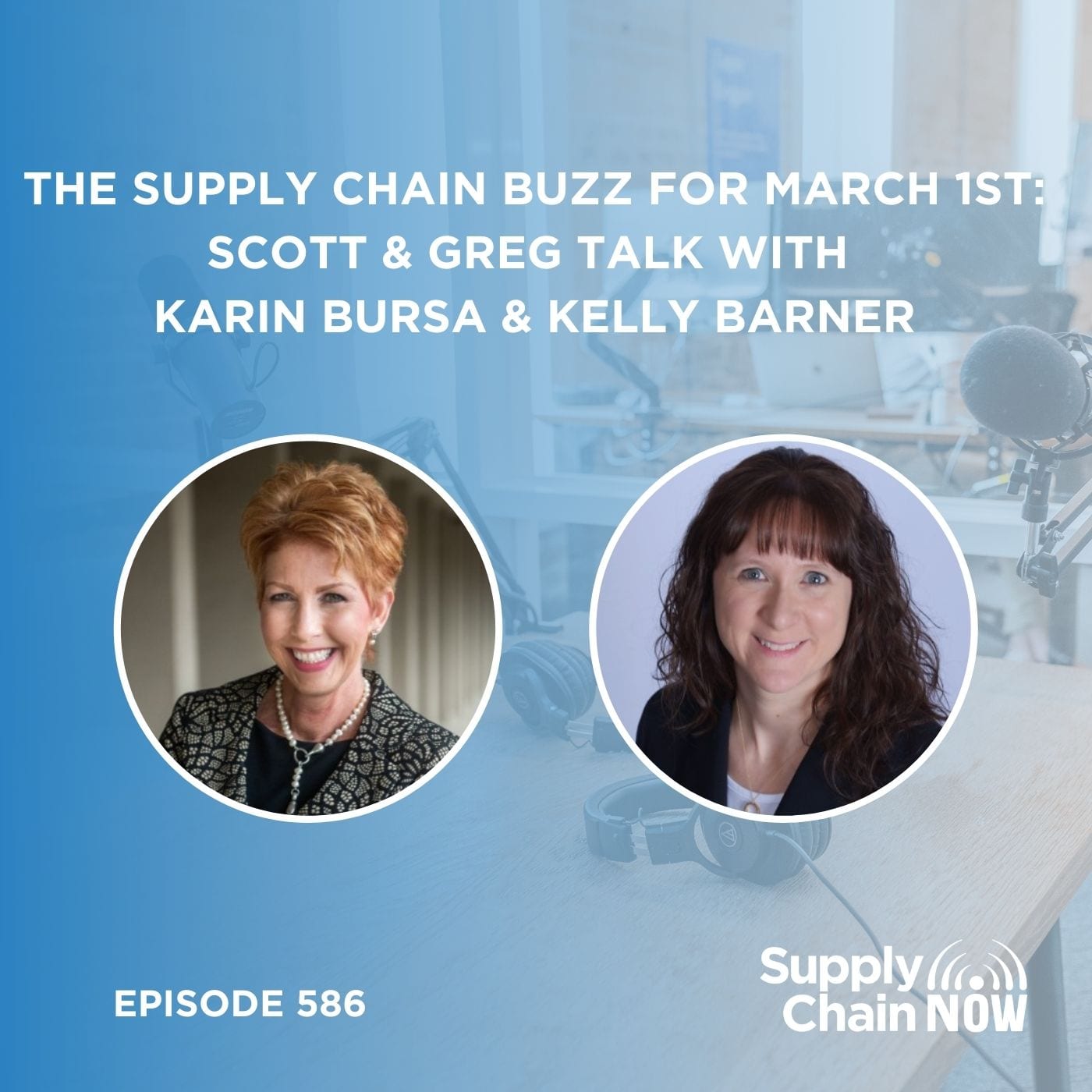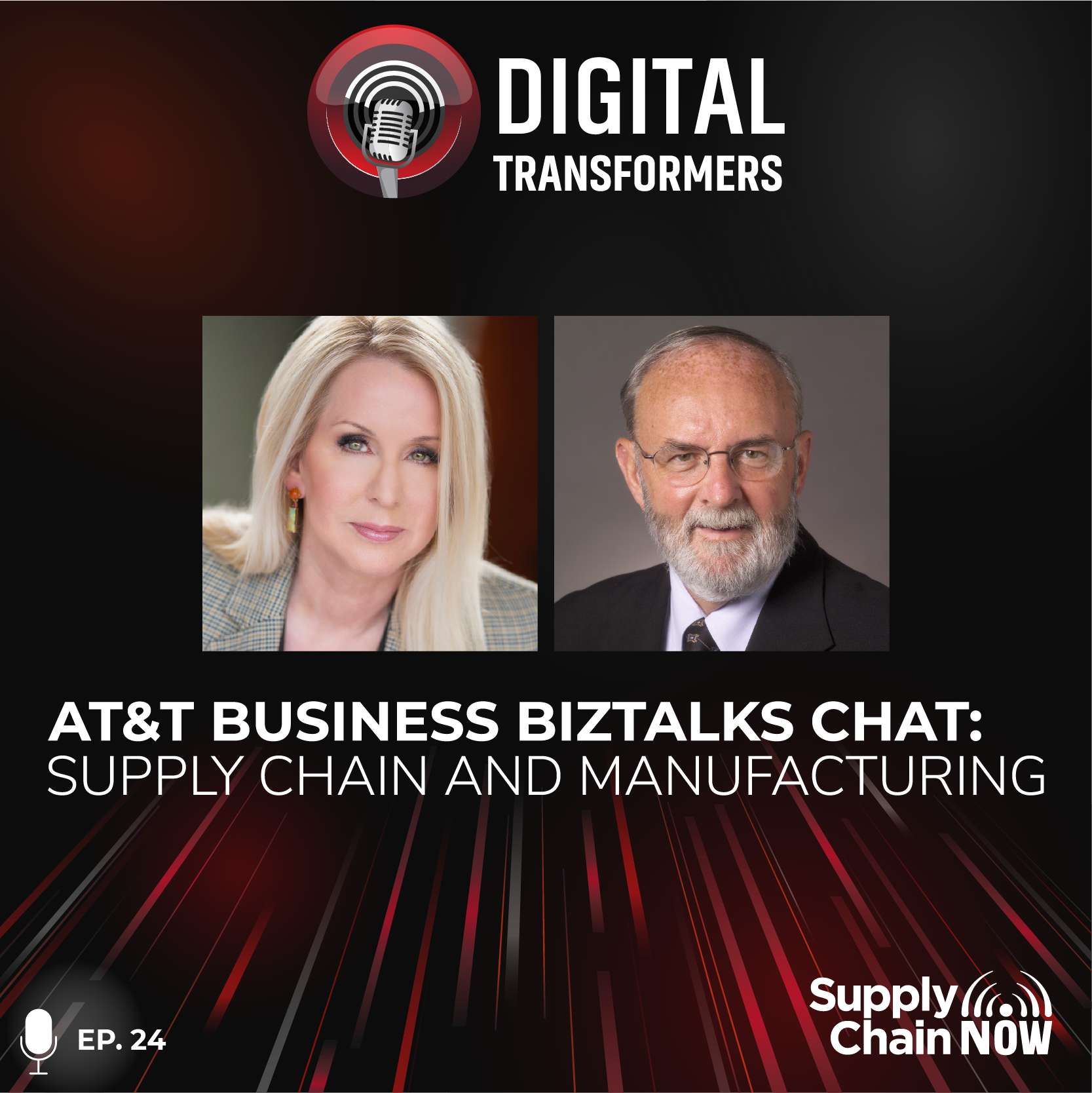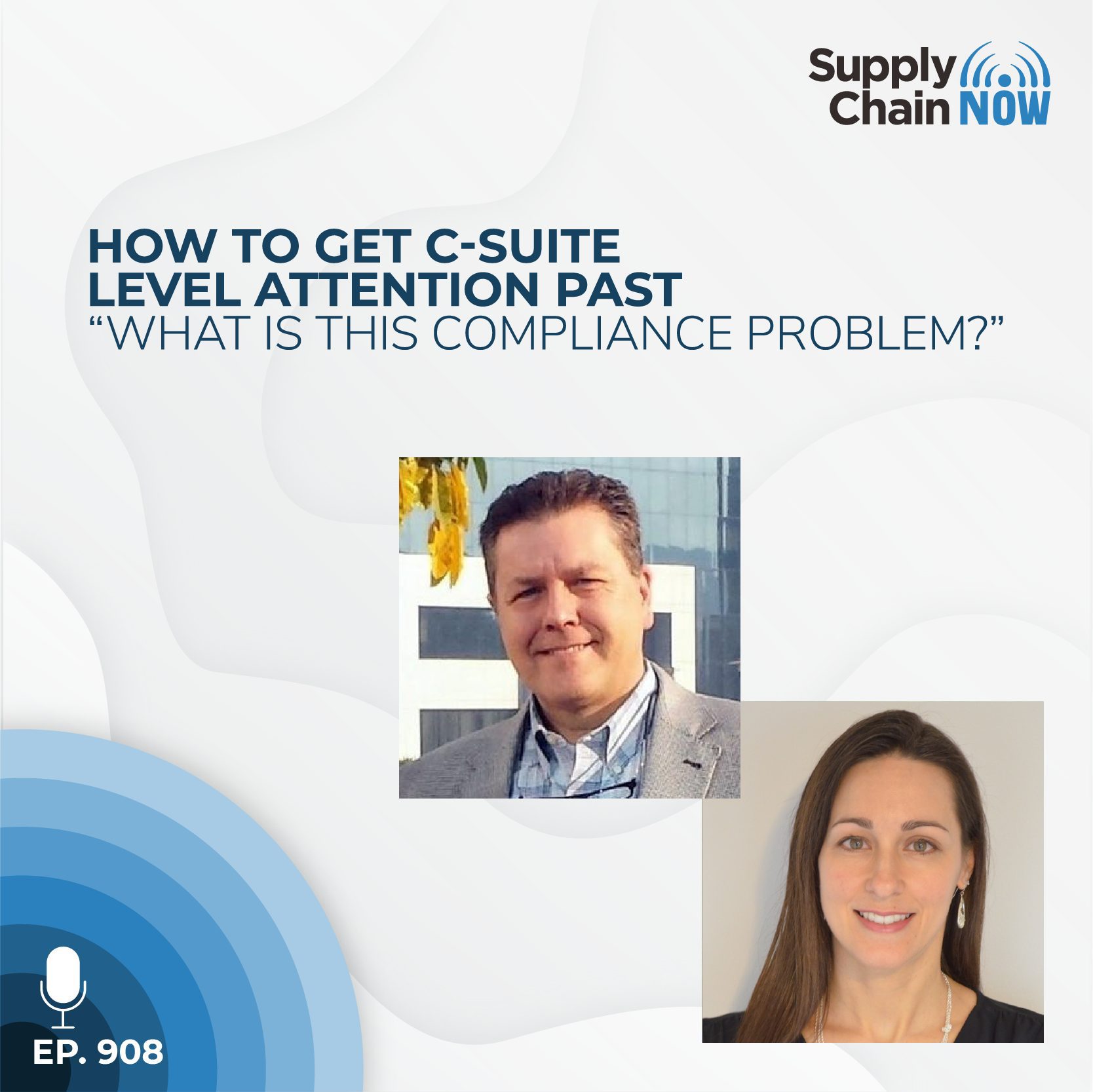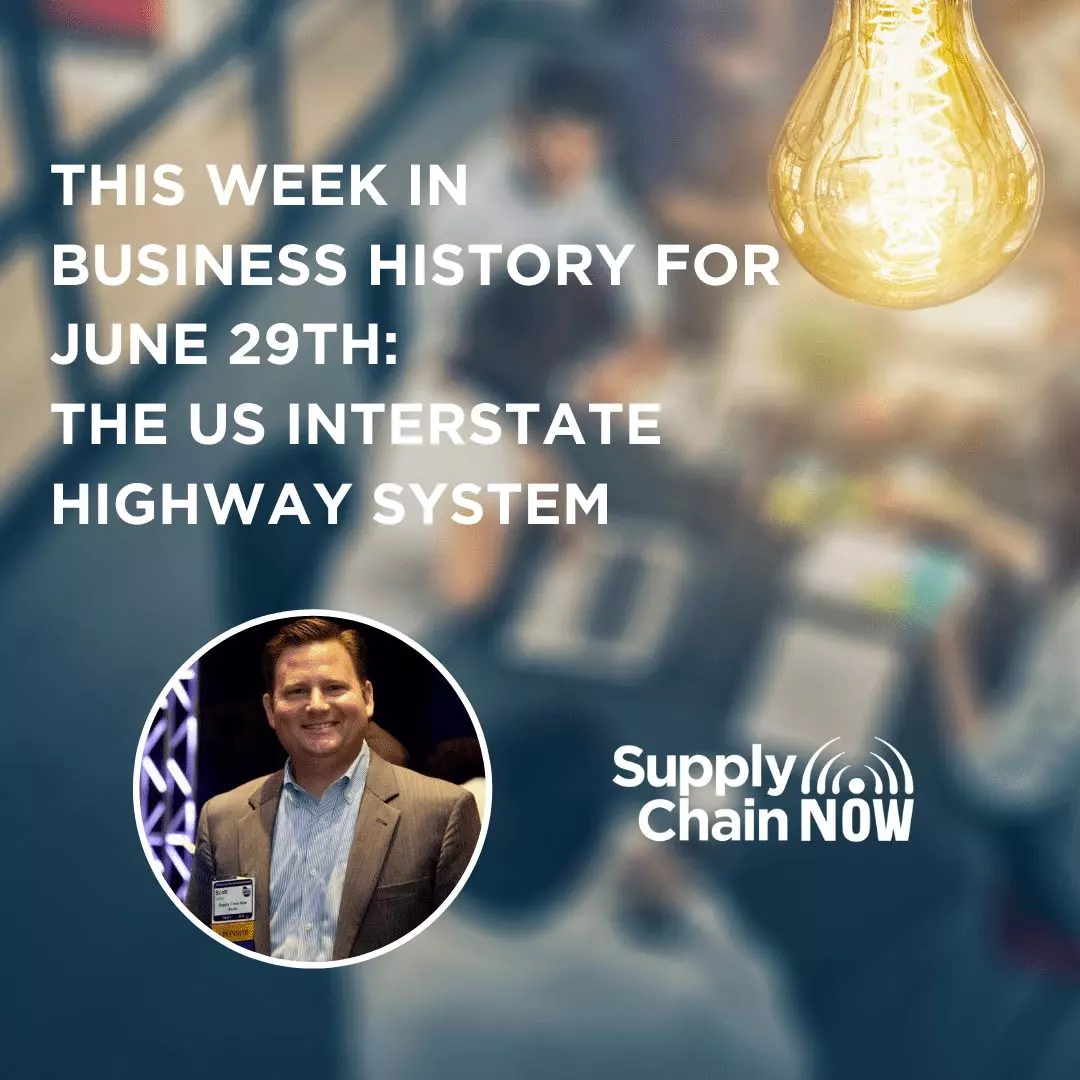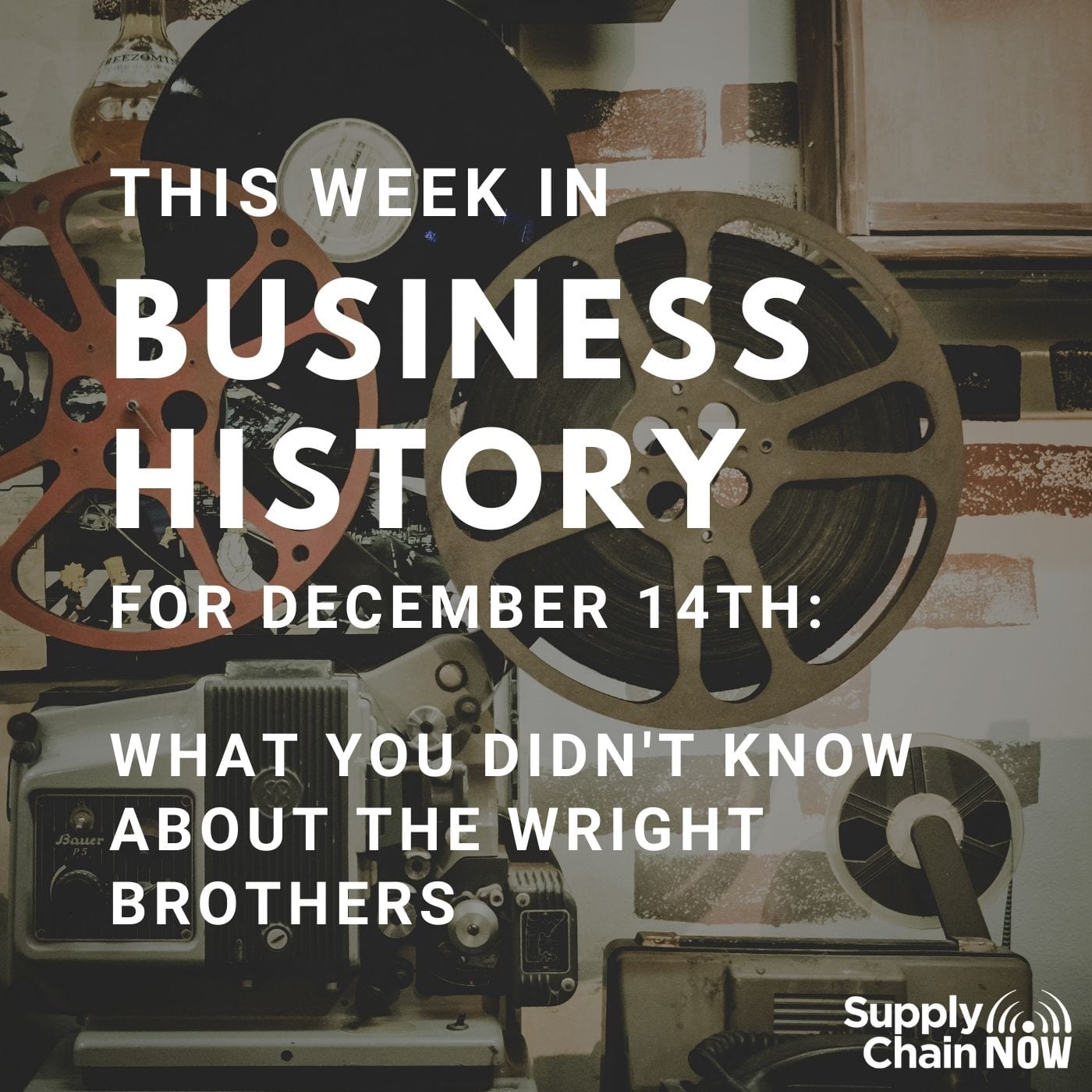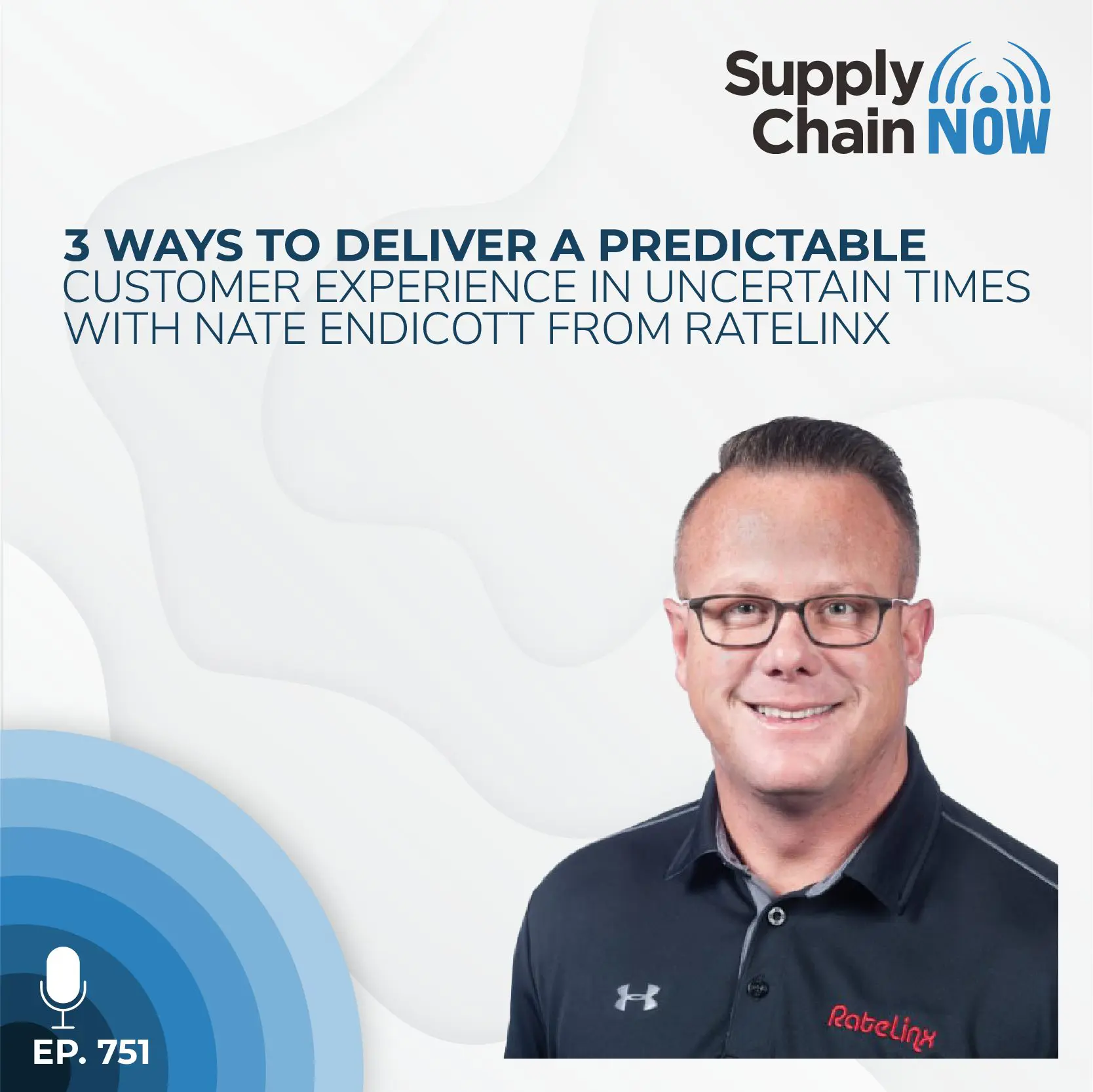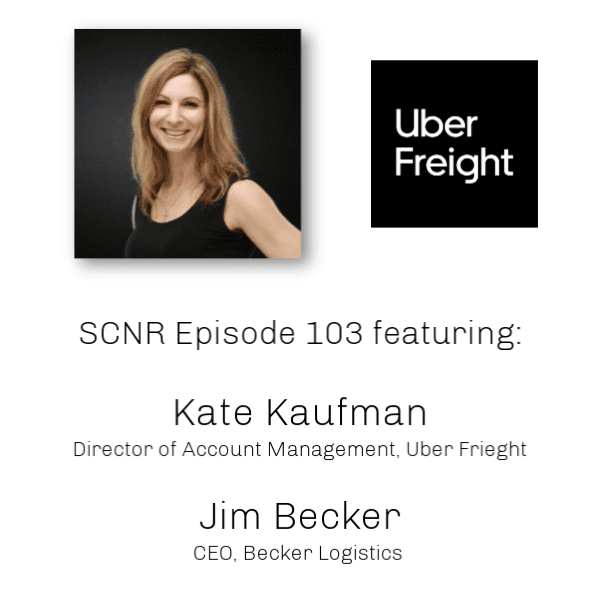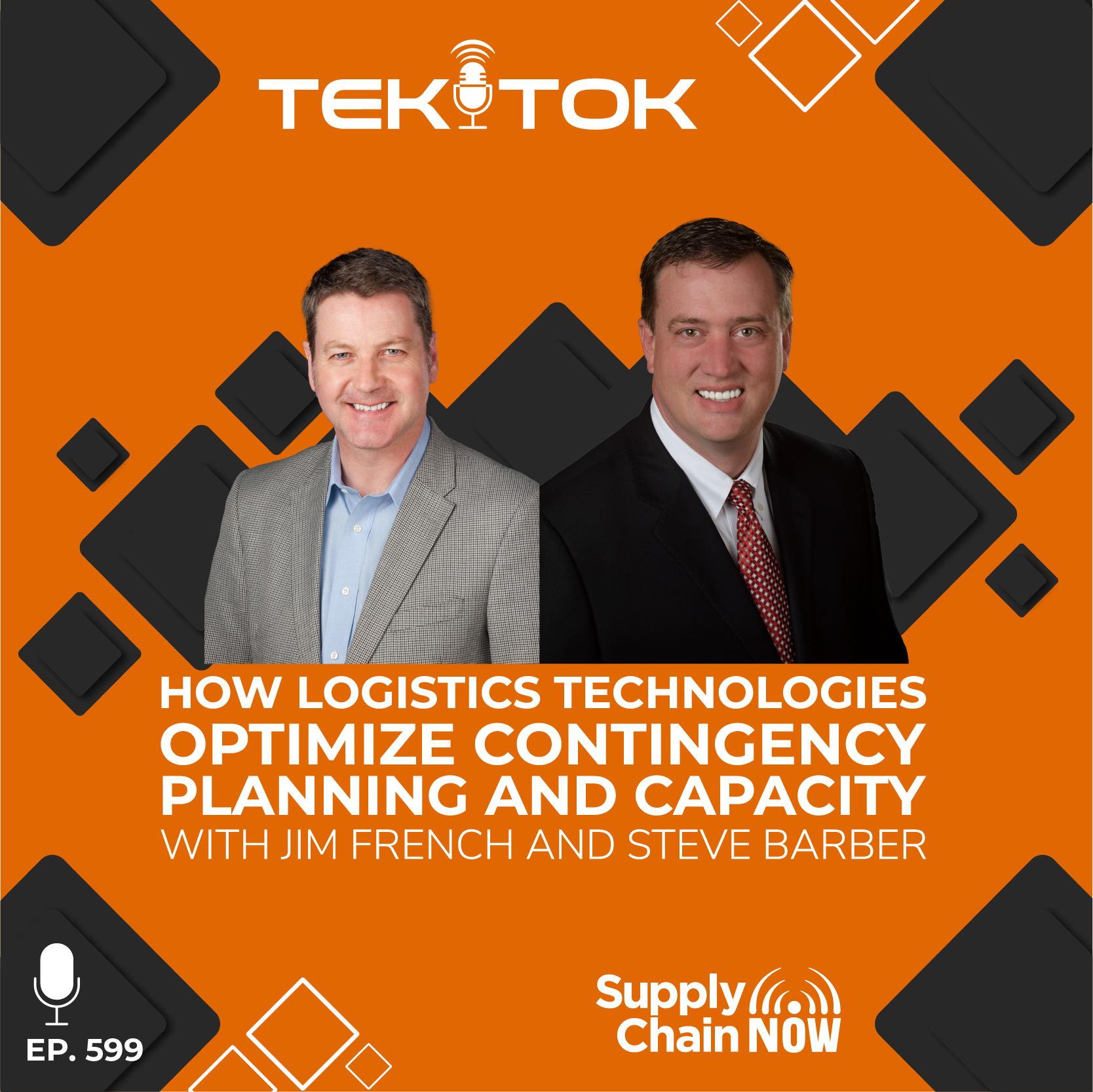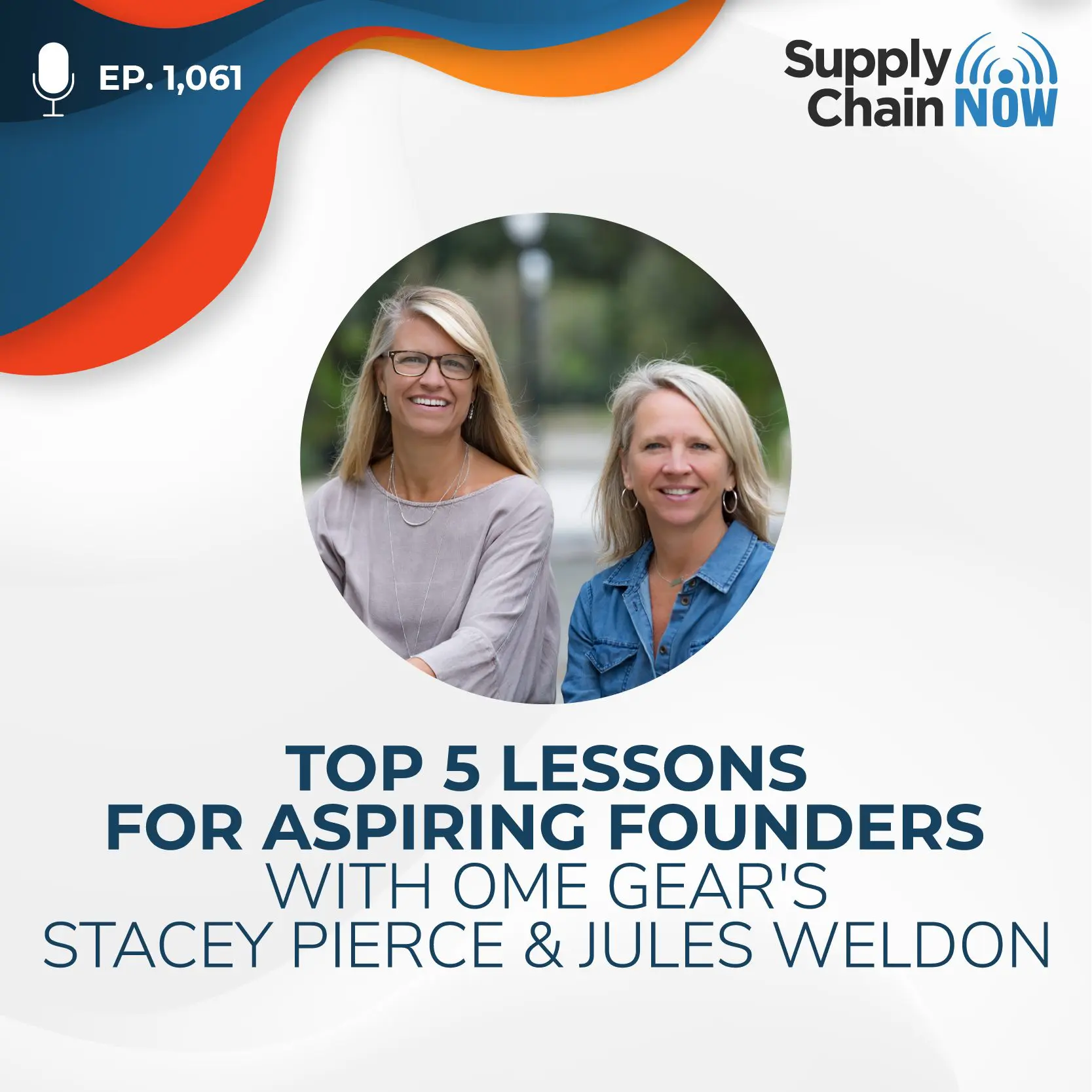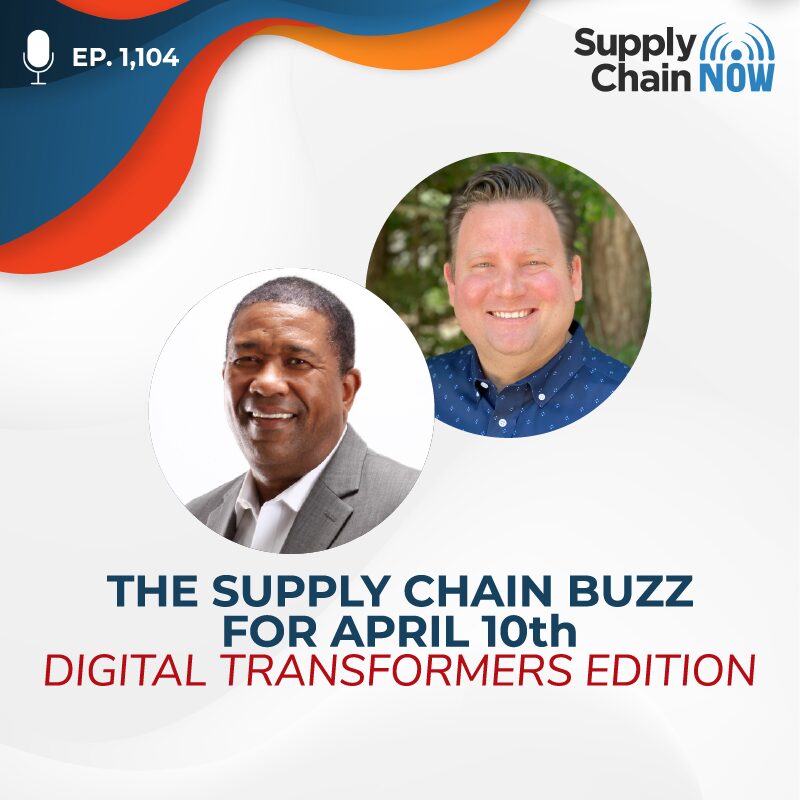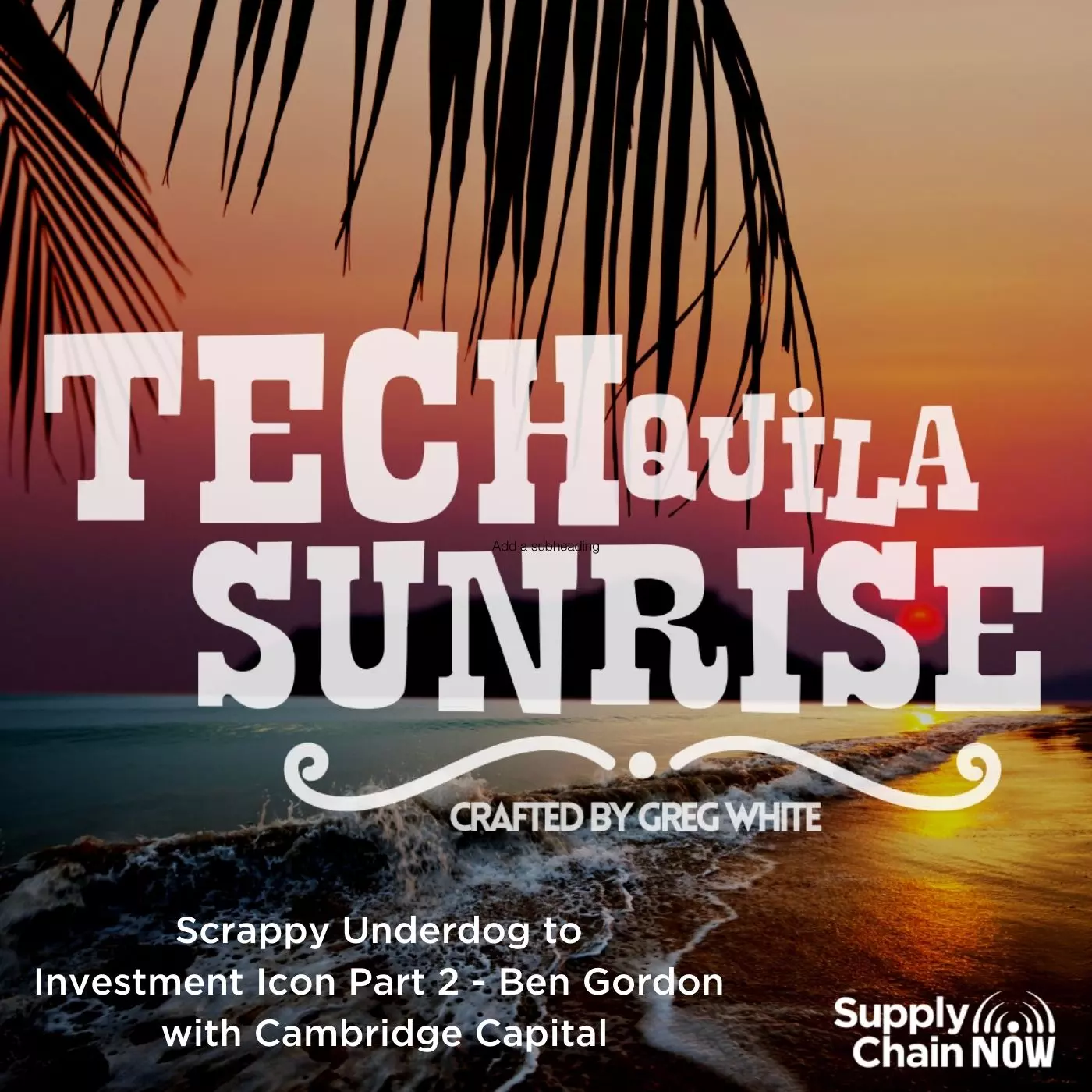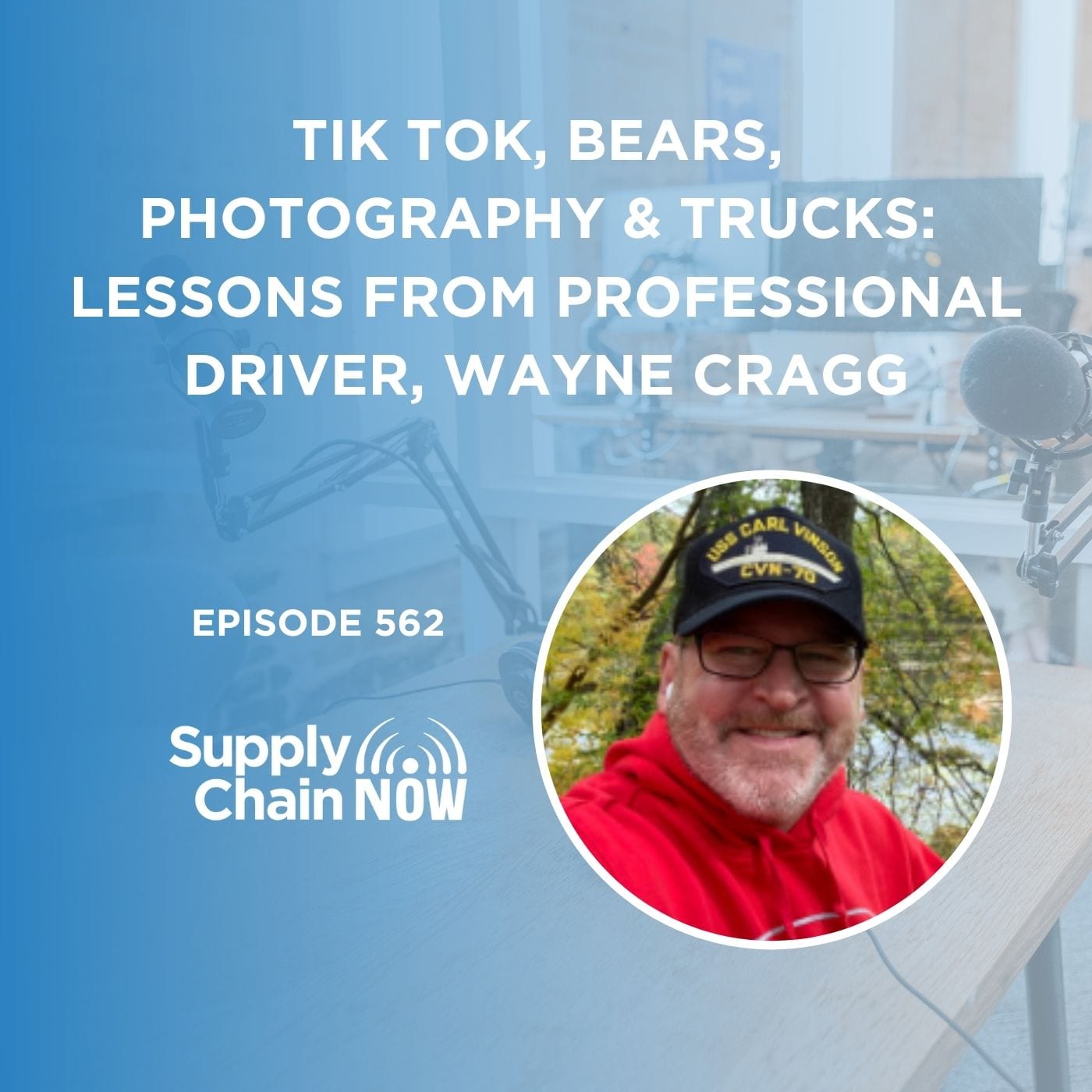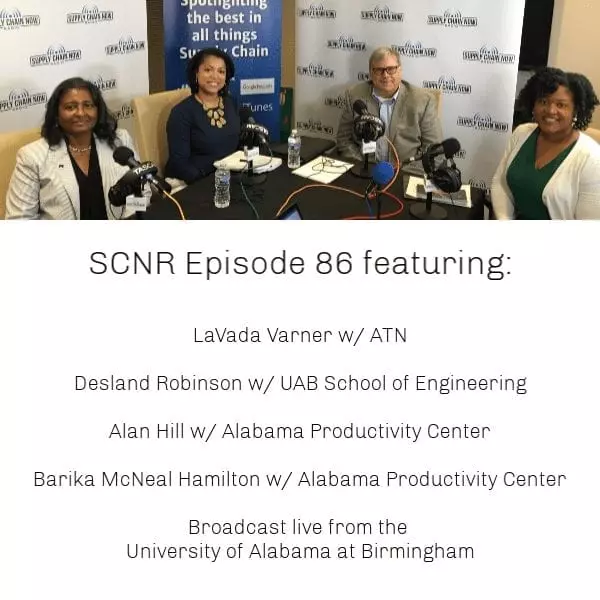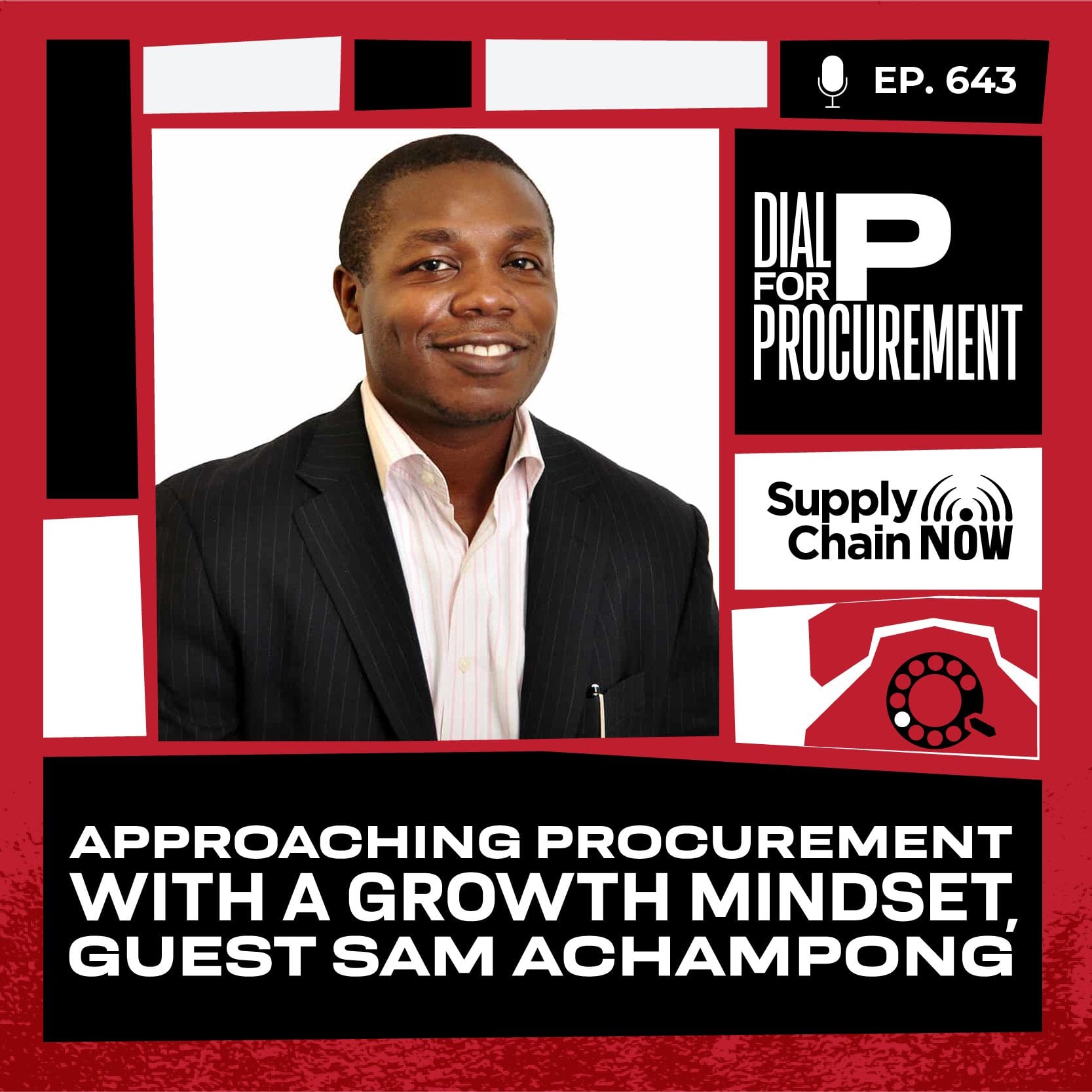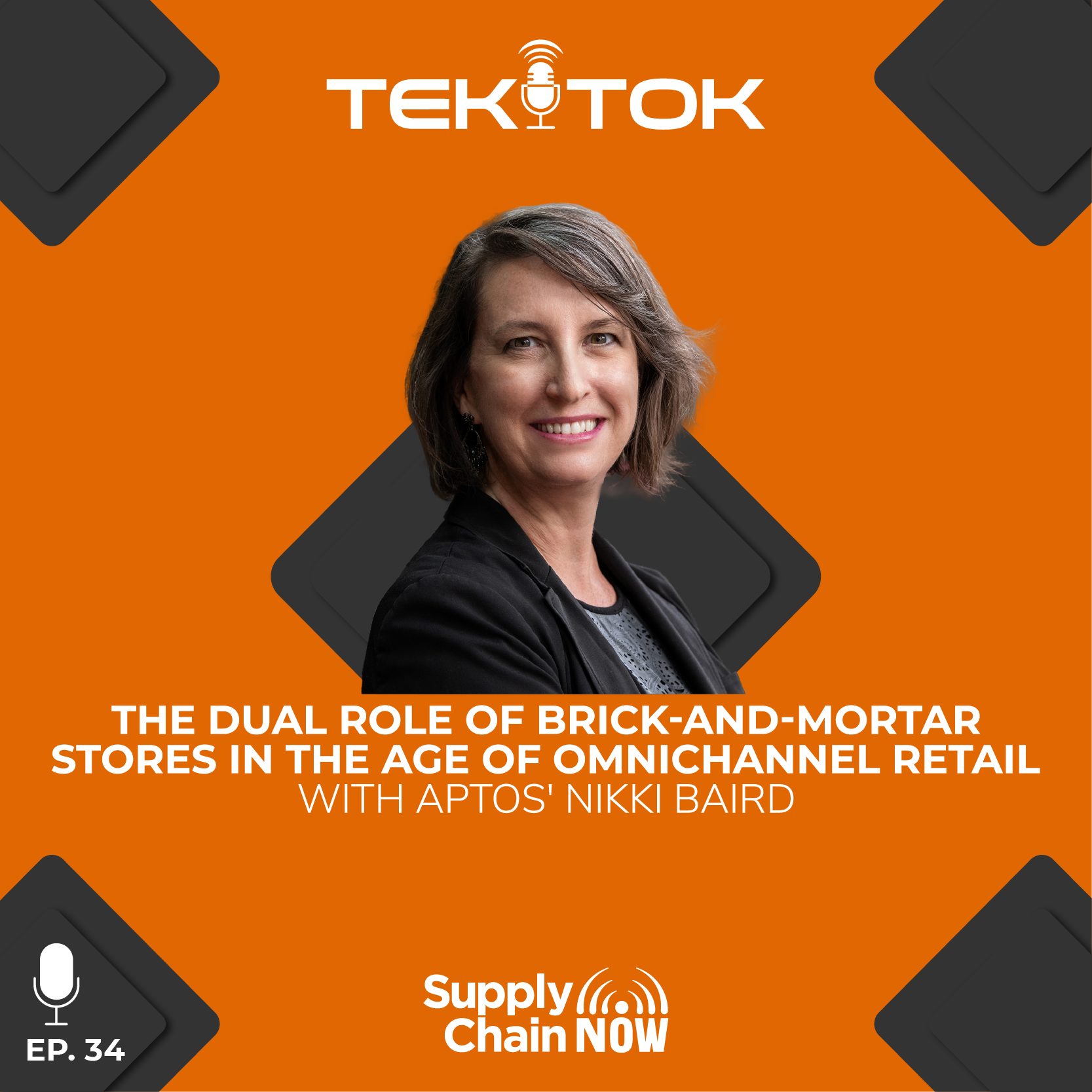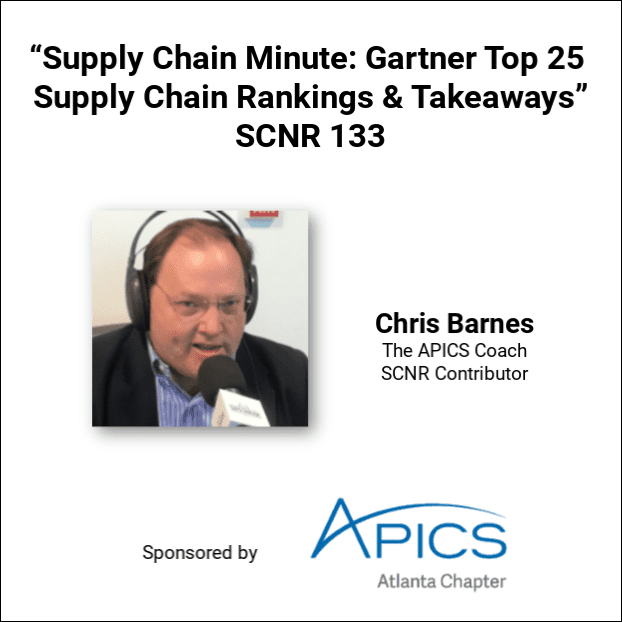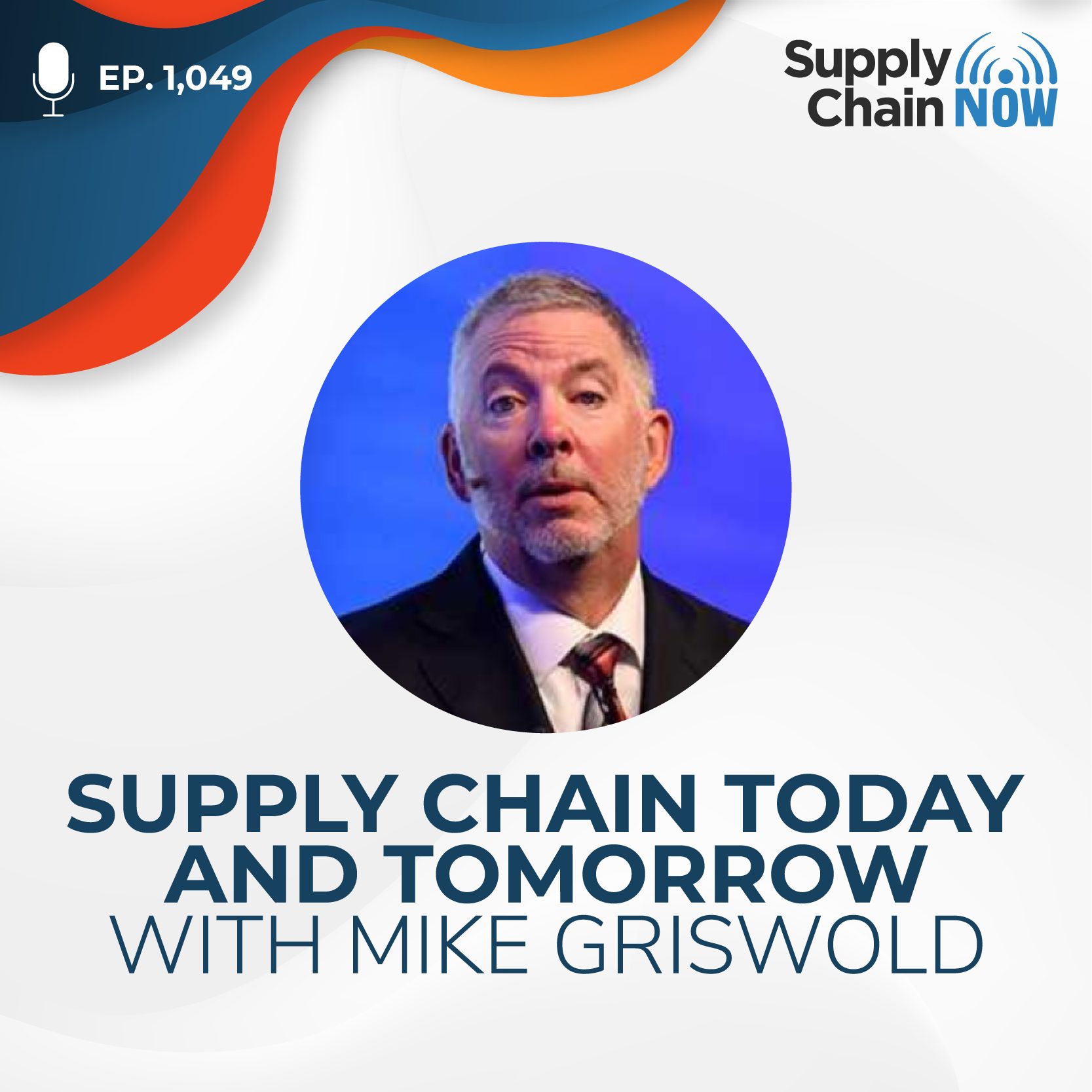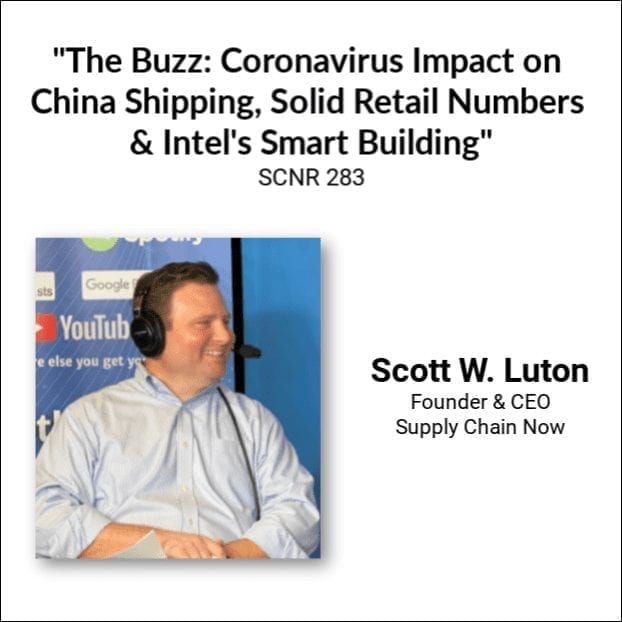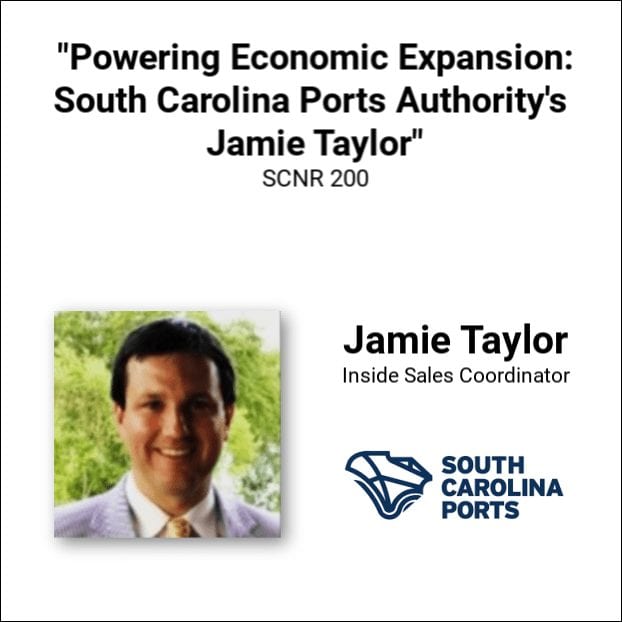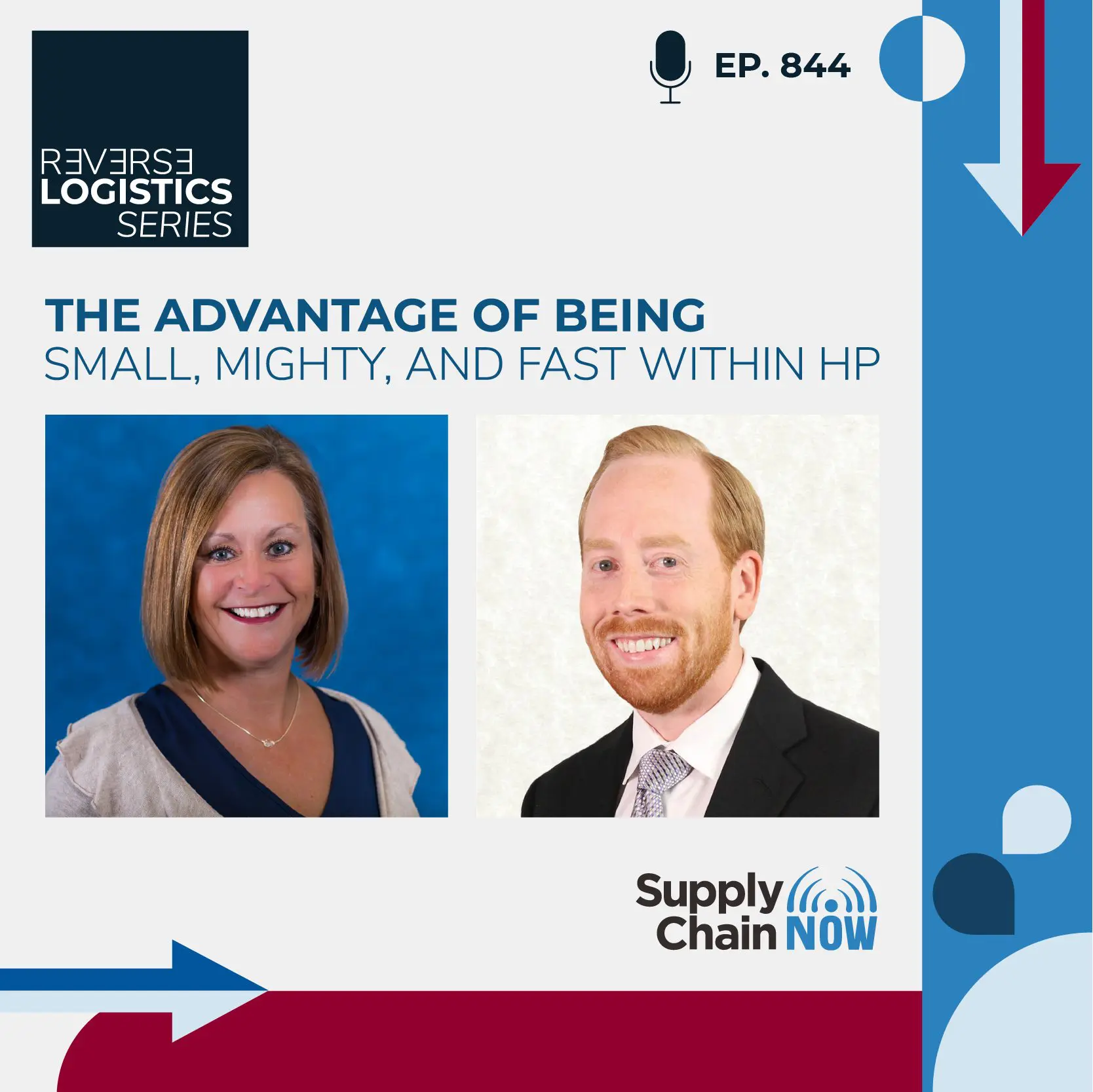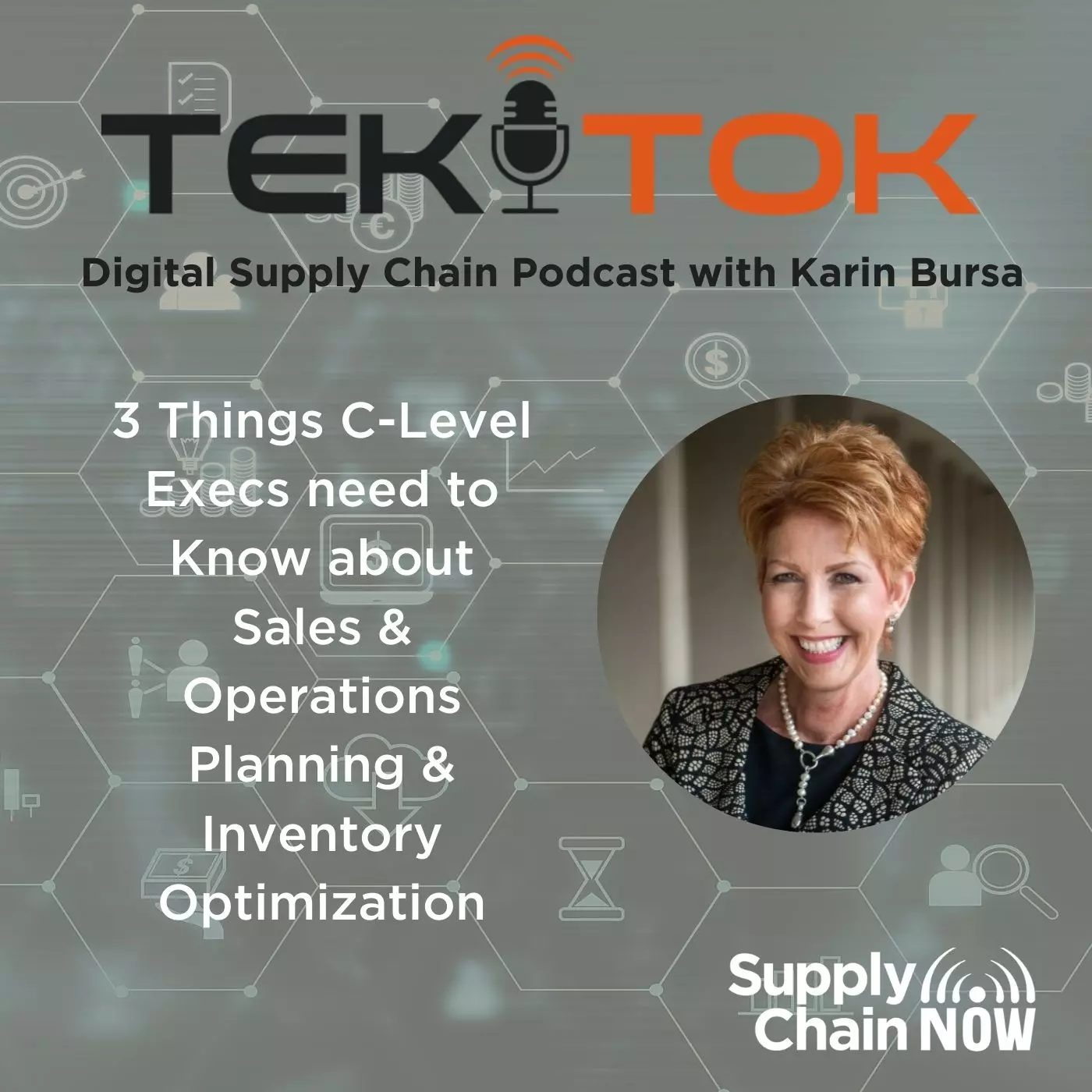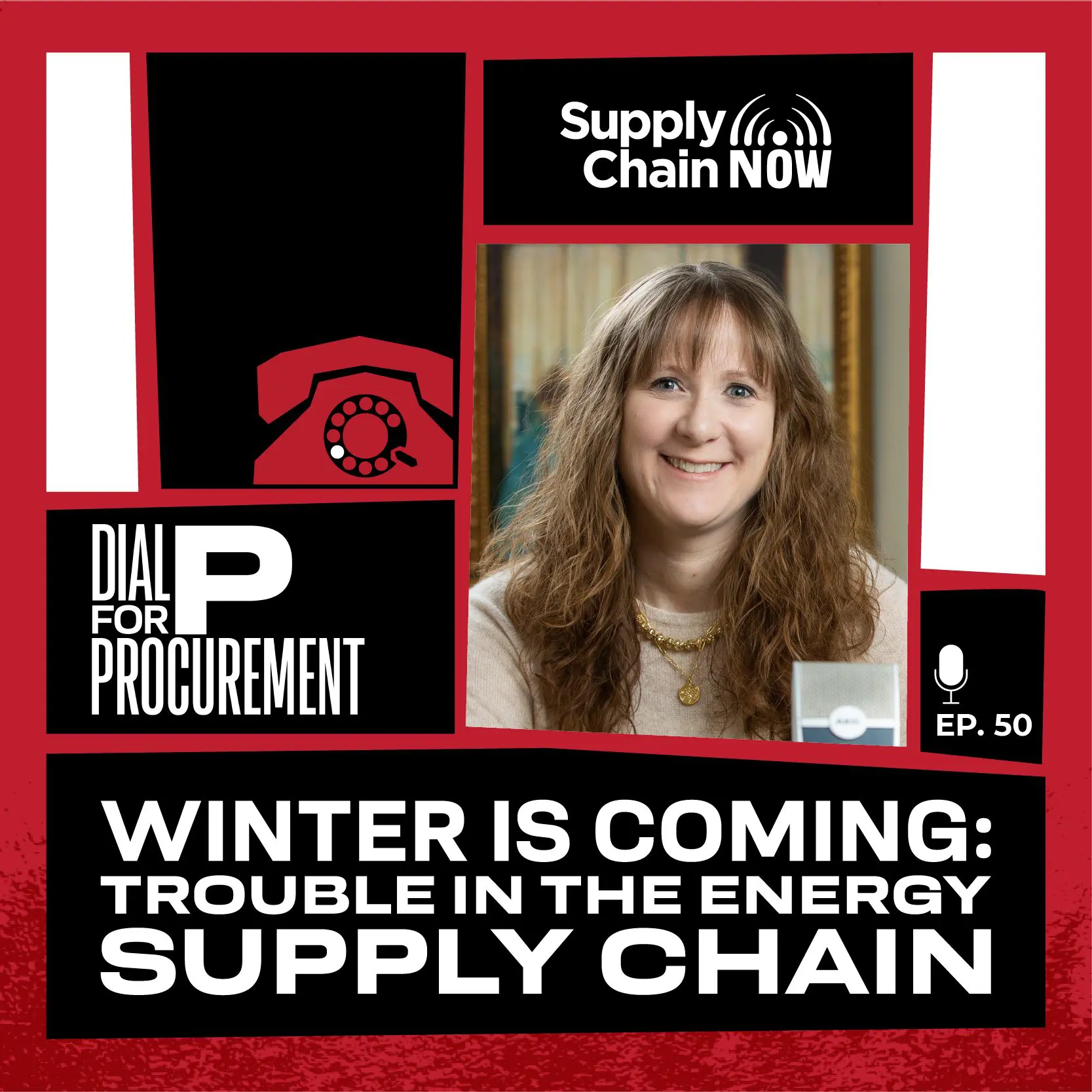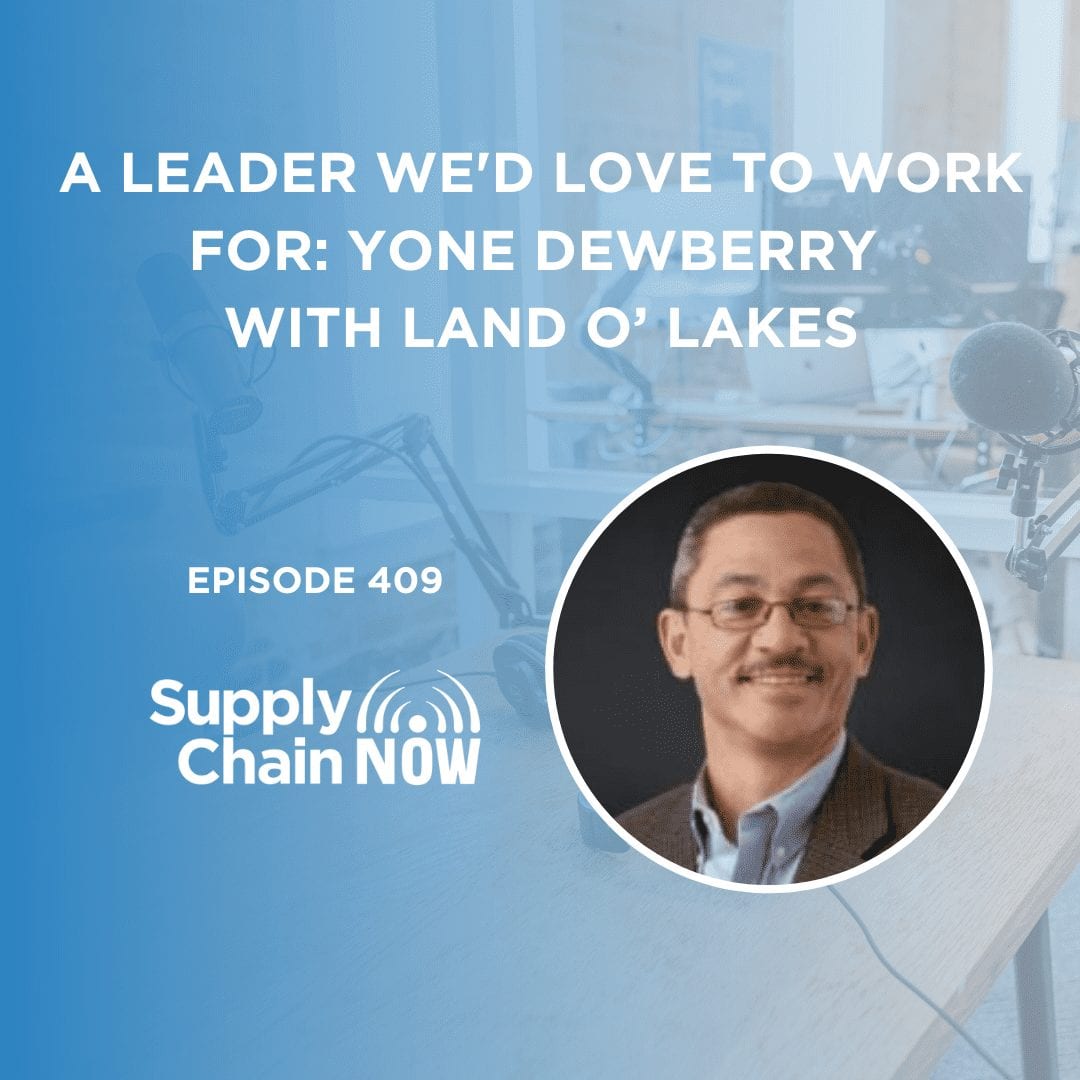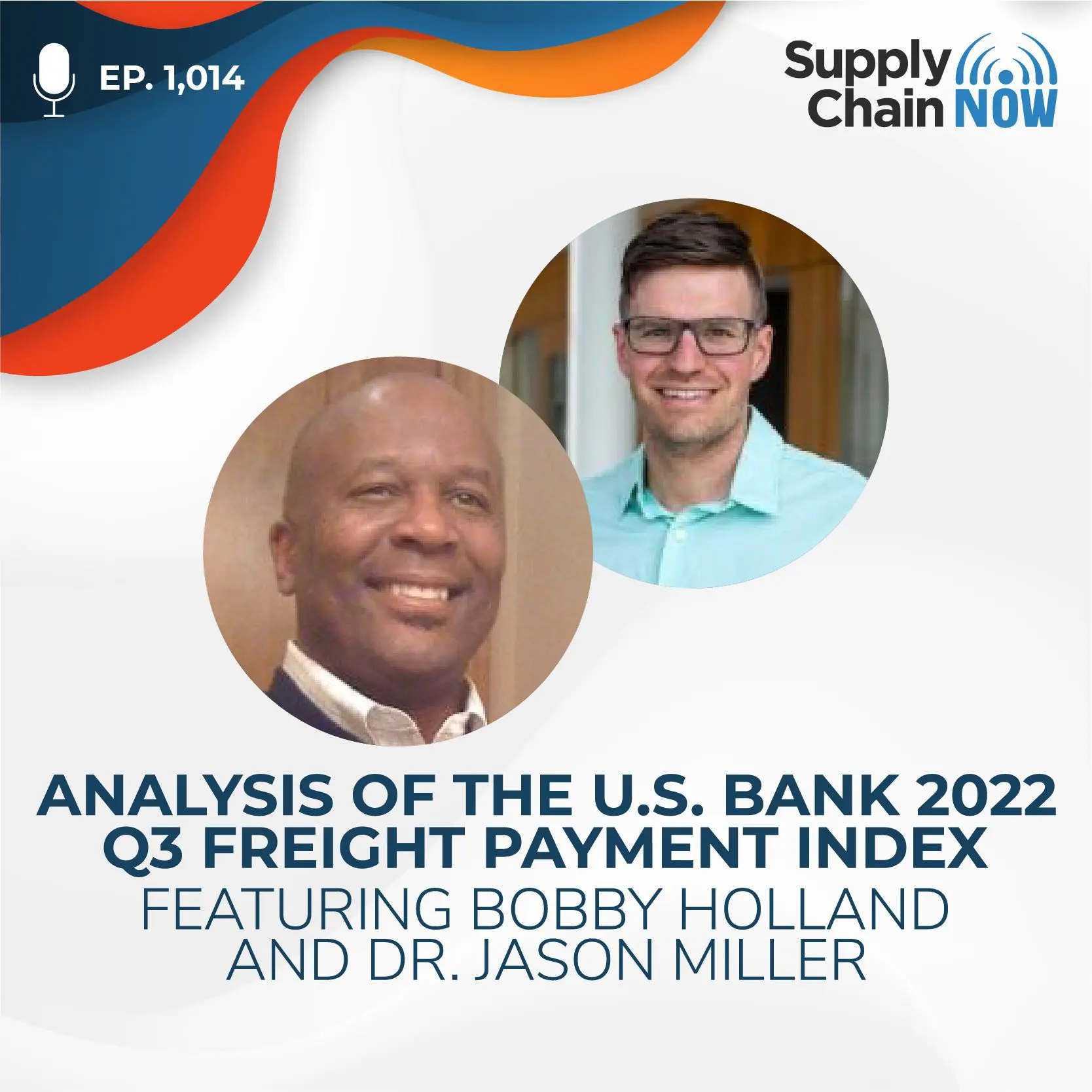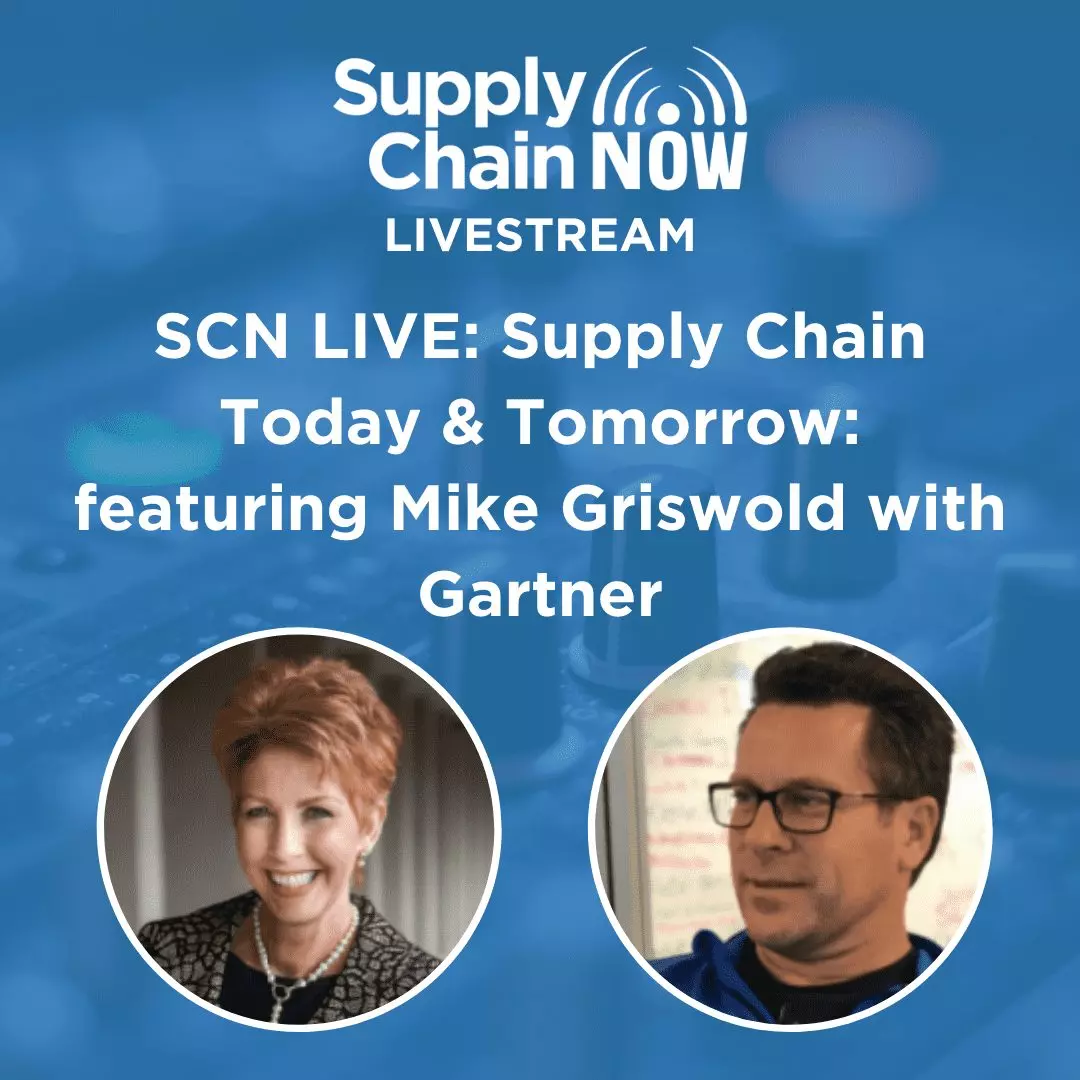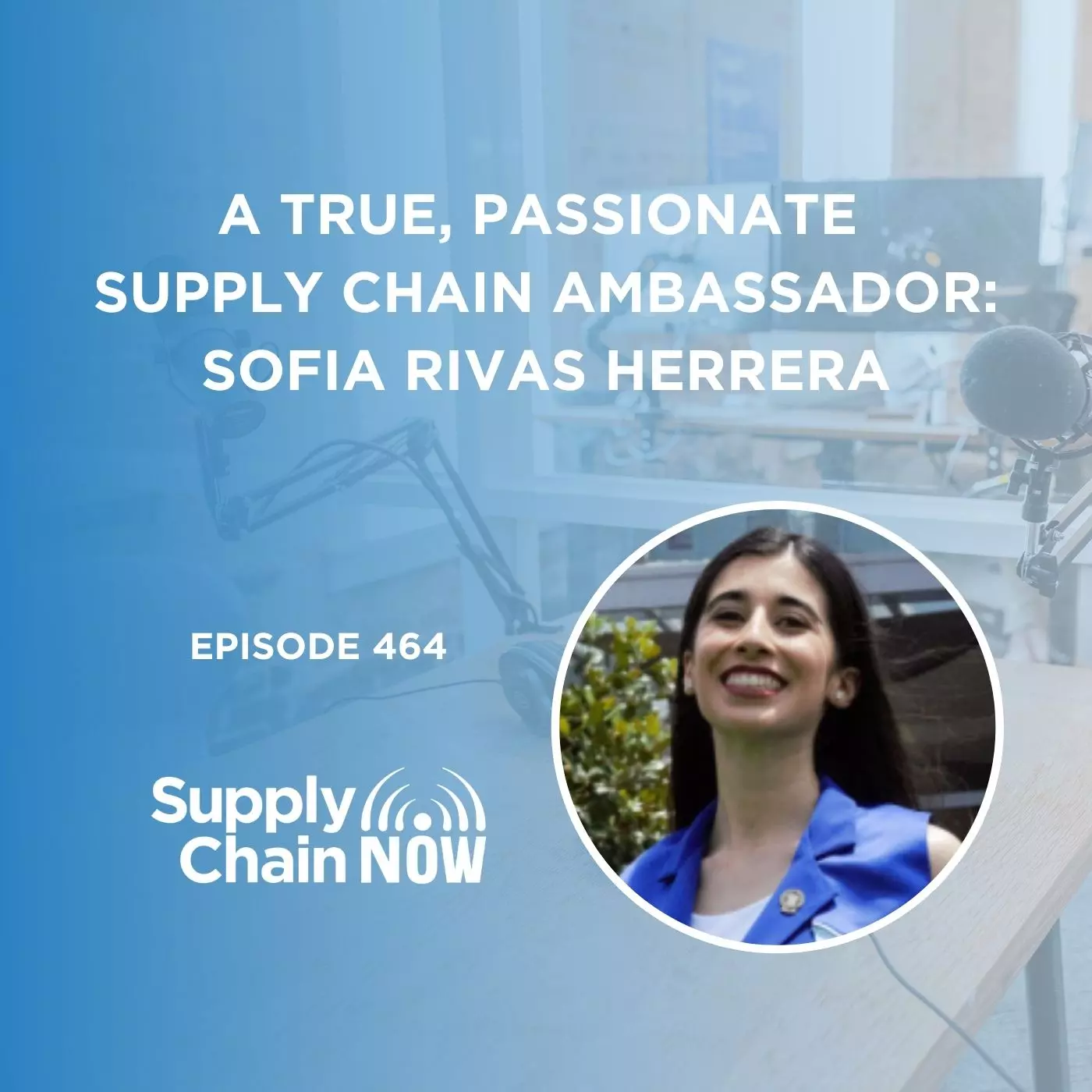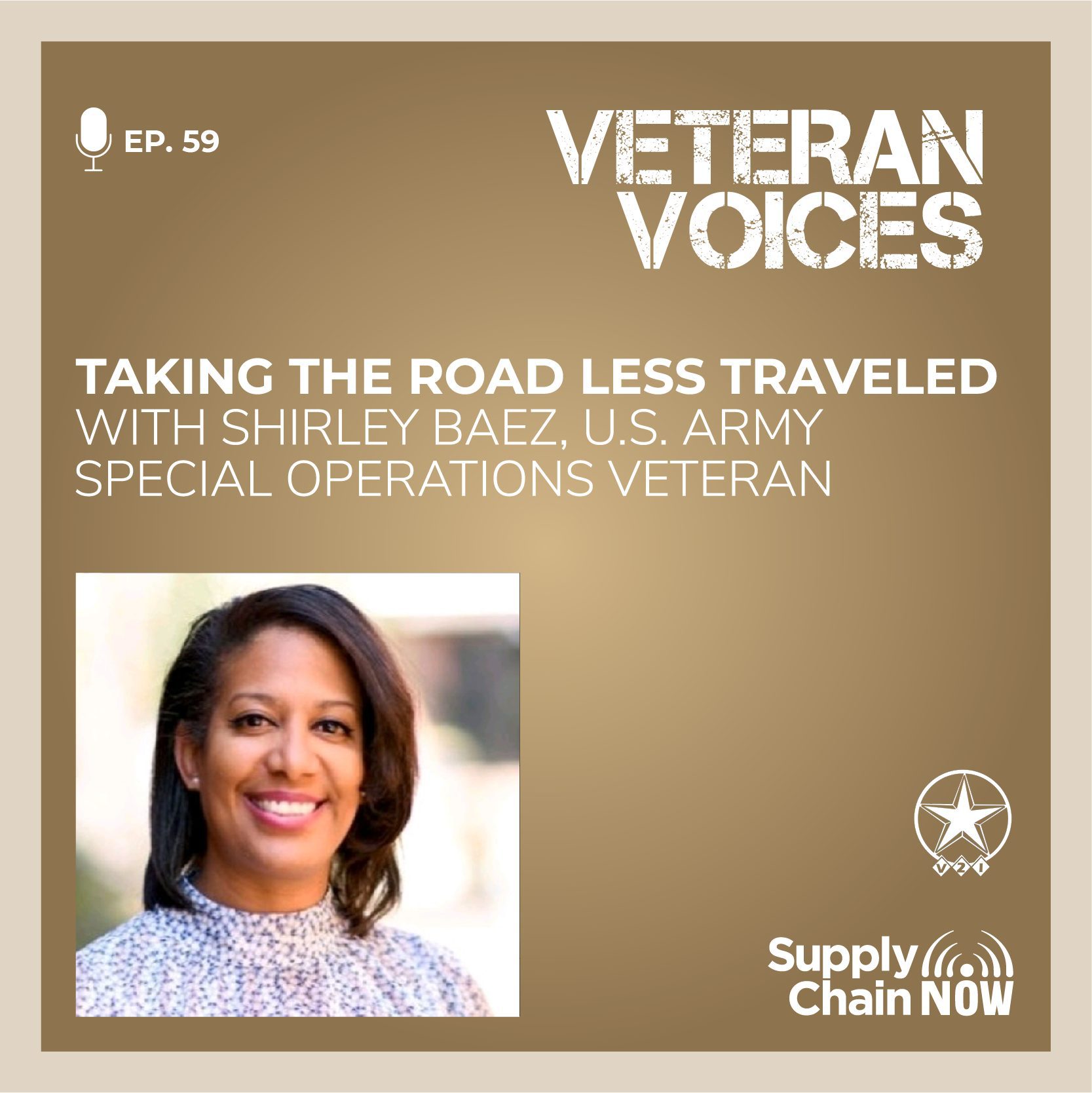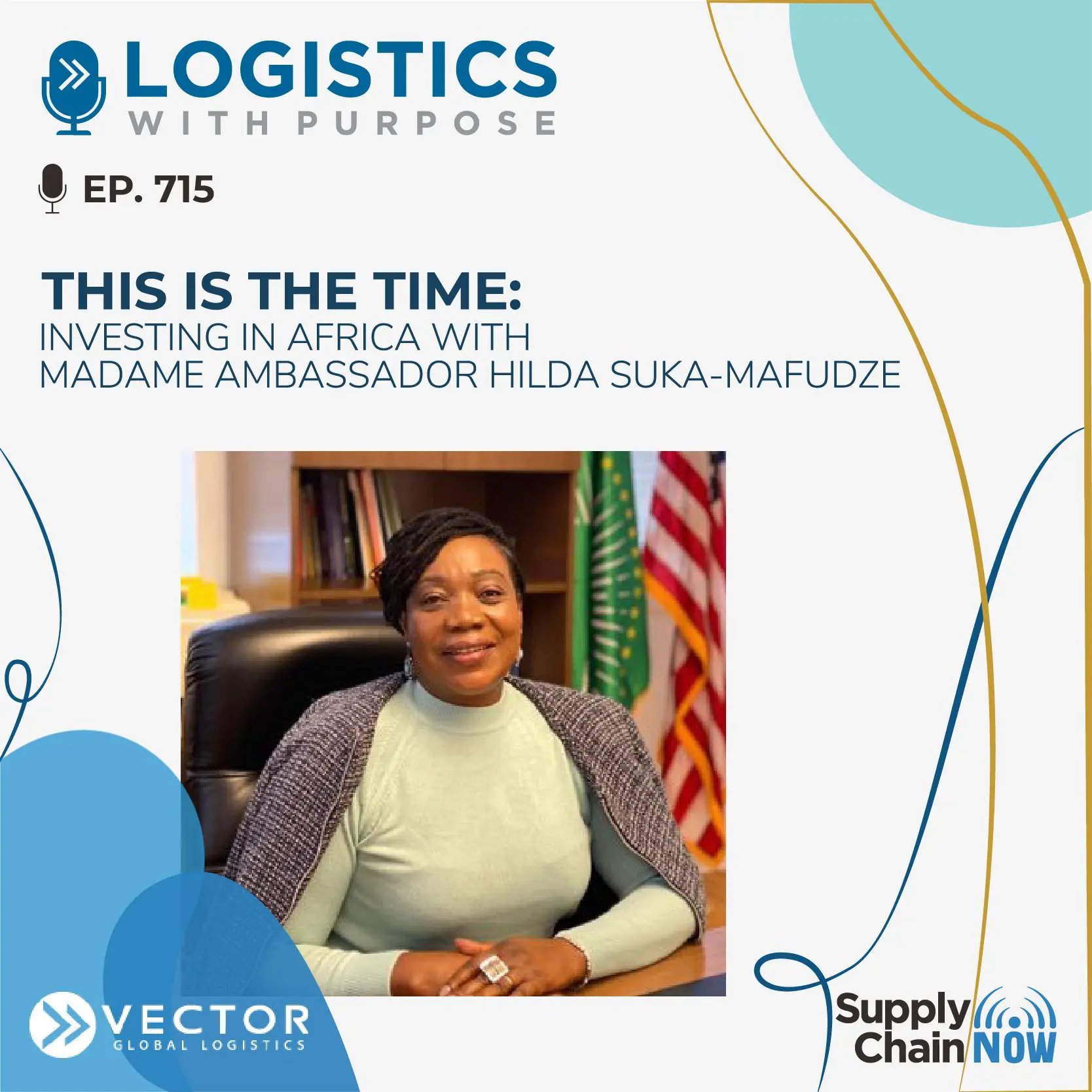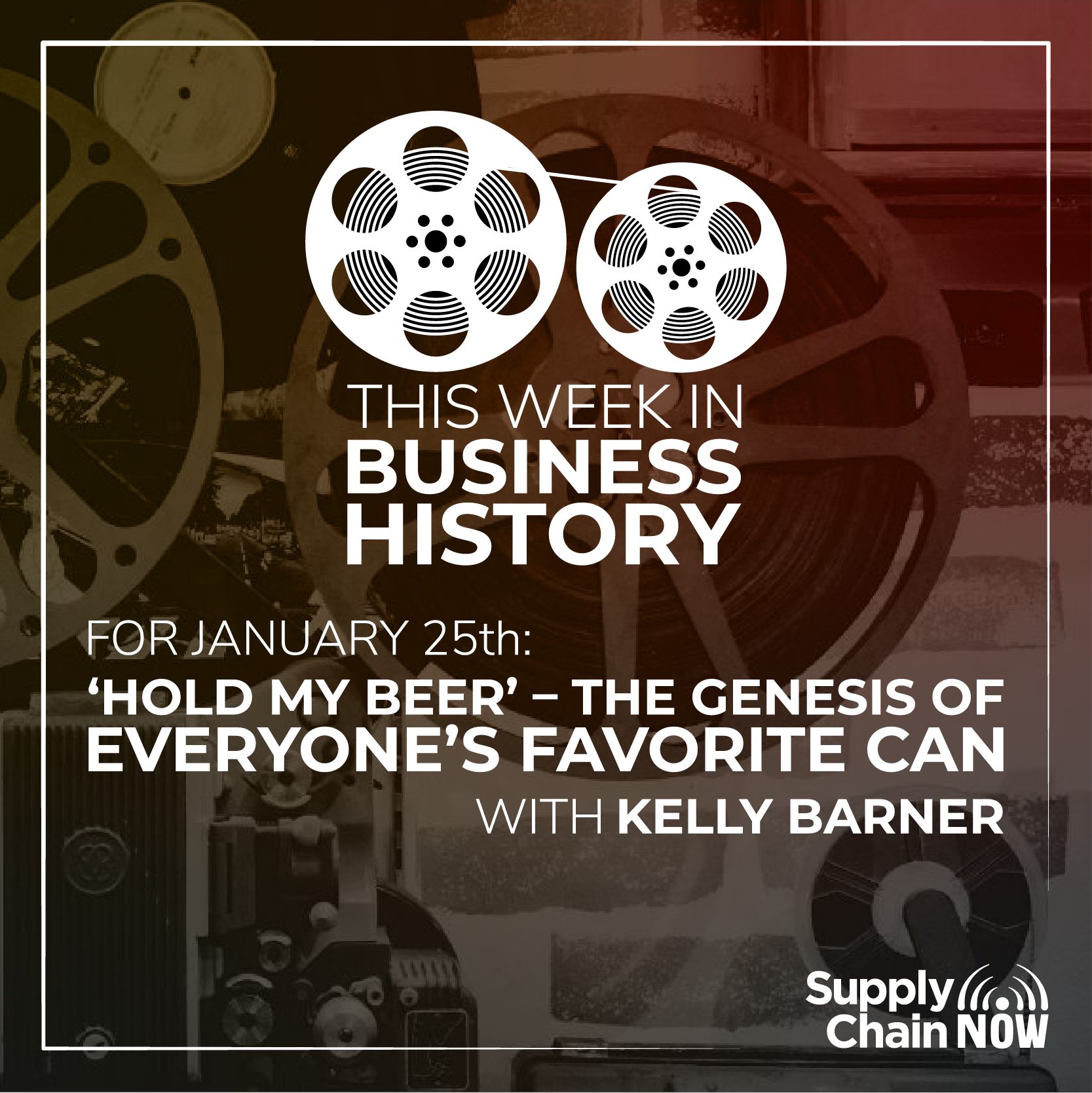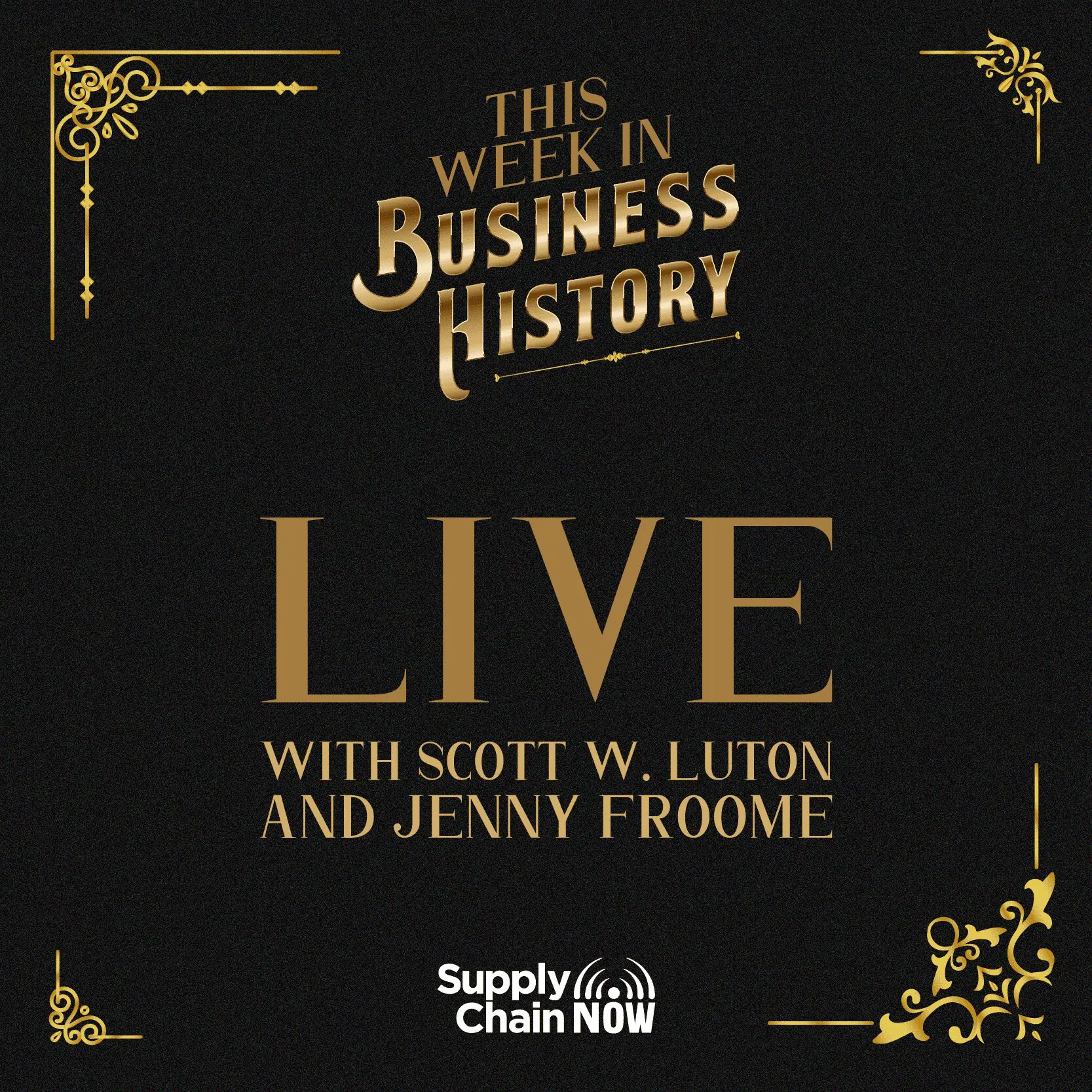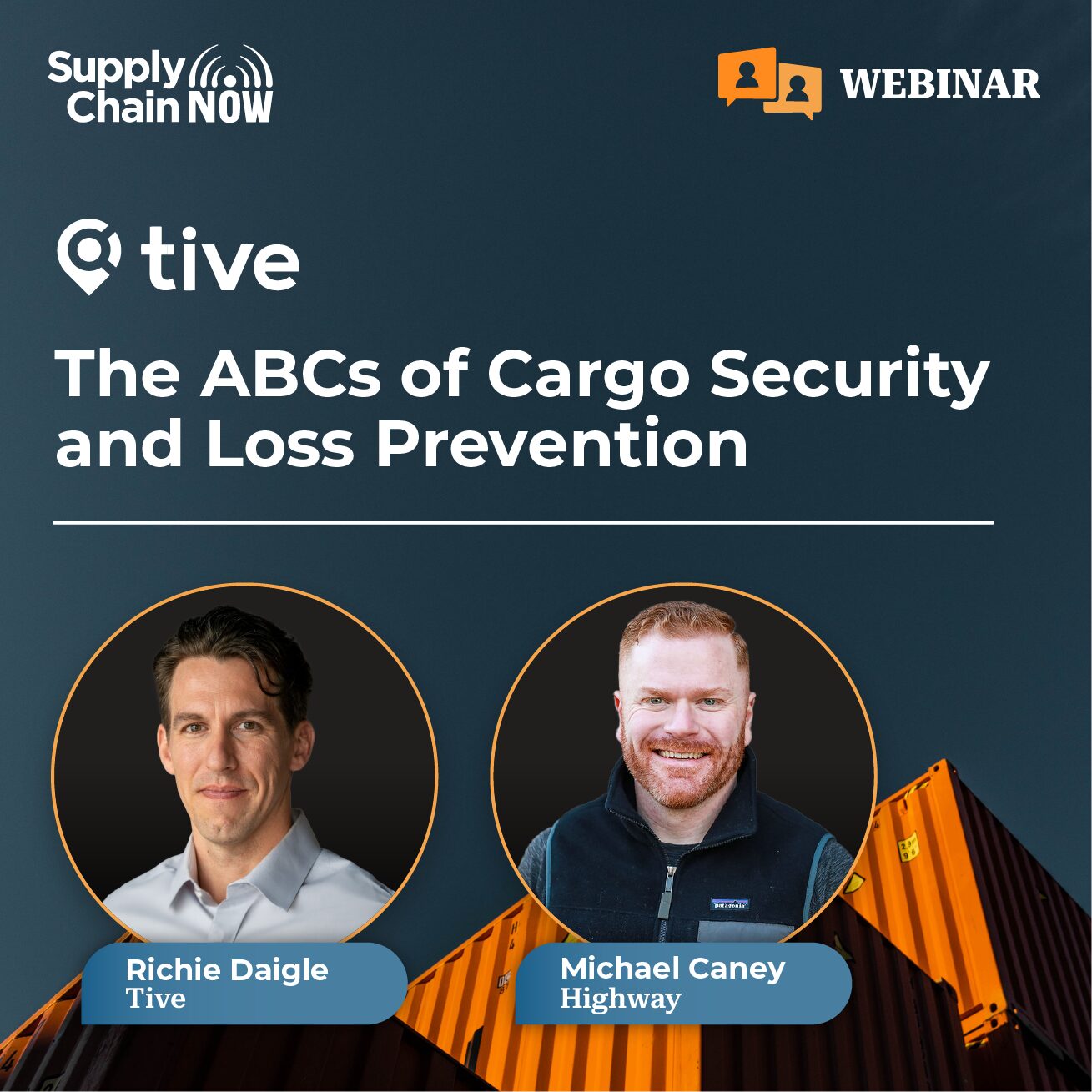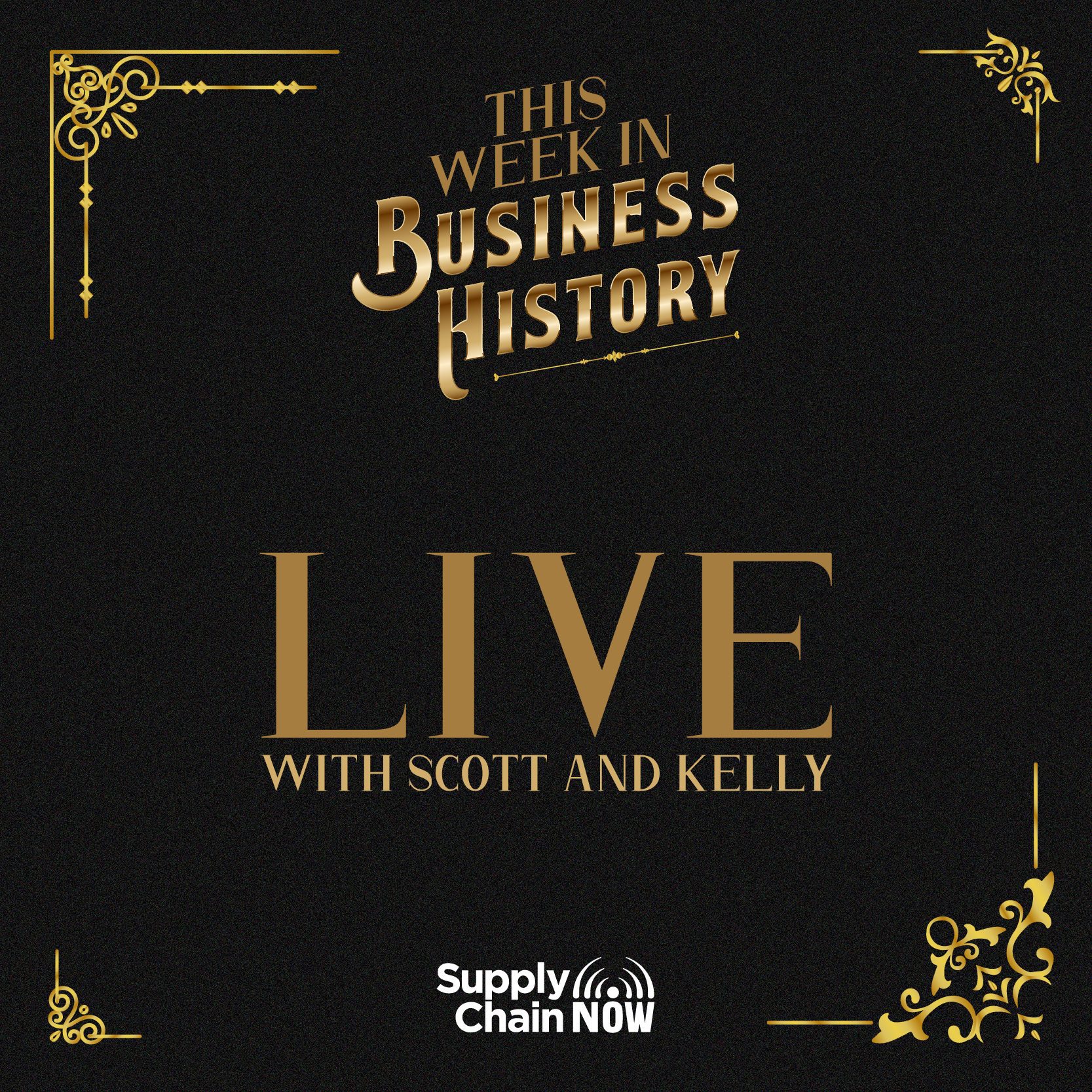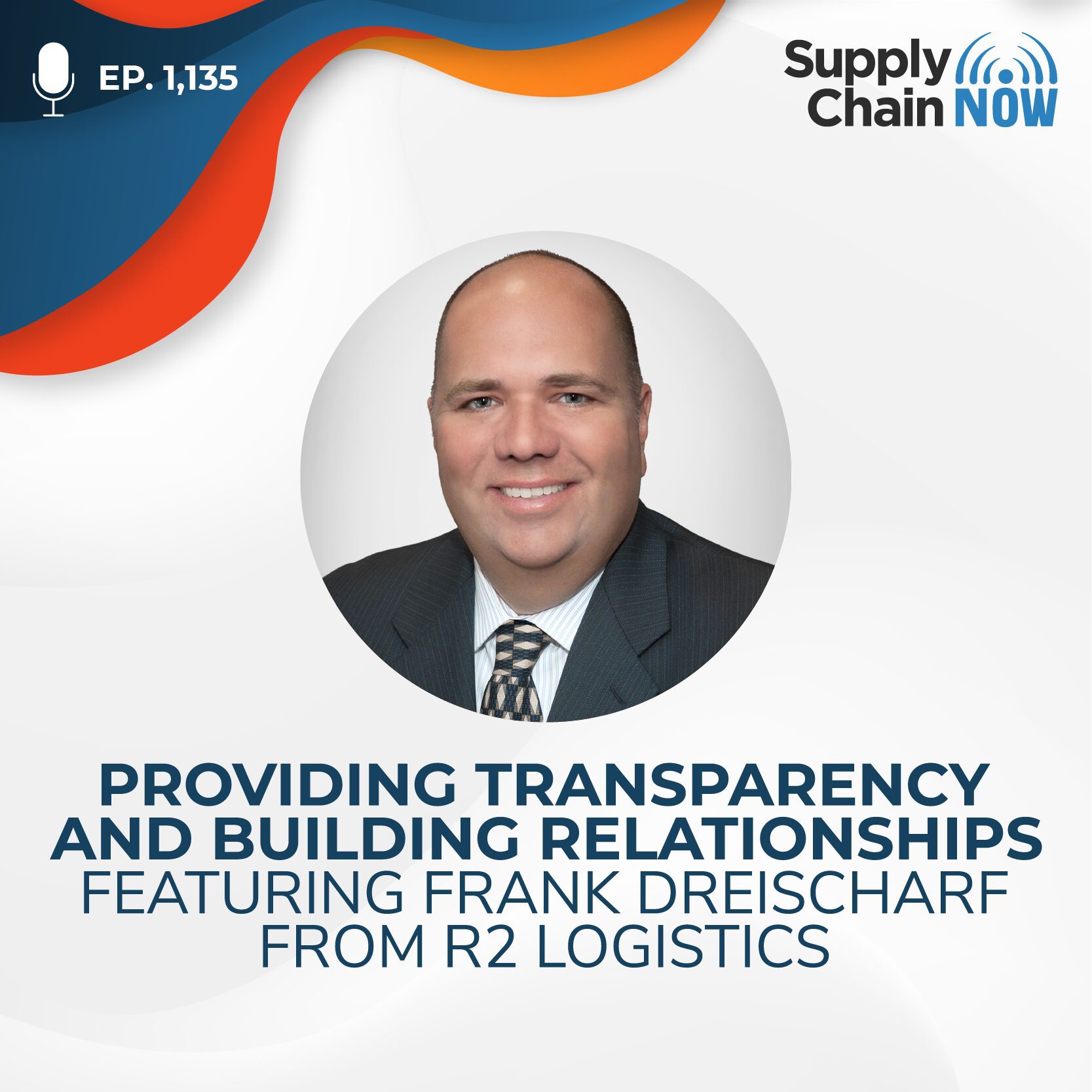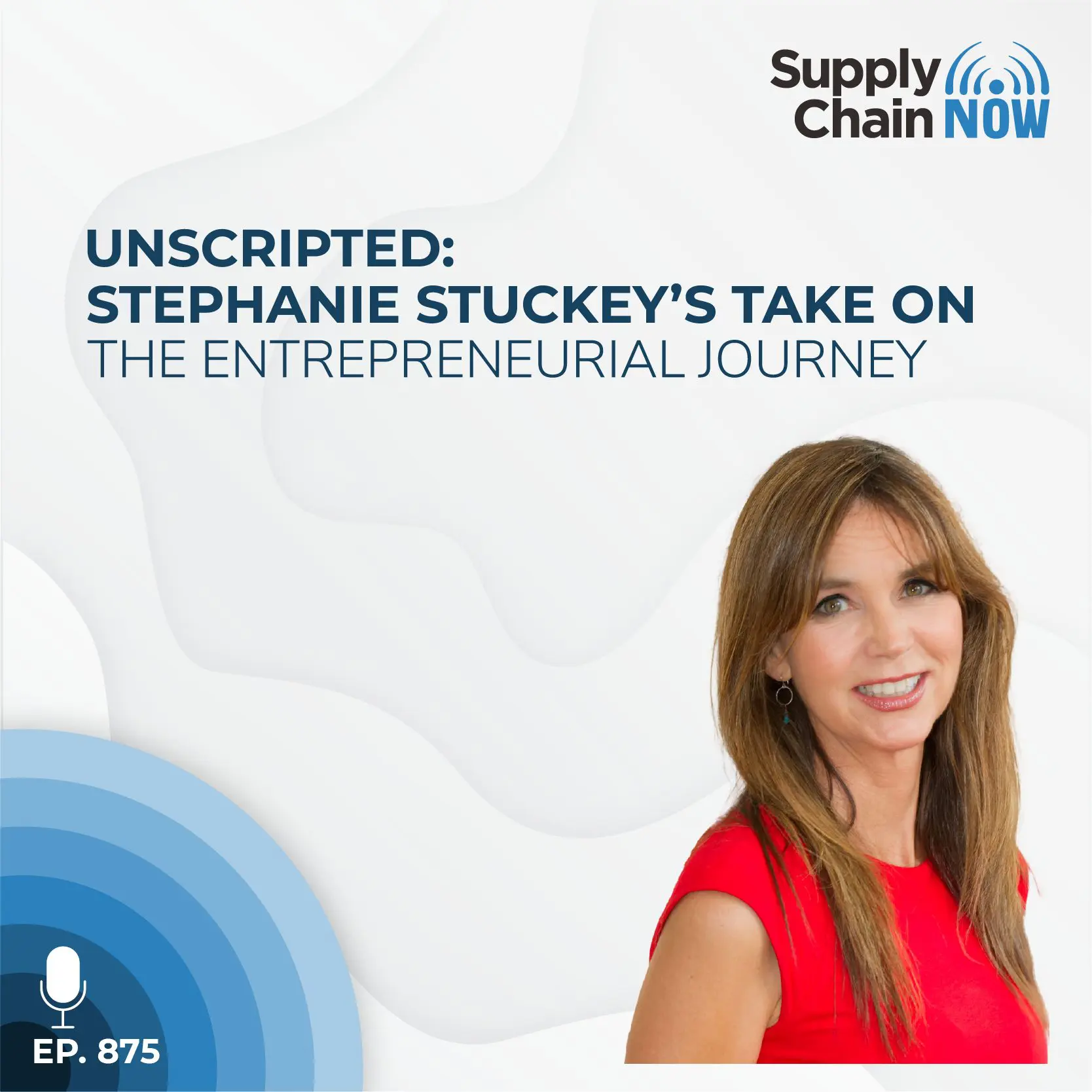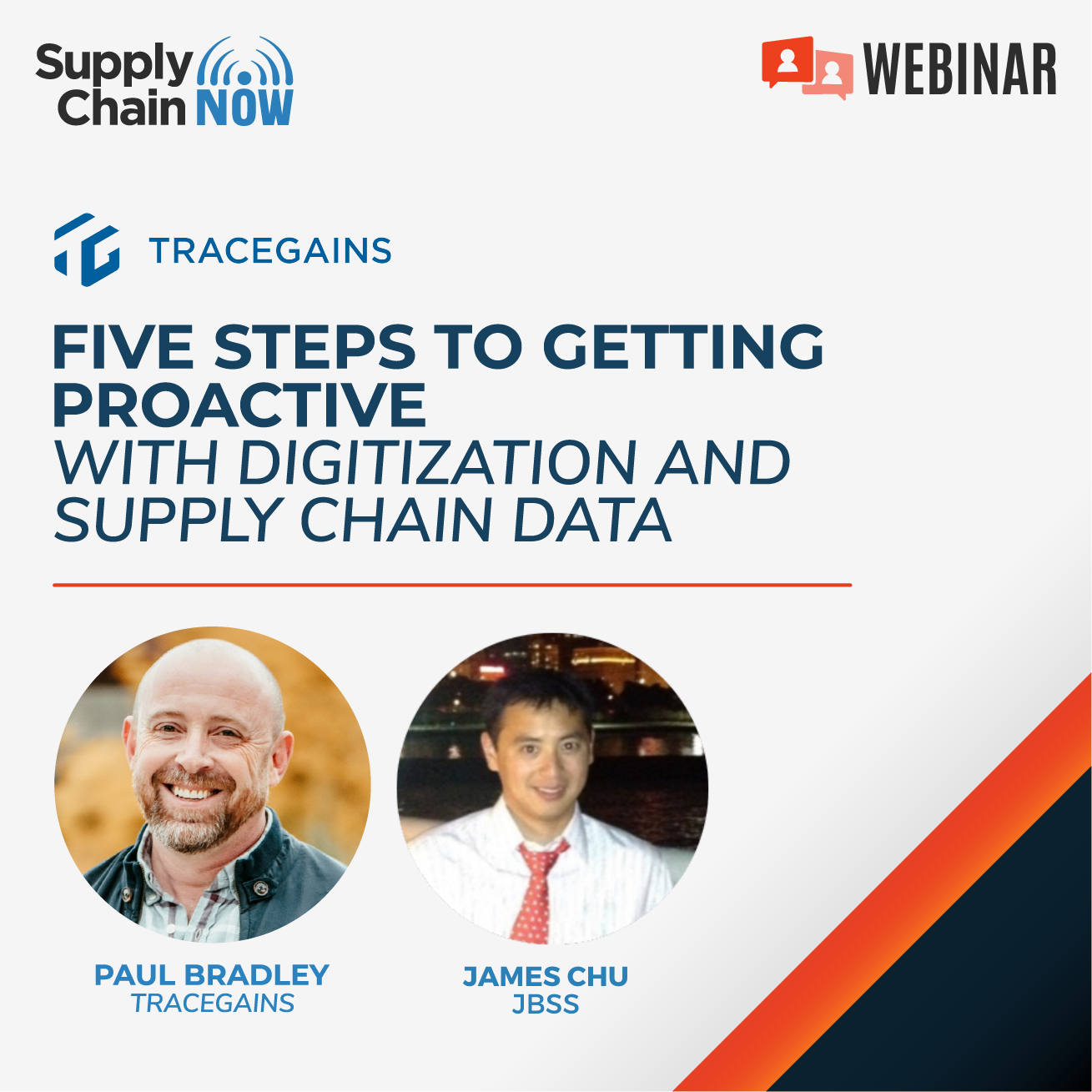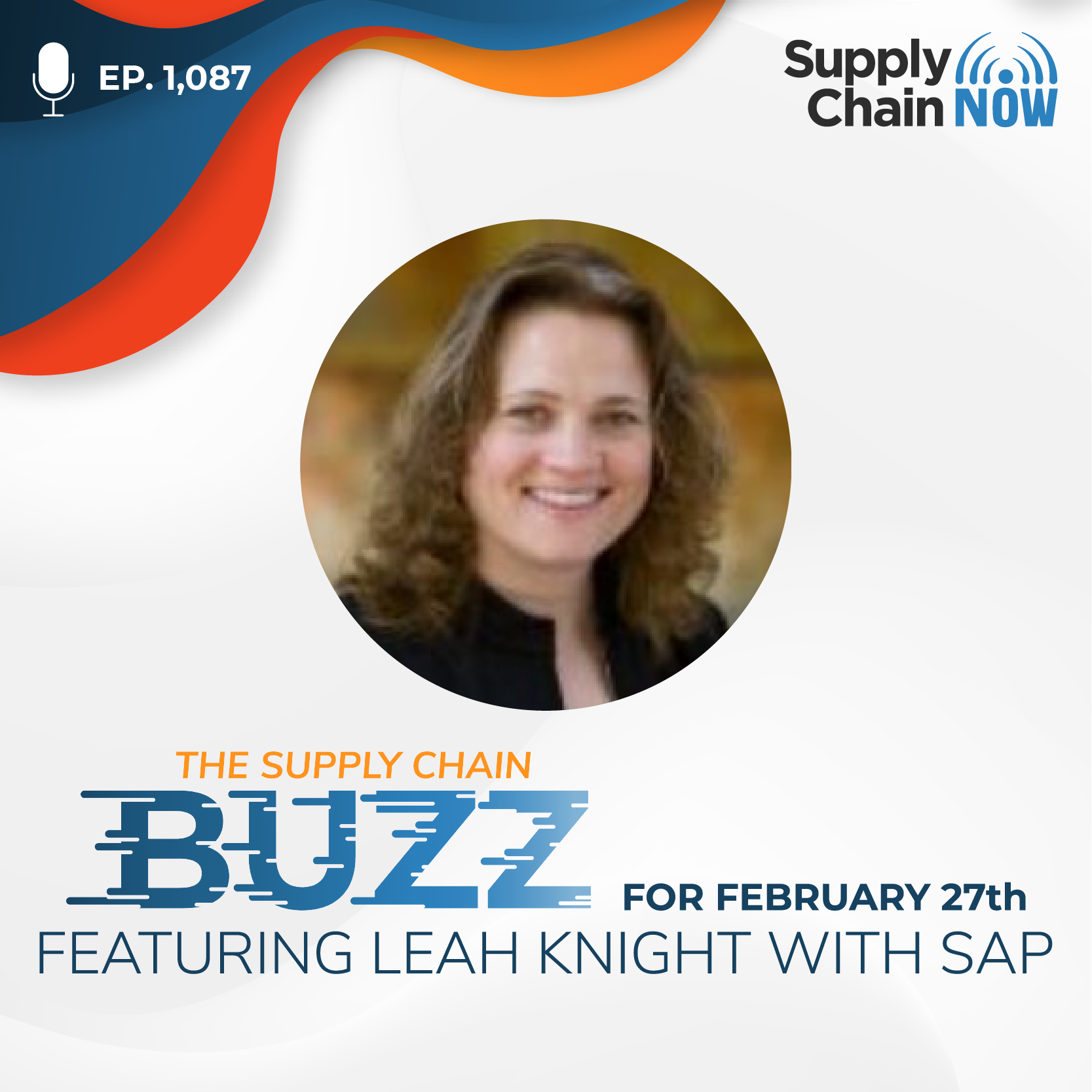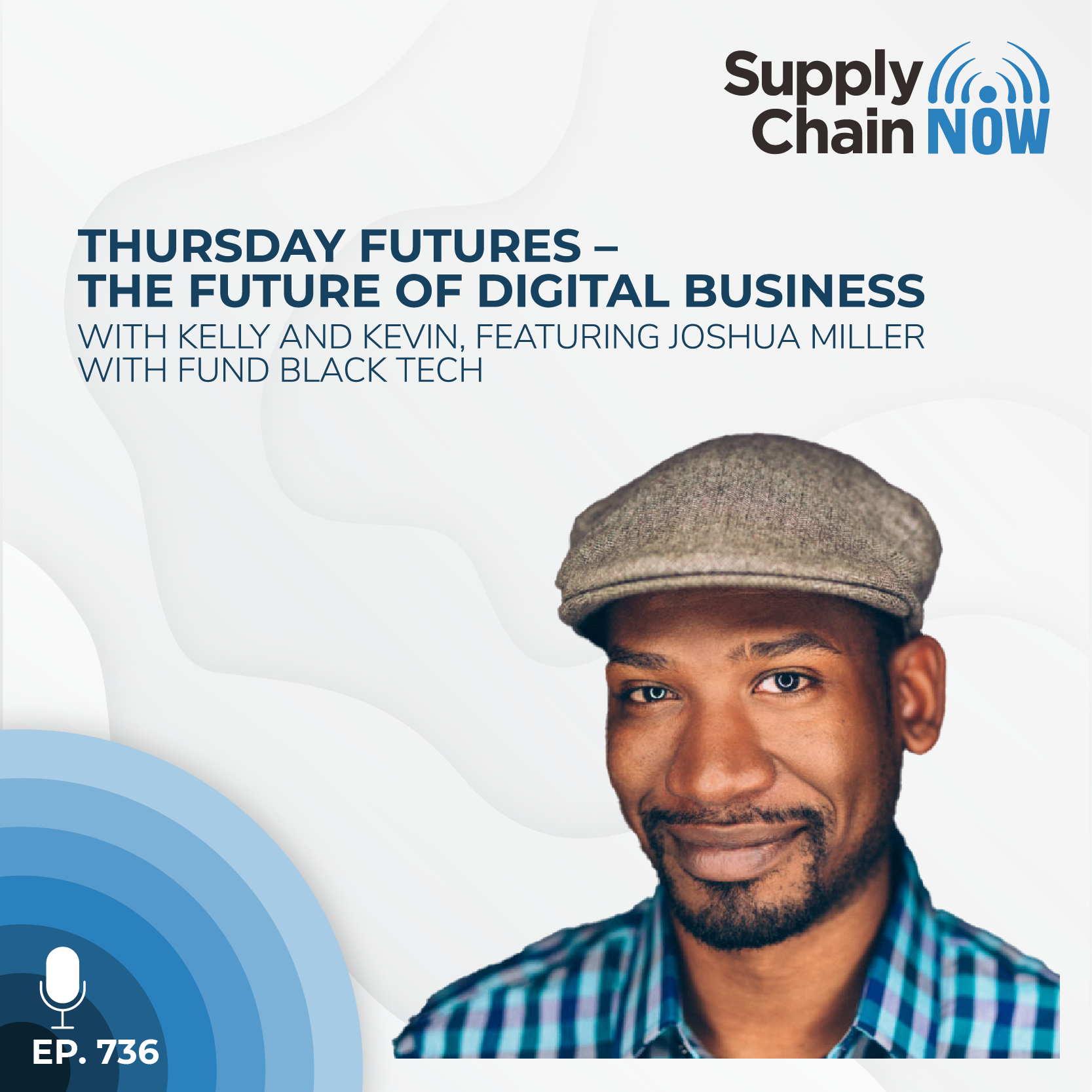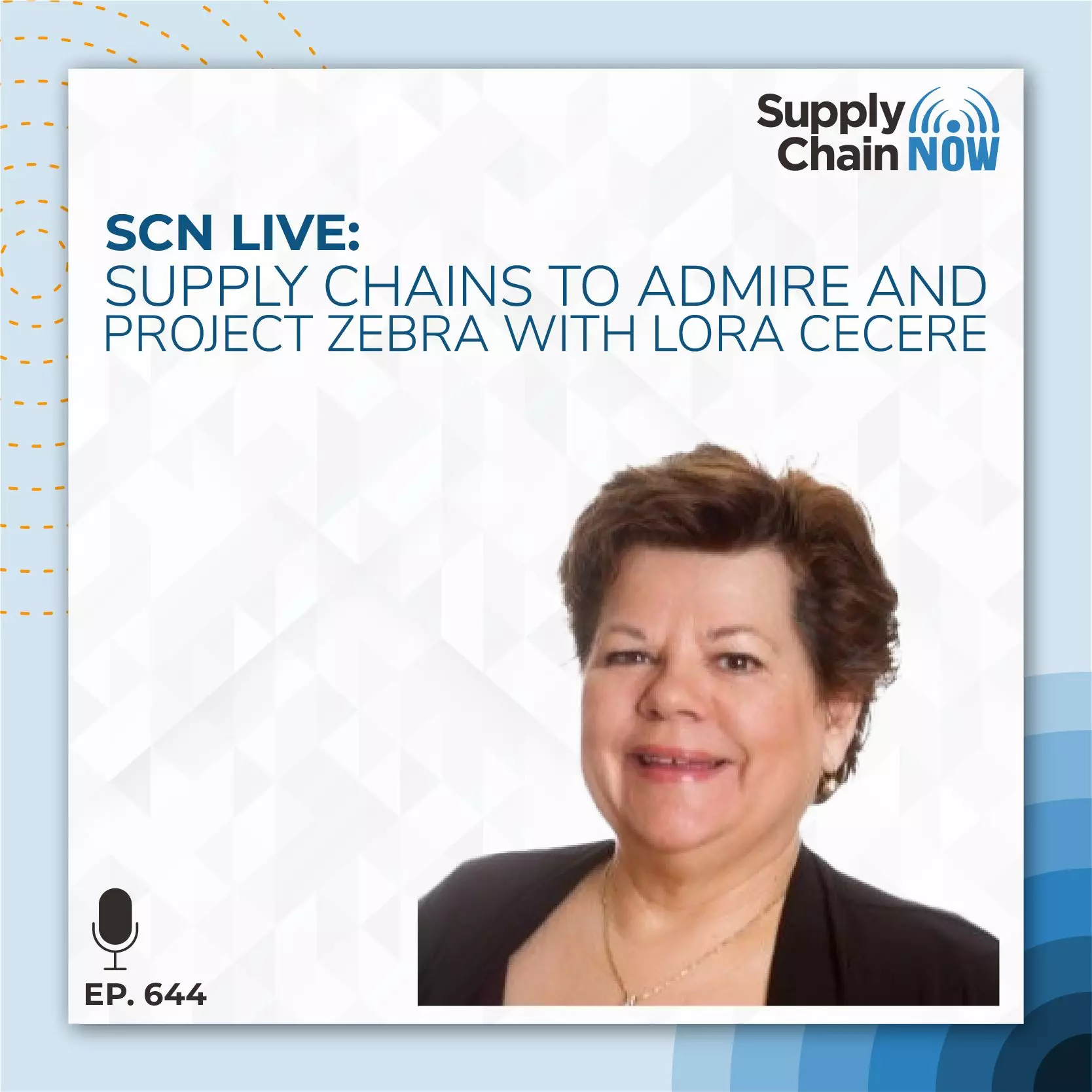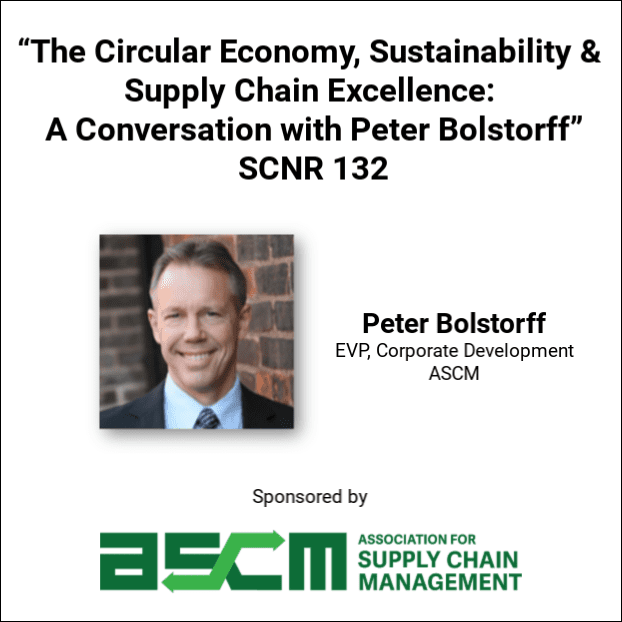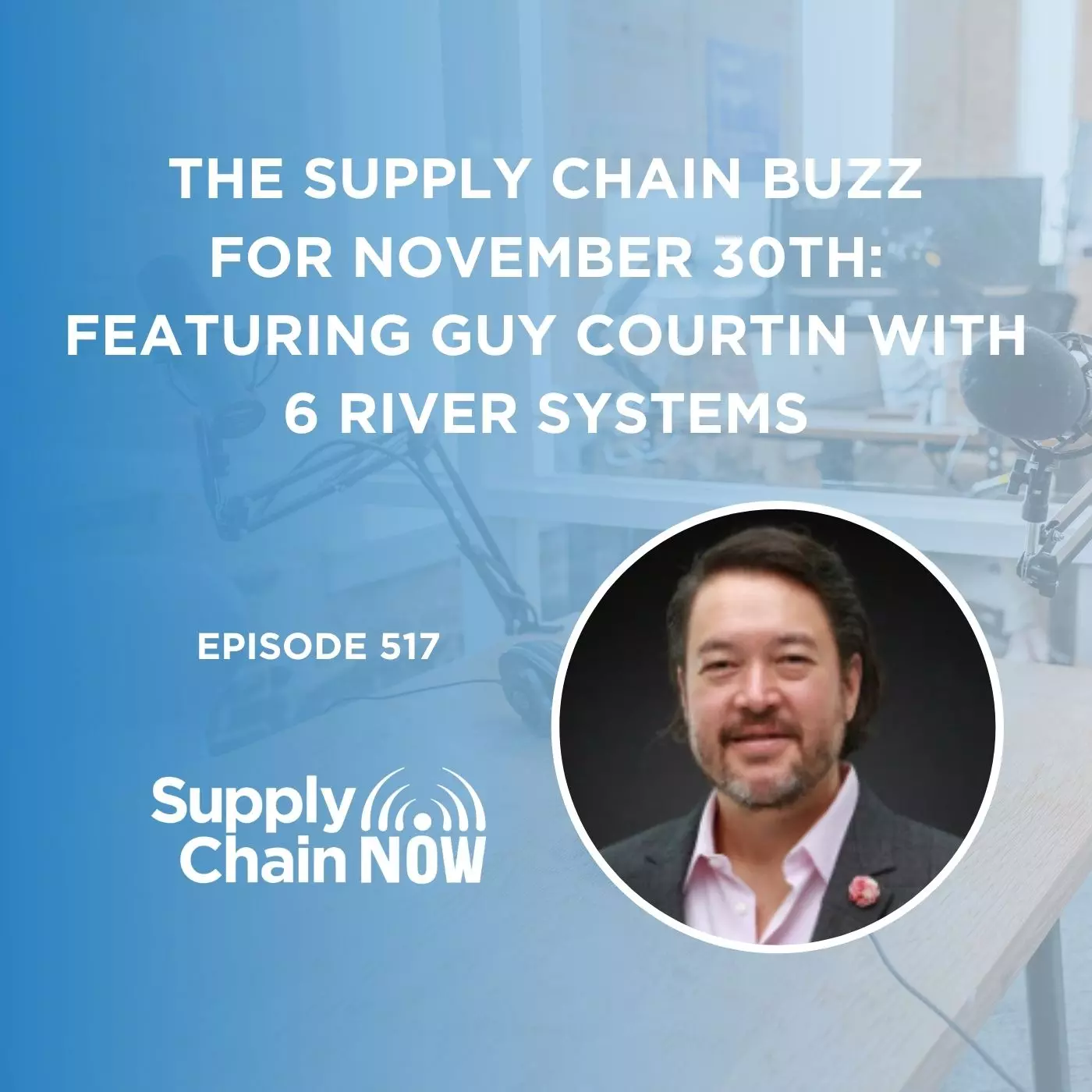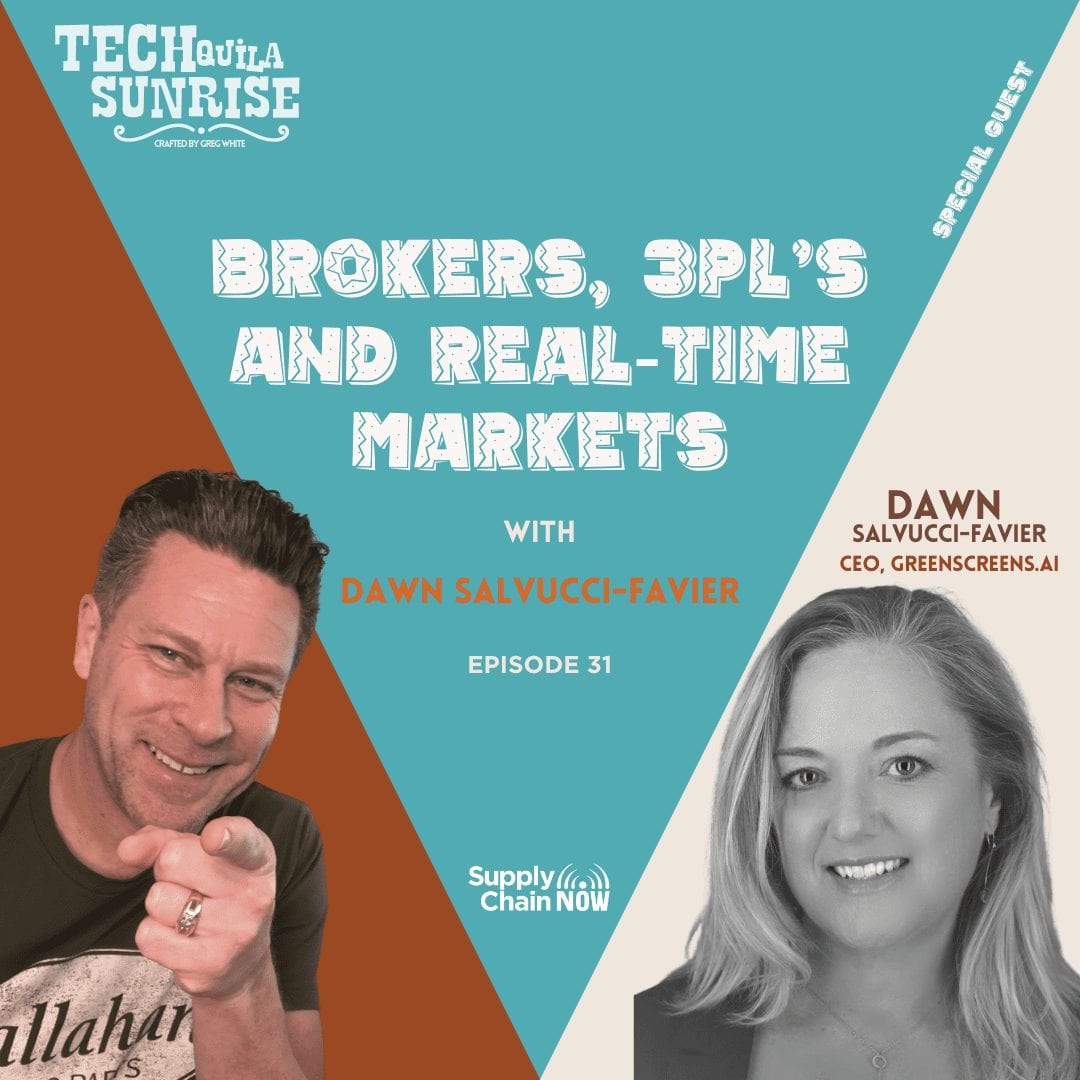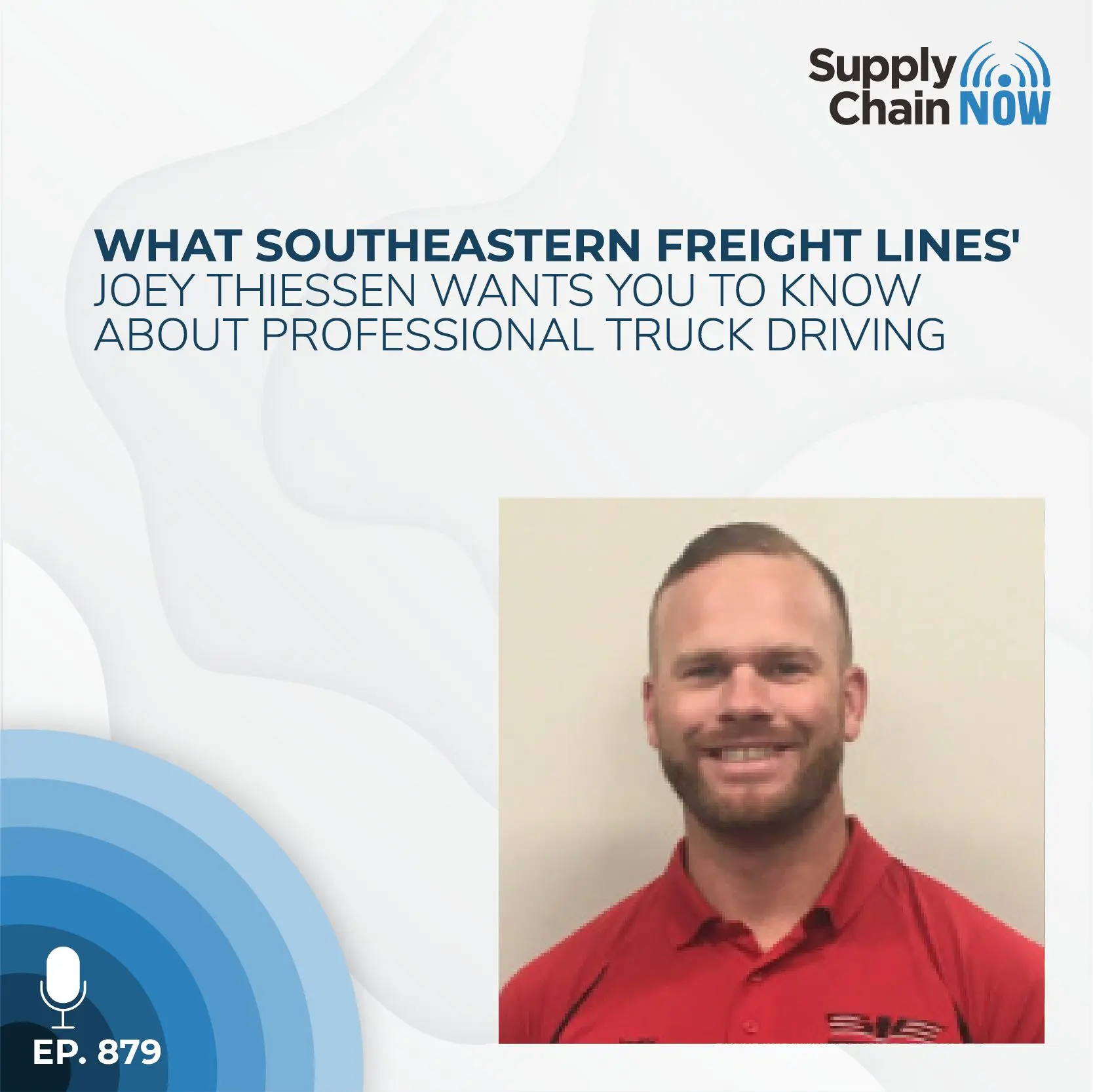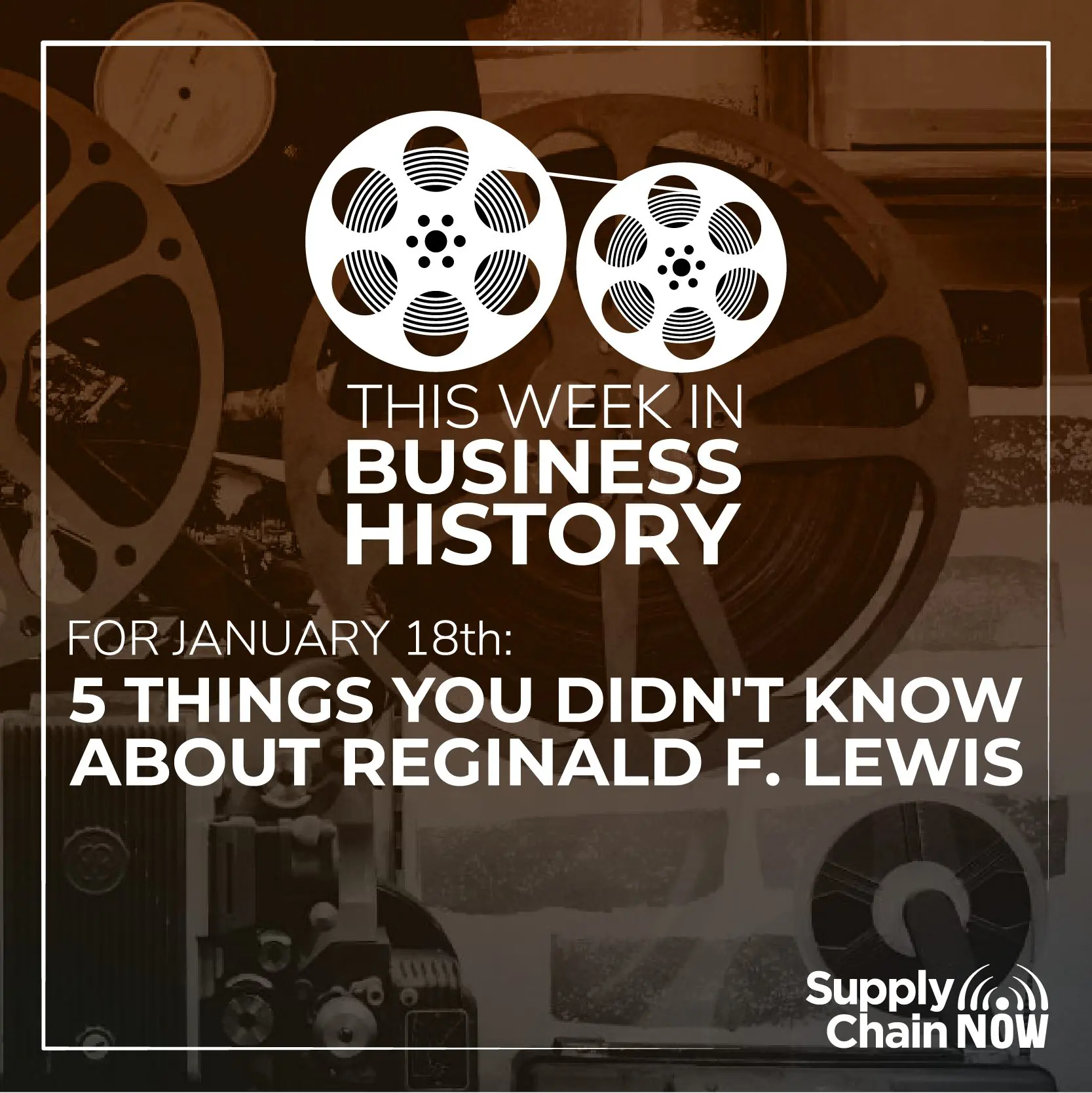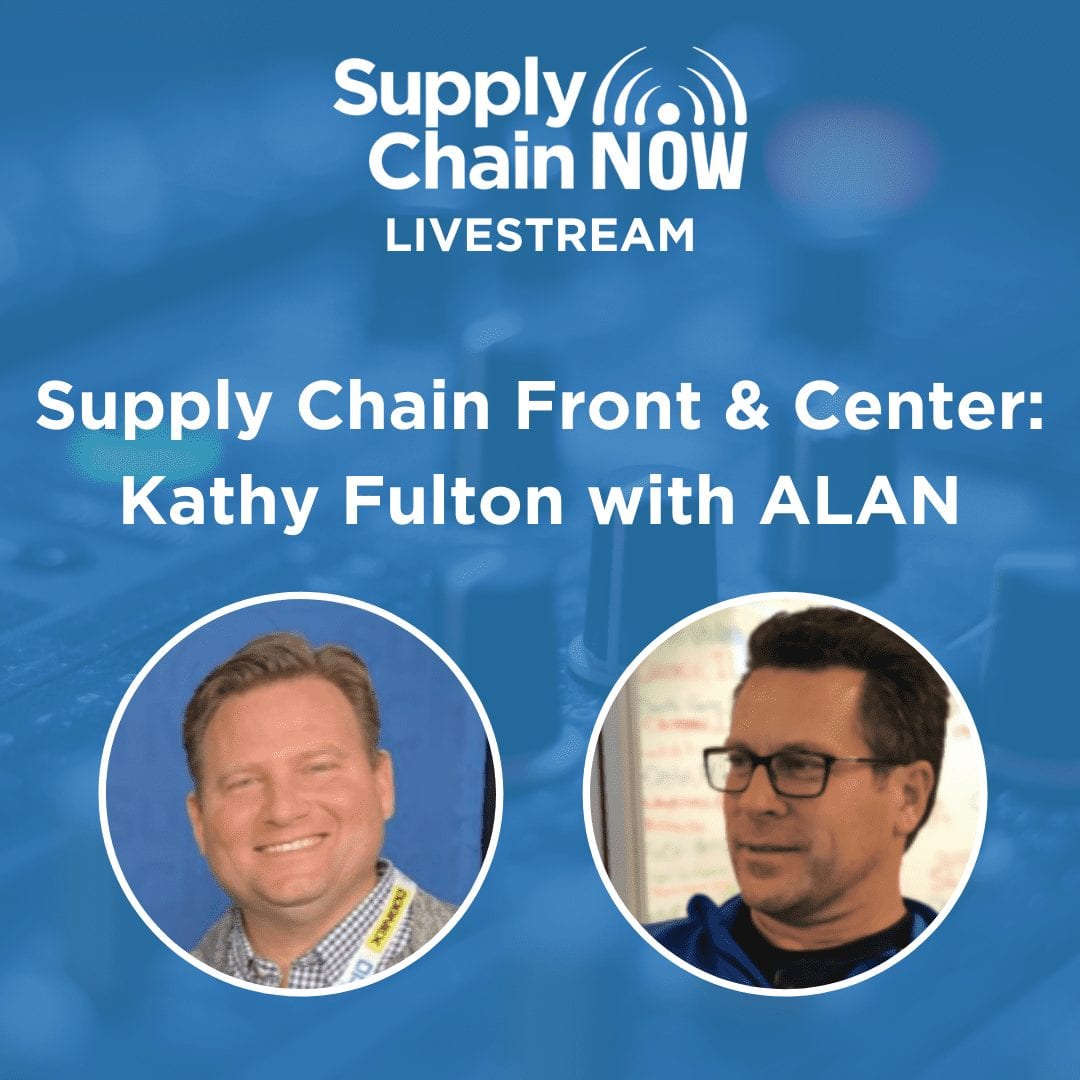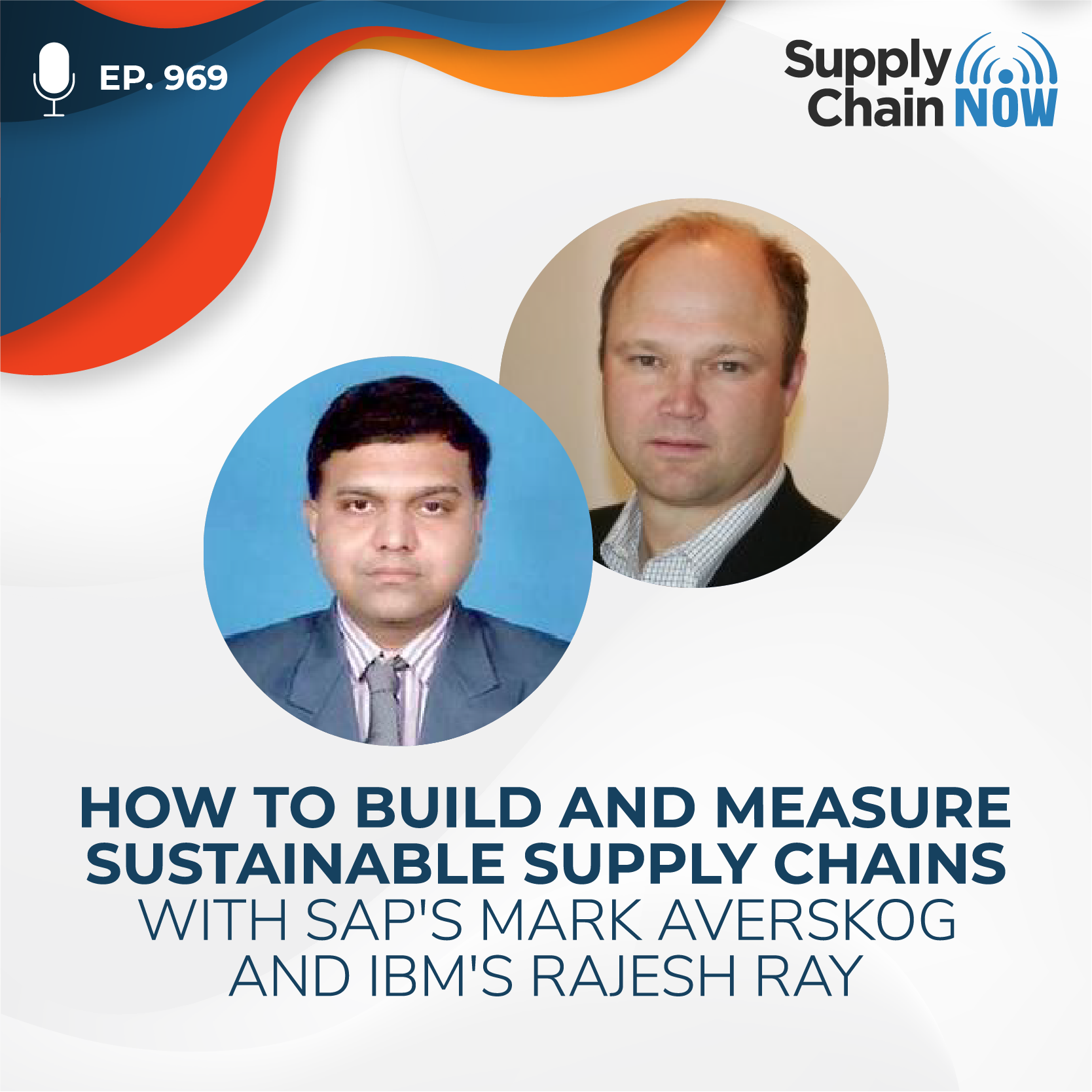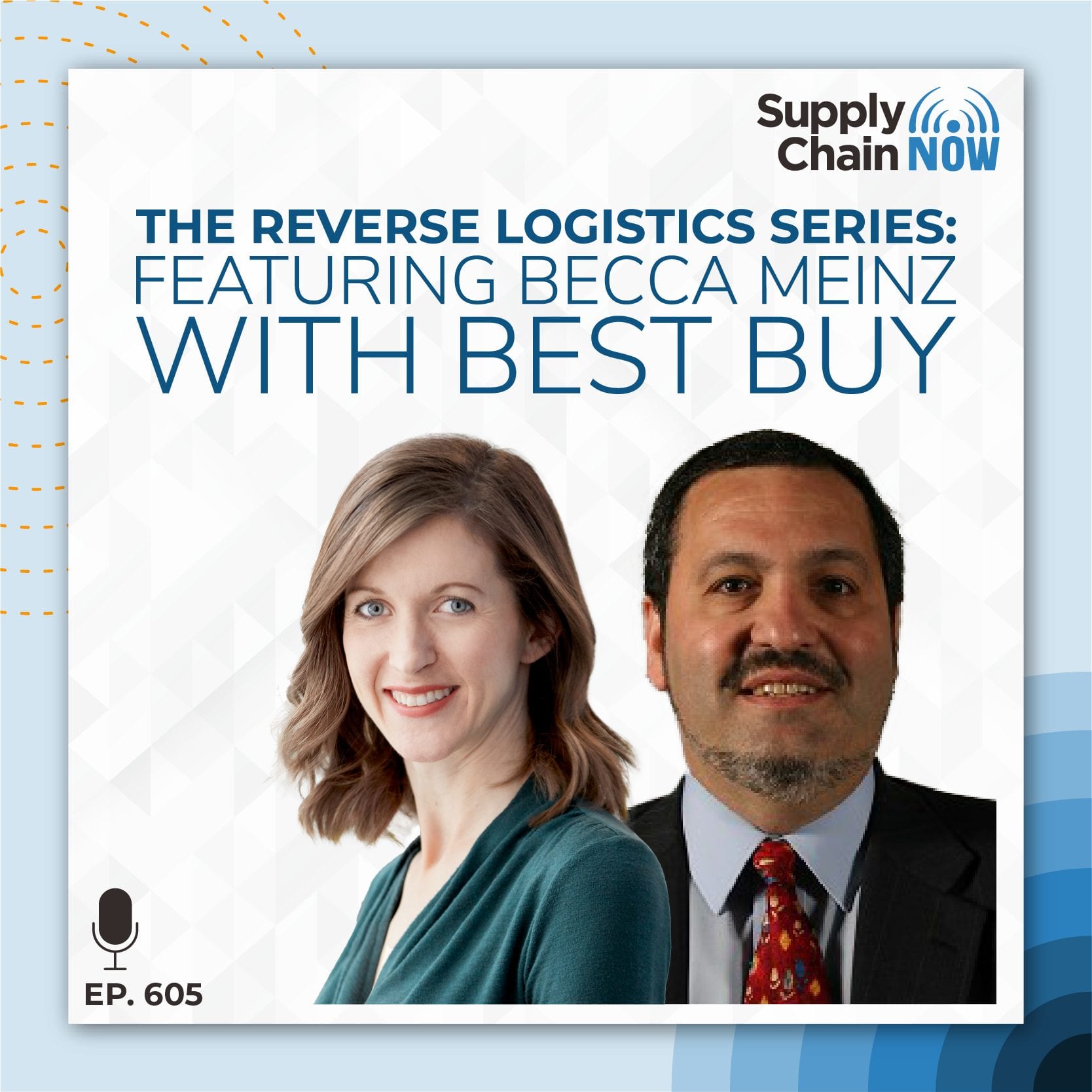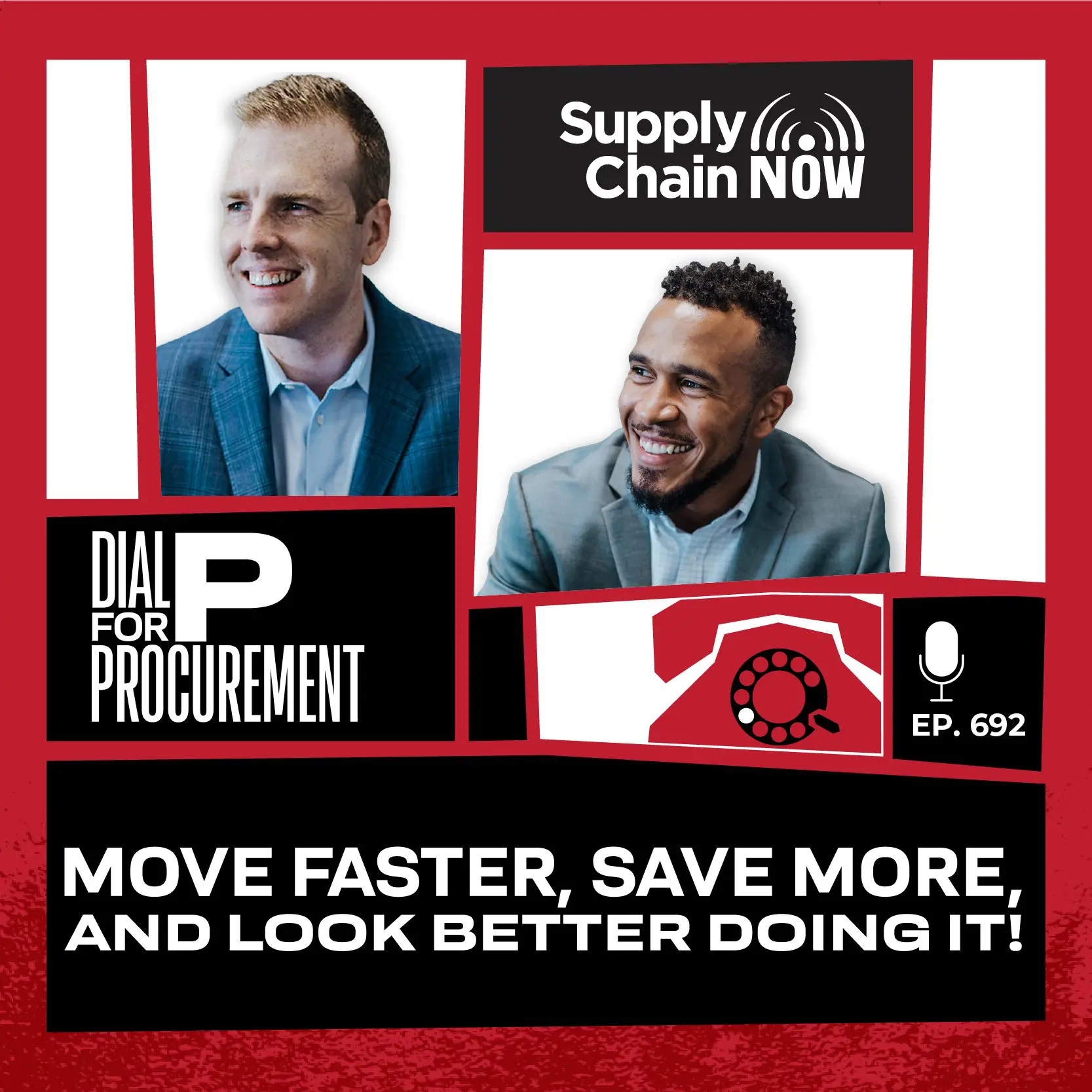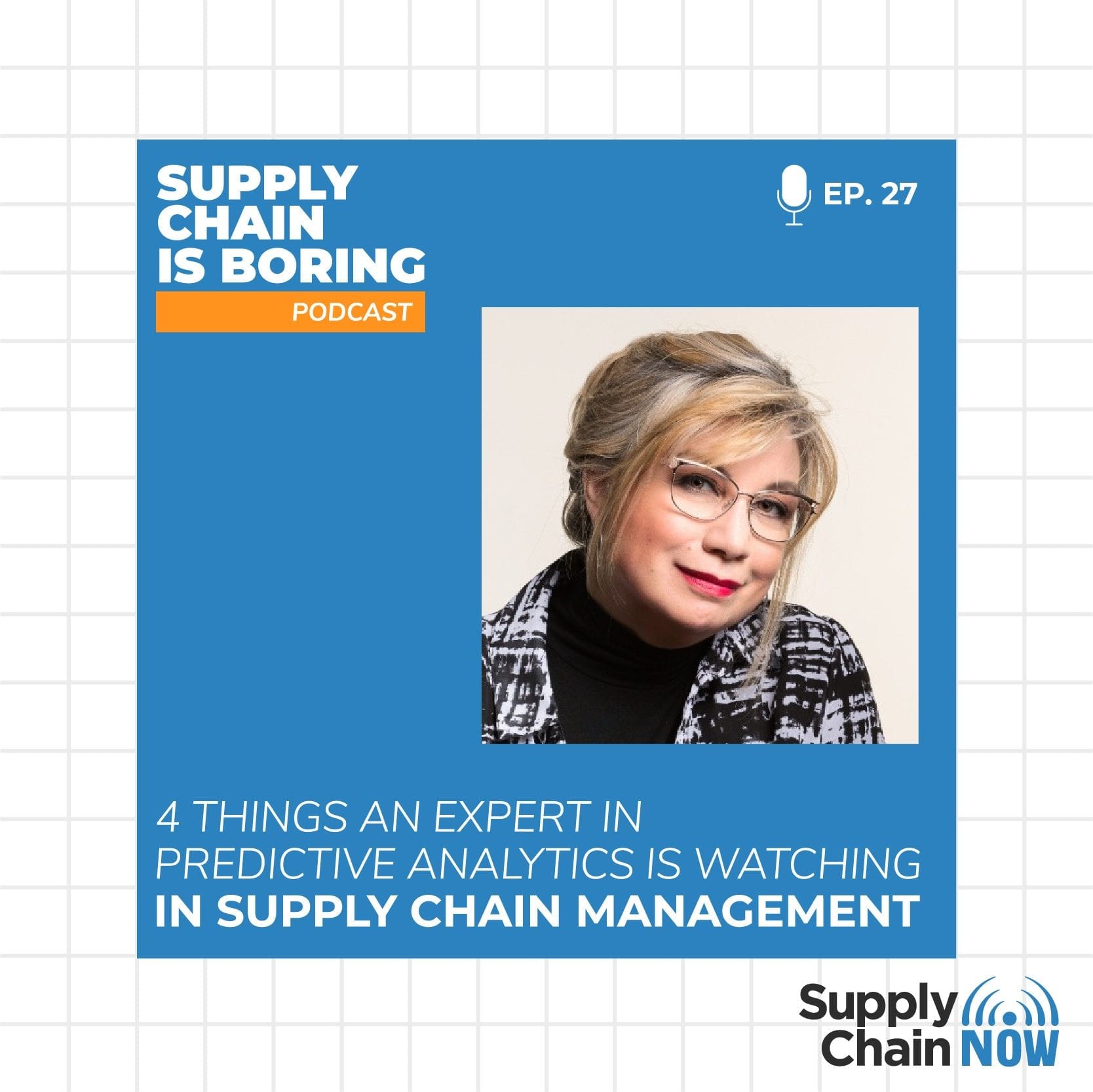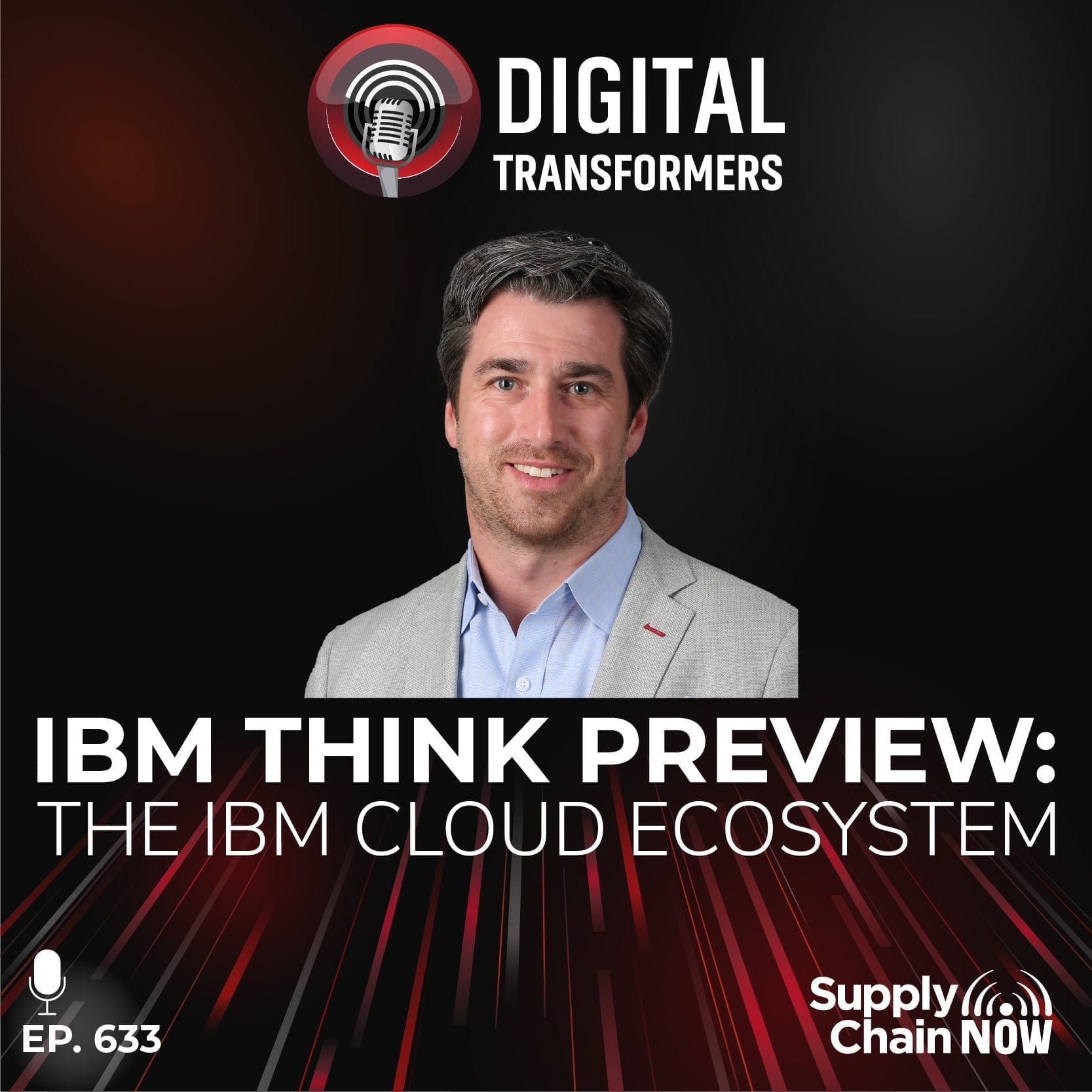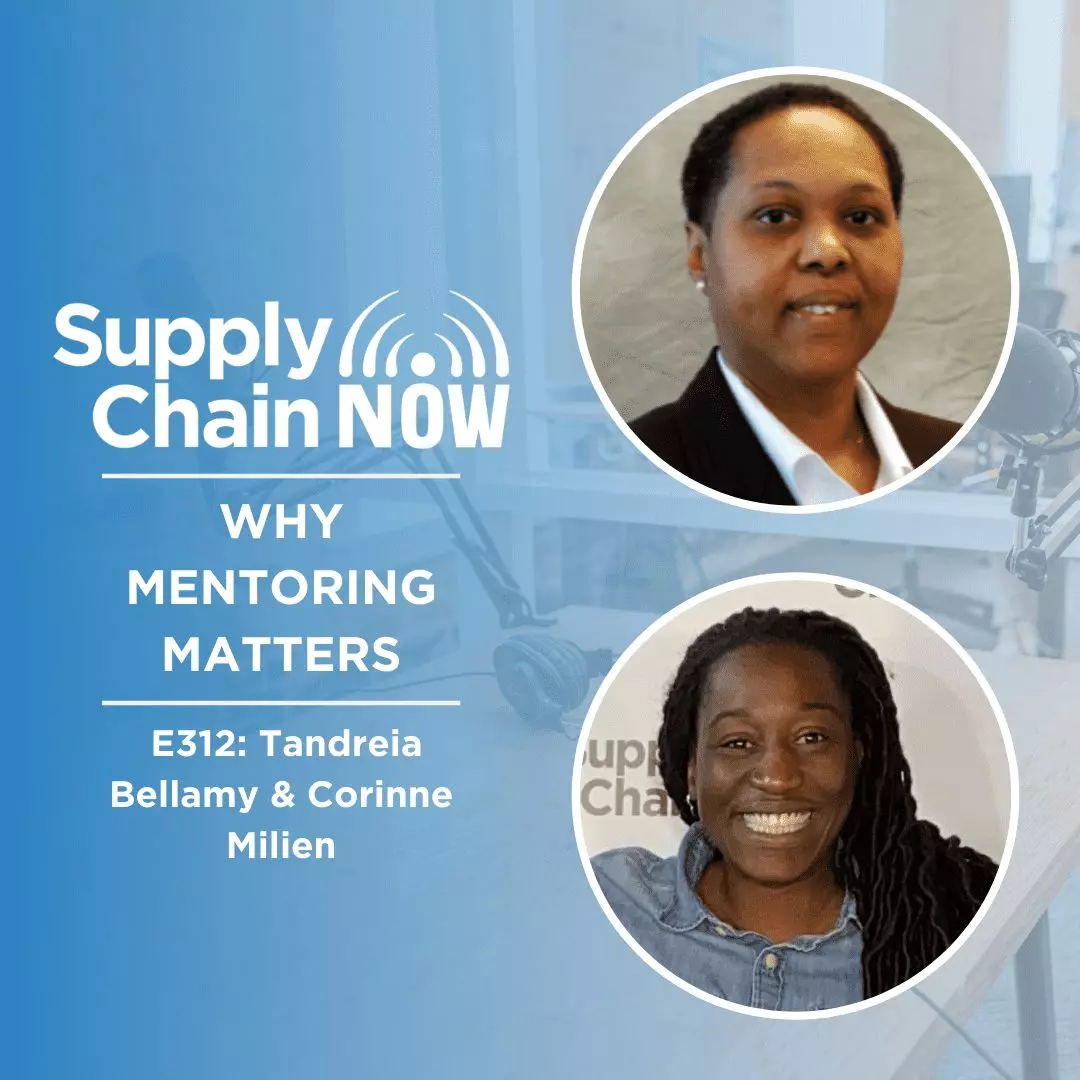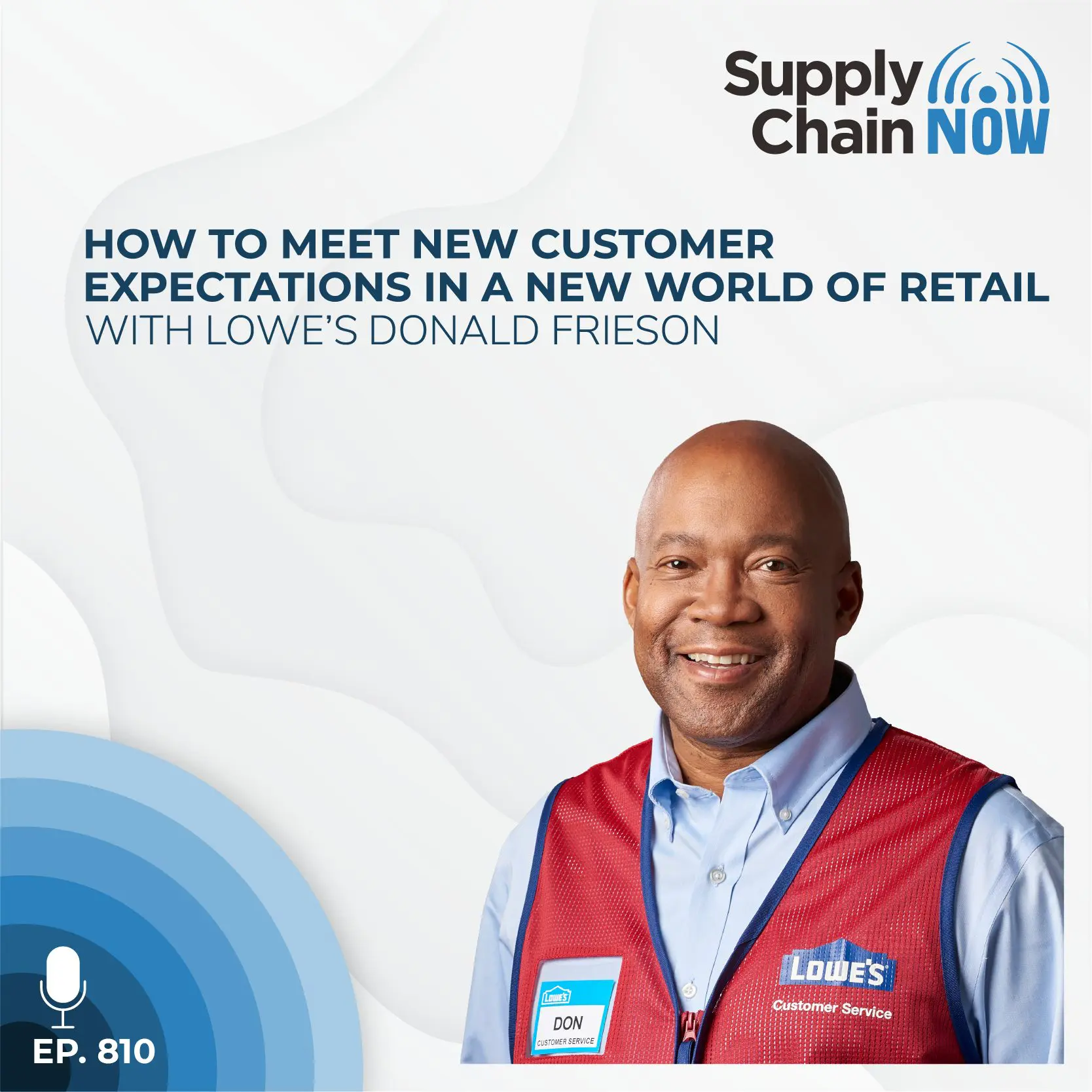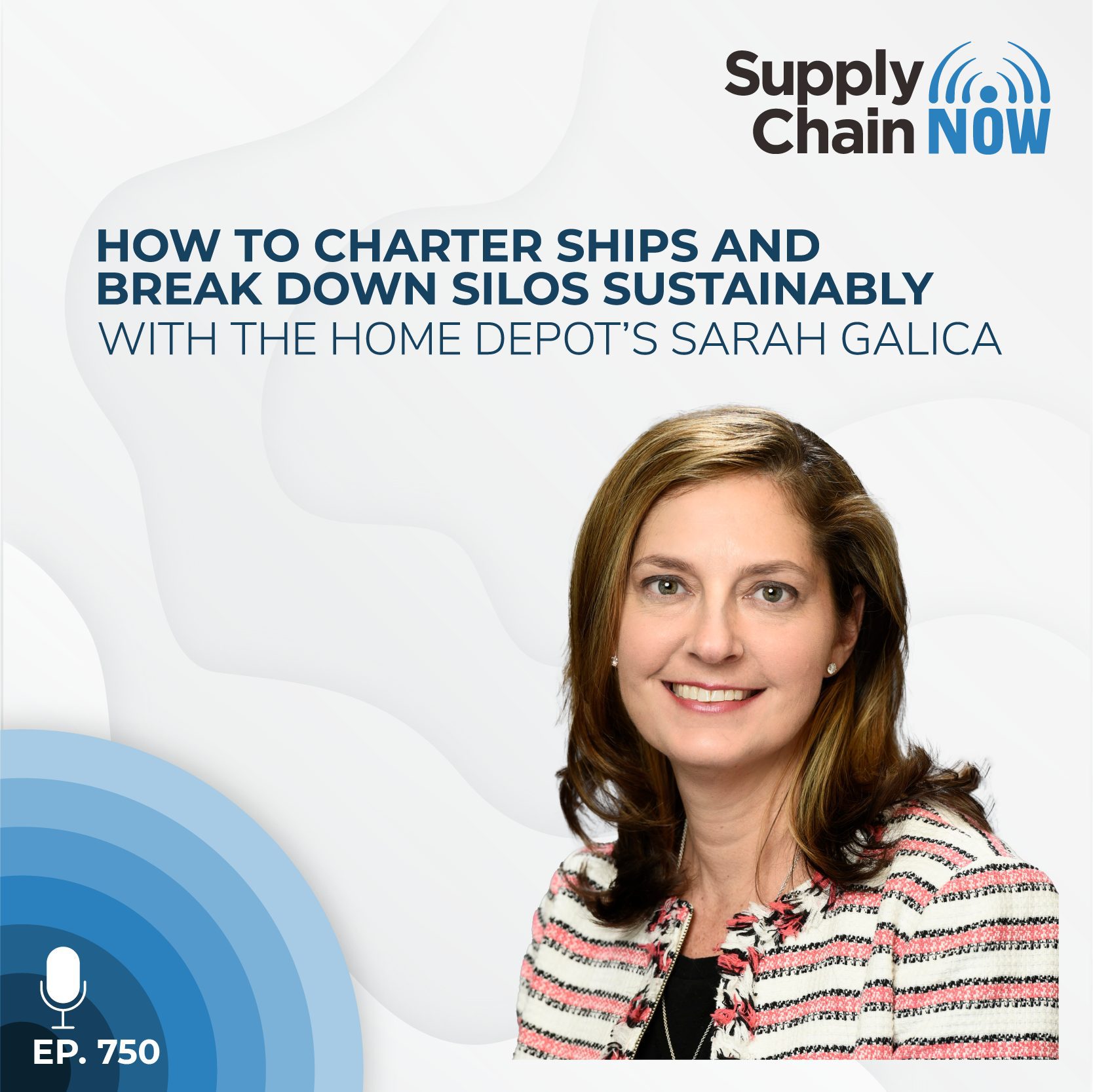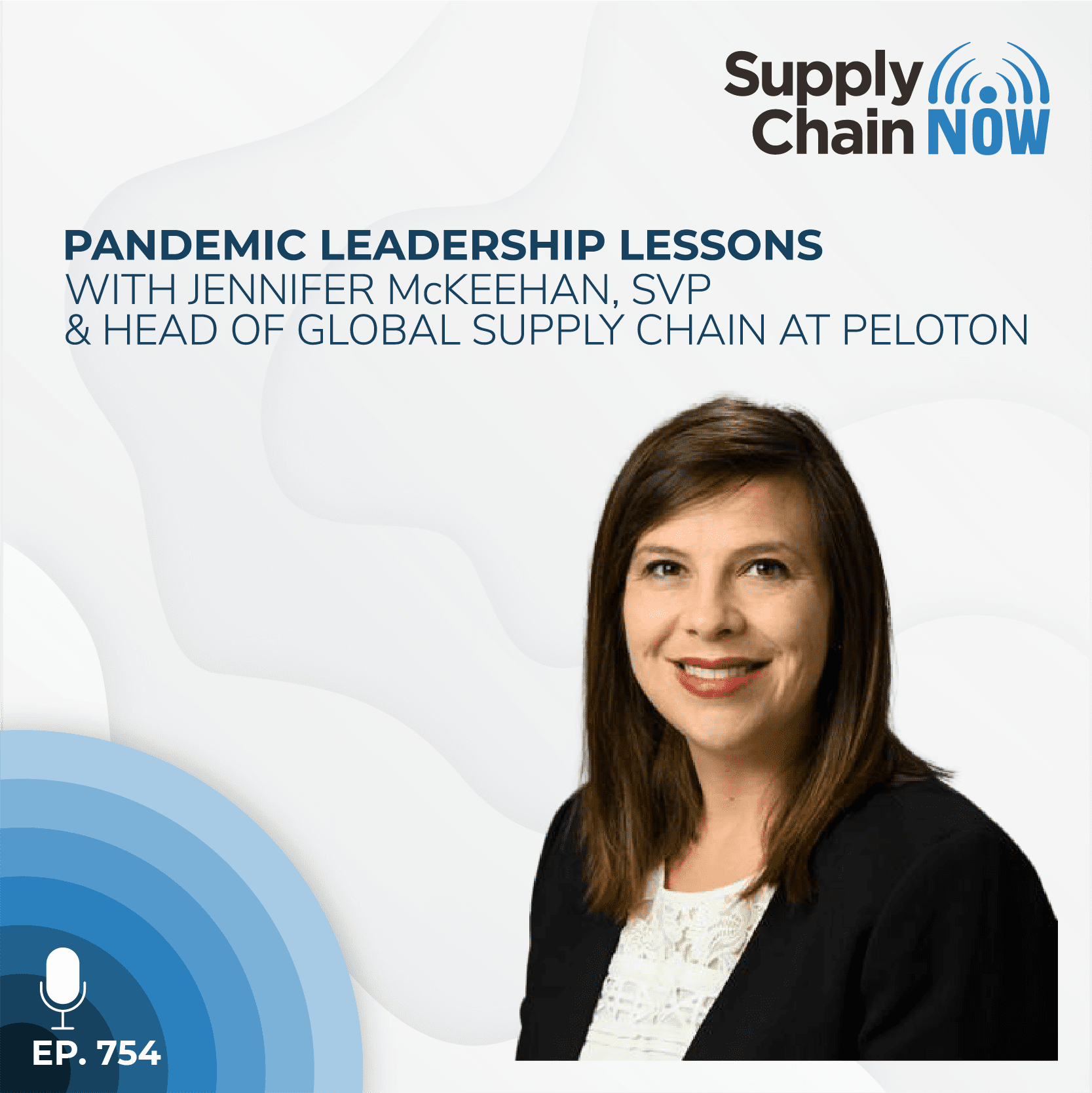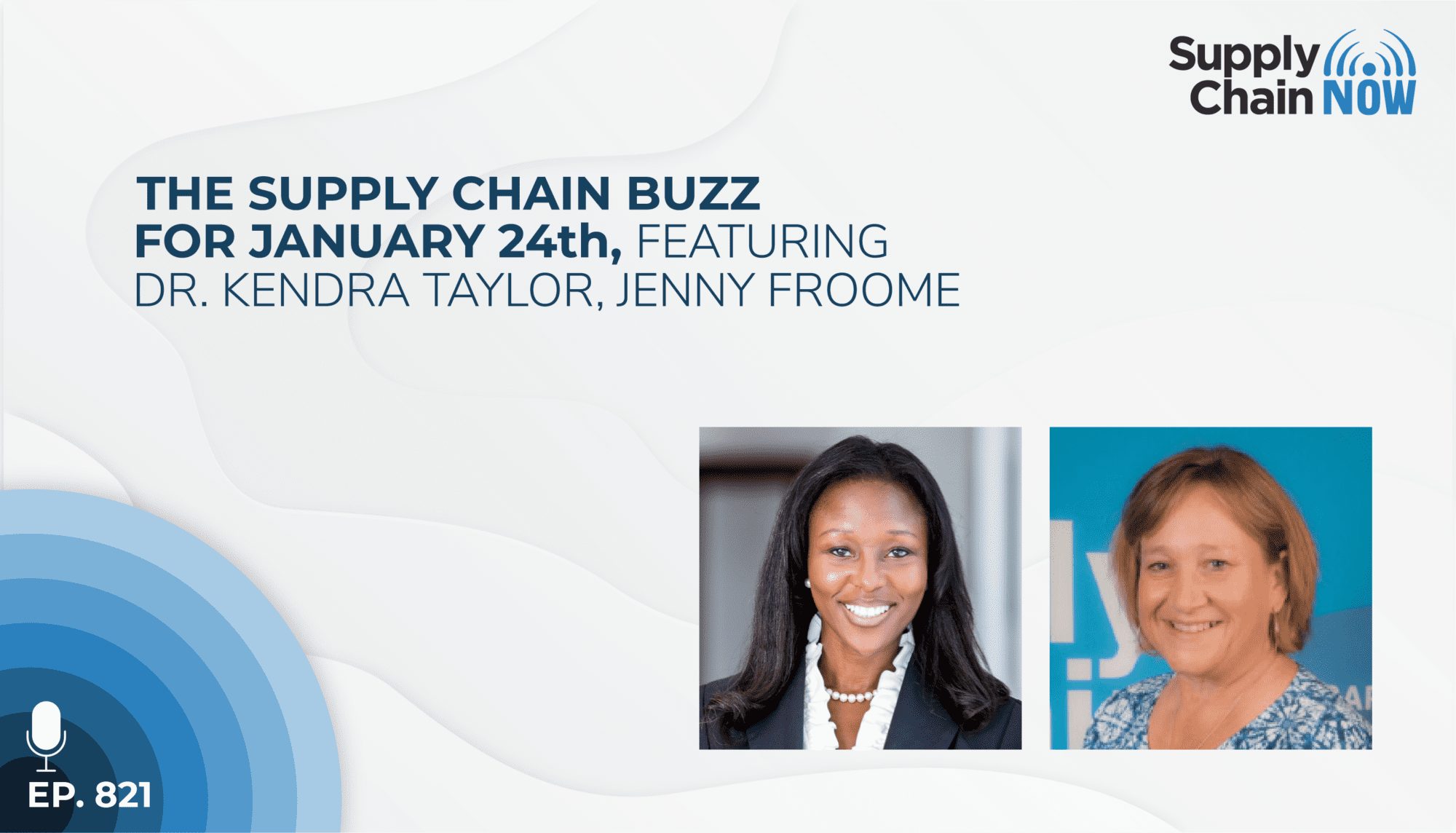
If we’re going to solve any of the problems in the world, we have to start with our supply chains.
-Jenny Froome, SAPICS
Episode Summary
Imagine this: you visit the grocery store for some milk. Before purchasing, you scan a QR code to review the ethical standards of the supply chain that created and delivered it. This is just one of the ways new technologies promise to help bring buyer awareness to pressing global issues like human trafficking as they permeate the global supply chain. Tune in for this week’s Buzz with Scott Luton and special co-hosts Kelly Barner and Jenny Froome as they discuss this crucial human rights issue and the supply chain’s role in making a difference with Kendra Taylor, CEO and President at KEYfficiencies.
Episode Transcript
Intro/Outro (00:00:03):
Welcome to supply chain. Now the voice of global supply chain supply chain now focuses on the best in the business for our worldwide audience, the people, the technologies, the best practices, and today’s critical issues. The challenges and opportunities stay tuned to hear from those making global business happen right here on supply chain now.
Scott Luton (00:00:30):
Hey, good morning. Good afternoon. Good evening. Wherever you are. Scott Luton, Kelly Barner and Jenny from here with you on supply chain now. Welcome to today’s live stream. Jenny Kelly, how are we doing? Great.
Kelly Barner (00:00:42):
We’re good. Happy Monday,
Scott Luton (00:00:44):
Happy Monday. Are those words really ever uttered? Well, I
Kelly Barner (00:00:47):
Think the question is whether they’re really meant <laugh> how about I wish everyone a happy Monday. How’s that? Uh, that is right then at the end of mine Monday and it was a happy Monday. So that was good.
Scott Luton (00:00:57):
That is right Jenny you’re uh, what, five or six hours ahead of us? Yeah, we we’re 7:00 PM
Jenny Froome (00:01:02):
Right now.
Scott Luton (00:01:03):
7:00 PM. Well, thank you very much for joining us and Hey, it is happy Monday if you love what you do. Right. And, and I certainly love our collaborations together. Uh, and folks Kelly Barner and Jenny Froom are, we got a big show teed up here today. Um, for the supply chain buzz, I’m calling it the special deluxe edition. Um, it kind of made me think of, uh, John Travolta and, um, casino, not, I know what’s the, what’s that movie where they’re driving down the road and they’re talking about big Mac in France,
Jenny Froome (00:01:36):
Perfection. Yes. Royal with cheese.
Scott Luton (00:01:42):
So a little play on that. Uh, but this is a special deluxe. Not only do we have two special, uh, guest co-host dear, dear friends, Kelly Barner hosts of our popular dial P for procurement program. Also, she leads, uh, over at buyers meeting point and, uh, art procurement, you name it. Uh, and Jenny fr who hosts our dynamite supply chain leadership across Africa series also, uh, COO over at say pick, which is doing great things across really across Africa. Uh, but Jenny you’re based in Johannesburg, right? You live in, in Johannesburg, right?
Jenny Froome (00:02:16):
I am indeed. And it’s finally summer.
Scott Luton (00:02:19):
I had to, um, I had to clarify that for folks. So folks didn’t think you were just, I’m traveling and just six hours ahead of the rest of humanity, just super specially
Jenny Froome (00:02:27):
Fast <laugh>
Scott Luton (00:02:29):
So, all right, so you can’t tell us winning lottery numbers or anything, uh, change our, unfortunately not <laugh>. Um, one final thought we were talking weather Kelly and, and Jenny in the pre-show as we were getting everything fixed. And of course, Kelly in Massachusetts and us in Georgia, you know, along the east coast were getting, uh, mid twenties, uh, temperatures, Kelly, what was your morning like this morning?
Kelly Barner (00:02:52):
Um, is it that warm yet? It’s 25 right now. It was in the mid teens during the bus stop phase of the day. So very cold, but we sort of expect that this for you guys is probably extreme.
Scott Luton (00:03:04):
We, we don’t know what to do with ourselves, Kelly. We really don’t, uh, other than not drive. Uh, but that’s say that’s part
Kelly Barner (00:03:10):
I know is listening. Amanda, this is when you put on your cute winter coat that you only wear like two times a year and your boots that’s what days like this are for <laugh>.
Scott Luton (00:03:18):
I love it. I love it. But Jenny, uh, uh, you know, across the ocean there, this is a warm, what what’s, what are your days and weather like right now? Well,
Jenny Froome (00:03:26):
It’s very sound, it’s very warm today, but I’m very thunder loads of thunderstorms and we’ve had masses of rain, which, you know, we are lucky and where we are. Um, I’m not even going to attempt to talk about tempera because I don’t understand your temperature scale <laugh> so I can’t convert it, but it’s warm.
Scott Luton (00:03:45):
Yes. Uh, we’ll have to break out the ProTrack and do those conversions later. Uh, but Hey, uh, beyond Kelly and Jenny here today, we’ve got two very special guests joining us. Uh, Sally Eves, PhD and Kendra C Taylor PhD. We’re gonna be talking about, um, DEI, uh, diversity, um, equity and inclusion initiatives, which are, uh, thankfully, uh, growing a lot more momentum, having a big impact. We still got some work to do there. Uh, and we’re gonna be talking about, um, uh, human trafficking, uh, given that this is the month of, uh, national human trafficking prevention month here in states as designated by the white house. And there’s a lot of work to be done to really eradicate these tra travesty of human trafficking and modern slavery. And Kendra’s, uh, got some wonderful work, um, data driven work, uh, that she’s gonna share. They’ll offer up some resources for folks. So stay tuned and Hey folks we wanna hear from you as well. Uh, we’re gonna say hello to all the folks that are, that have, uh, been logging in here in just a second. So Jenny and Kelly, great show lined up here today, right? Absolutely.
Jenny Froome (00:04:49):
Yeah.
Scott Luton (00:04:50):
Exciting, happy, happy Monday. Okay. So let’s do this. Uh, I’m gonna make sure we’re, we’re gonna share a couple of, uh, events coming up in a second, but let’s go ahead. I love saying hello to folks and kind of hearing what, what they’re up to, uh, wherever they are in the world. Let’s just do that. How about that? Josh goody. He’s tracking with us a with cheese. That’s what I was. That’s what I was after Josh. Yes. Pulp fiction. You love there. There’s so many elements of that movie that that’s just classic, but yes, today’s supply chain. Buzz is a Royal cheese and uh, good morning and happy Monday to you. Uh, Gabriel Solomon is tuned in with us via LinkedIn. Great to see ya. Hey folks, if you hadn’t already let us know what, what part of the world are you tuned into? Let’s see here. Jason T. Hopkins back, Kelly and Jenny y’all know anything about Jason T. Hopkins, sports related Kelly. I think he may have appeared on last week’s livestream. You were do. Do you happen to know what sports teams he’s a big fan of? I do not a Crimson tide. He’s a big Alabama Crimson tide fan by way of Washington DC though. He lives up in DC. Jenny, you are smiling. Are you a big, uh, American football fan?
Jenny Froome (00:06:04):
Um, no foreign language, a bit like your temperature gauge really?
Scott Luton (00:06:09):
<laugh> right. Love that way. Jason. Great to have you back with us here today. Gene pleasure, uh, is tuned in, I P now Jean, that’s a new one. Kelly, you’re shaking your head. Do you know this acronym? I do not, but he’s
Kelly Barner (00:06:21):
Happy to be there by the emoji. So it must be a nice place.
Scott Luton (00:06:25):
<laugh> OK. Jean, let us know, fill us in on the joke. I love a good inside joke and I hope to, to, to quote Michael, see, uh, Michael Scott. I hope to be part of one, one day, but Jean let us know. Uh, Mohe is back with us. Great to see you here. Good to see. He says my new best, best buddies forever. Maybe Jenny, is that right? Best.
Jenny Froome (00:06:45):
I thought it was BFF, but you know, maybe it’s American as well.
Scott Luton (00:06:49):
<laugh> so Jenny for the great continent South Africa, Hey Mohe. Great to see here. And of course Moheb is dialed in from Wichita, Kansas. The air cap of the world Kelly memory is back. I think you were on the live stream last week where she was dropping some knowledge, right? Welcome back memory. Um, I love that, uh, Natalie, Christian’s back with us from Charlotte, Natalie. I think you’re doing some hiring if I, if I saw that right on social media. Uh, and I tell you having known you you’d be a great person to, with, so feel free to drop that in the comments, Claire also from Joe Berg, uh, very proud of in the house. Yes. So Claire, so tell me about Claire. Uh, Jenny Claire
Jenny Froome (00:07:29):
Works with us. She does our marketing and has worked with us often and on for, for a number of years and is brilliant at what she does.
Scott Luton (00:07:39):
Wonderful, wonderful, Claire. Welcome in. We love what say picks up to let’s see, Mohe says, Hey, hi Kelly. My procurement and intake for PE went up after dialing piece. <laugh> so little inside joke there maybe, or a little something. We were joking about a few weeks back. So Kelly and I, uh, as Kelly dropped an episode on this in history about, uh, the father of the frozen food industry, um, CLA Clare bird. Yes. CLA bird’s out. Thank you very much. So we had a little friendly, uh, debate, fresh peas versus frozen peas. Cause I’m a big LA P right outta the can. That’s why I grew up eating and Kelly you’re like no good, right? No. Cuz then
Kelly Barner (00:08:18):
You have to do already a little pot. So I like the frozen peas in the steamer bag that go in the microwave. <laugh> I’m don’t come to my house for food. I’m I’m not <laugh> but, but I do love peas and it was fun covering that business history episode, learning about the whole history. And now we just take the little bag right from the freezer, right. Toss it in the microwave. And there’s a vegetable on the table.
Scott Luton (00:08:40):
Well, uh, Mohe, thank you for reminding us about the hotly hotly debated topic of peas. Uh, let’s see here, yogis is tuned in from India. Great to see a via LinkedIn, uh, uh, helmet is back with us. Great to see a helmet I’ve really enjoyed your perspective via, um, social and south of France. I can just Jenny and Kelly. I don’t know about y’all but that, just, that just paints a picture, huh? Yep.
Kelly Barner (00:09:04):
Oh, absolutely.
Scott Luton (00:09:06):
Uh, let’s see. Steven’s tuned in with us. Um, let’s see here, Josh, he’s 38 degrees in welcome to Seattle Washington. I bet it does rain all the time up there. All right. So gene, here’s our acronym Buster. He says international production and processing expo in Atlanta. So a big event, I think. Yes. Well, you know, Atlanta hosts so many different events, but a gene is there. It is certainly the place be all right. So Kelly and Jenny really excited to be chatting with, uh, Sally and Kendra. As we get closer here today, we’ll be bringing them into the conversation here in just a second. And we may, and folks may be having a little bit of technical difficulties. Hey, Murphy’s law. Uh, it comes with the territory of live streaming, right. If we have, we’ll just work through it, uh, very transparently we’re here to, uh, offer up a great conversation.
Scott Luton (00:10:00):
So just bear with us. Okay. So Jenny and Kelly, let’s, let’s, let’s share a little bit of information, uh, about some upcoming events. How’s that sound? That sounds great. All right. So, uh, so Kelly, I’m not sure if you were with us, but last week we had Monica tri here with Infor on a live stream with us and she knocked it out of the park, uh, so much. So she’s gonna be backed by popular demand of February 1st, 12 noon talking about harnessing that supply chain data that is a beast sometimes to harness, right. Kelly. It is.
Kelly Barner (00:10:34):
And I actually behind the scenes previewed the full video from that, uh, livestream that you guys did last week. Was it John? She was with, yes. Um, very, I will not attempt to say his last name, but very interesting conversation. I think people will appreciate how they address the complexity of data. I think everybody will relate to it, but super interesting stuff about keeping it
Scott Luton (00:10:55):
Actionable. Love it, love of it. Uh, y’all join us, uh, February 1st and there’s a link where you can sign in for free in the show notes. Uh, Hey, join us in Vegas. Uh, for the reverse logistics association conference and expo, that’s right around the corner. I wanna say that is the seventh through the ninth. Uh, you can learn more@arley.org and Amanda, if we could drop that comment, uh, that link in the comments, that would be wonderful. Uh, while we, while we say that big, thanks to Chantel Catherine Clay and Amanda behind the scenes on the production side, helping, uh, make today’s show happen. And then, uh, Kelly, uh, and Jenny, uh, really excited nominations are open for the 2022 supply chain and procurement awards, a global event. And we’re gonna touch on one of our newest partners. Thanks to Jenny here in just a second, but Kelly, what are you excited about most about the supply, the Skippy as we have casually coined Skipp
Kelly Barner (00:11:51):
That’s cool. So I think the thing that I’m most interested about, we have a number of awards to find, but one of them is the unsung hero award. And I am very excited to not only get to read all of the applications and nominations for that particular award, but I can’t wait to connect with the person that is selected as the winner. I think that will be a very good news story that will all be a able to
Scott Luton (00:12:12):
Celebrate. Agreed, agreed. Uh, so folks y’all can learn more@supplychainprocurementawards.com and again, Hey, great thing about nominations. And we’re gonna talk about, uh, a great partner event here in a second with Jenny mm-hmm <affirmative>, but the nomination fees, I think it’s 200 bucks. All that gets donated to our nonprofit friends at hope for justice, which are, uh, their own a mission to eradicate, um, uh, modern slavery and human trafficking. Uh, so really excited about that. So it’s really, it’s a win, win, win, right? It’s um, uh, when you nominate those fees, get donated to, uh, a purposeful organization that’s taken action and why you do that, we’re gonna celebrate all the cool things that’s happening in your organization and folks, wherever your organization are, wherever the individuals are for, uh, like the award that Kelly mentioned. It doesn’t matter. Uh, there are no borders for this event. Y’all nominate and nominate, uh, often. And we look forward to celebrating that. So, uh, I’m gonna say look to a quick few folks really quick, Jenny, and then I wanna talk about the, uh, Africa supply chain excellence awards. Right, right. Before we bring in our guests, uh, Jocko is back with us 20, 22 to focuses on supply chains. It’s our time to step up as he says, Jenny, we agree. Right. We do.
Jenny Froome (00:13:27):
Hey, echo,
Scott Luton (00:13:29):
Uh, Nerf is back Nerf. Great to see you always look forward to your contributions here. Uh, let’s see, uh, car tour, car, uh, car tar. I believe. Uh, if I got that wrong, please let me know, try to get all the names, right. Uh, we’ll be talking about, um, probably some non procurement stuff. Hold your ears at Kelly. I bet that’s like a finger nose on top word, but I would strongly urge you to connect with Kelly, uh, check out, dial, check out art procurement and buyers meeting point and for a lot of conversations like that. Uh, Stacy. Hello, Roger. Hello. Great to see all of y’all here today. Okay. So Jenny really quick. Tell us about the Africa supply chain excellence awards
Jenny Froome (00:14:11):
That’s well done. You got it right. Um, it is that’s exactly it. So we want to celebrate supply chain excellence on the continent of Africa. It’s a huge undertaking because we all know there are many, many different countries and many, many different, uh, supply chain issues across the continent, but we’ve gotta start somewhere. So we’ve got a, uh, a really good mix supply chain associations. The idea of it is it’s for the industry by the industry, no one organization owns it or runs it or, um, you know, sort of dominates it. Uh, and the idea is exactly that is that we highlight what’s great on, on the continent of Africa. And there is a lot of great stuff and YCO who’s here today is one of those examples of the work that he’s doing.
Scott Luton (00:15:02):
I love that. I love that we’ve got a link, uh, and I love that it’s not all or welcome, right? Yeah. Uh, no special interest. It’s there to celebrate, celebrate achievement and community and, and all the, all the hard working, uh, organizations and teams out there making it happen, right. Jenny, a
Jenny Froome (00:15:19):
Hundred percent. And, you know, ultimately we hope to be able to create bursaries out of this, to be able to bring young professionals into the, into the supply chain, uh, arena. Um, and really just education is key. Community is key, and that’s really the core focus of, of what we’re working towards.
Scott Luton (00:15:37):
Love it. I love it, uh, big fans and we’re really delighted from the, the 22 supply chain and procurement awards to establish a partnership with the Africa supply chain excellence awards. As we try to lift up all the organizations together, it’s tough to put on these awards shows as we all know. Right?
Jenny Froome (00:15:55):
Yeah, absolutely. And, and, you know, really the work that you do to highlight and spotlight Africa is really just so much appreciated by so many of us, not just me. Well,
Scott Luton (00:16:07):
I really, we appreciate that takes a team, takes a village. Uh, I think Greg said he a always hated that phrase. I think it was great. Yeah. So it is so accurate. Uh, so Jenny look forward and folks, uh, we’ve gotten the link here, uh, a S C E a do co dot. Is that right? Jenny?
Jenny Froome (00:16:27):
Yep. Z or Z a depending on your translation.
Scott Luton (00:16:29):
That is right. Uh, I like how you pronounce a lot better. So, uh, Amanda, if we can drop that link in the chat, that would be wonderful and we’d encourage everyone’s, uh, involvement. Okay. So we’re gonna be getting to our speakers, but really quick. I got a couple of quick factoids. Um, I know Kelly, you and I both are, uh, trivia geeks. Can I say that about you too? Absolutely.
Jenny Froome (00:16:52):
Especially history
Scott Luton (00:16:53):
Trivia. Okay. Well, I’ve got two little factoids I wanna share with folks. The first one comes, you know, so, so last week we heard from our dear friend Sylvia, Judy right. Big friend of the show, but also a huge, one of the biggest ambassadors for the port of Charleston. Right. And South Carolina now, uh, all the east coast ports seems like could been growing for quite some time. Charleston has been growing as well. I think they’ve also deepened much like we’ve done in Savannah here where the har, uh, Harbor’s been deepened, they’ve done the same thing to allow bigger ships, well, get this. So big news 1.2, 9 million, 20 foot containers came through into the port of Charles in 2021. Jenny and Kelly, that is a 25% increase over 2020. How about handling that type of additional volume? Huh?
Jenny Froome (00:17:43):
Just incredible. That’s incredible.
Scott Luton (00:17:46):
It really is more options. What, what, what that tells me, um, and you know, Charleston’s not only port growing. There’s lots of great ports doing some and a lot of inland ports, uh, that are doing big business, but it gives our hardworking supply chain practitioners a lot more options. So, uh, congratulations to all the folks making that growth happen and, and executing on it. And Charleston that comes to us from the wall street journal, uh, Jenny and Kelly have y’all ever signed up for the logistics report from the wall street journal. Yes,
Kelly Barner (00:18:14):
It’s
Scott Luton (00:18:14):
Excellent. It really is. Um, and I’m not sure if there’s a subscriber figure or not. I get an email from, um, from Paul Page. Well, and, and the team I’m sure, uh, every morning, and it’s just a great list of some of the things you need to know across, uh, really global business. Jenny, you ever check that out? Yeah,
Jenny Froome (00:18:32):
They do lots of good teases on Twitter. Yeah. Get you excited. And then you can’t read the whole article, so you actually have to have
Kelly Barner (00:18:39):
To it
Scott Luton (00:18:41):
<laugh> all right. One more quick fun fact here. Uh, so did you know on January 25th, 1993, Sears would announce that they would no longer be publishing their catalogs. So, you know, long before Amazon, right? You get everything you want on a website. It, that was a Sears catalog, right? Whatever, in fact, you could order a house via the Sears way back when, so what we grabbed a couple images here. So on the left is one from clearly earlier, the catalogs times, I don’t see a date on there, but then the one to write, we capture what I believe is the final Sears catalog published. So kind of a snapshot and time is Jenny free is our time traveler, a little snapshot in time there. Did you ever order anything final question before bringing our guests did Kelly and Jenny y’all ever anything from Sears? I don’t, I don’t think I did either Kelly, no. From
Kelly Barner (00:19:36):
The catalog, we had a lot of stores locally. I do remember though, going to Sears and if you ordered something big, they would send you to the other spot and the box would come down the rollers <laugh>. Um, so that was kind of a neat thing. If you ordered, like, I don’t know, like a big-ish kitchen appliance that they didn’t have out on the floor. That was very exciting to a little kid so that I haven’t mouth.
Scott Luton (00:19:53):
<laugh> great, man. You’re just talk full of stories.
Kelly Barner (00:19:56):
I was logistics oriented, even back then, like I was rolling down the
Scott Luton (00:20:00):
<laugh>, so I never ordered anything from the serious catalog, but I did my first ever credit card part telling to much information was discover. And I think discovered Sears had a big thing. So my first college stereo, that three, yeah. That came from Sears on the credit card. And I got a lot of mileage. Um, I won’t tell y’all where we use those CD changers, but, uh, adult beverages may have been involved. Um, all right. A lot of good stuff here and, and Jose. Great to see you love your shows and your programming, uh, tuned in via LinkedIn from Southern California. Great to see you. Okay. So we made, we may only have one guest here today. Um, we looks like one of our guests got caught in a firewall issue. If, if she breaks through, we’ll introduce her, uh, and we’ll keep on driving.
Scott Luton (00:20:47):
Hey, Murphy’s law is alive and well, but we’ve got a fantastic guest, uh, in Kendra C Taylor PhD, she’s present CEO with key efficiencies. Also volunteers, uh, does some great work with a group called informs. And with all that said, I wanna bring in Dr. Taylor, Hey, Kendra, how you doing? It is so good to see ya. Um, now you’re in the Atlanta area. Is that right? Uh, oh, we may. <laugh> we may have a technical issue. So Kendra, uh, if you can hear me, can you hear me? No. Okay. All right. So let’s do this. If we can swoosh Kendra back out, let’s just make sure the right speaker settings are there, uh, and play them in if y’all could help me out here. And then we’ll SWO Kendra back in. So Kendra will see in just one second, Jenny, you were saying
Jenny Froome (00:21:46):
Something, sorry. In the meantime, a, Hey, my hope as is his true nature is keeping me and saying it’s 72 degrees Fahrenheit in Johannesburg, South Africa. So thank you very much for the translation. I really appreciate it.
Scott Luton (00:22:02):
He is Johnny on the spot. Uh, he is, he is, and let us know, uh, Wellner given us a weather report too, Senator two degrees. Uh, and where at? You’re in, I wanna say ne in Michigan or Canada one or the other Michigan or, um, uh, Montreal one or the other. So, uh, ner clarify that 72 degrees. I can’t be that can’t be Canada. Kelly. It’s gotta be colder than 72 there. Right? Well, but
Kelly Barner (00:22:28):
He’s saying Kelvin, isn’t that another <laugh> a Fahrenheit Celsius, whatever you call those hail
Jenny Froome (00:22:36):
Temperature. So
Scott Luton (00:22:36):
Confusing through almost a thousand episodes. Hasn’t anyone picked up the fact that I’m horrible at math, you know, math weeks called around here. So <laugh>
Kelly Barner (00:22:45):
Even weather’s math
Scott Luton (00:22:46):
Now. No kidding though. Uh, Butner, thank you very much. Send it to Kel there. Let’s see. Right. Let’s lemme check a note here. All right. So Kendra, I’m hoping that we have got, uh, her audio set, um, just a heads up, uh, folks, sometimes you to kind of see how the sausage gets made. And these are one of these moments when things, when connections and, and technology go wrong, um, you do whatever you can to fix it. So, so Kendra, if you’re using the earbuds, there’s a little option that you have to select that, that the, that your speaker are the earbuds rather. Um, if you don’t, it’ll pick up a different speaker on your PC. That may not be the issue, but just a little heads up there. And we’re gonna try to bring you again in Kendra. There might be other folks on the line. So maybe, I don’t know, Kelly and Jenny, you know, my, my, um, it’s kind of Okie spooky. It is kind of Oky spooky. I’ve never heard that phrase. Uh, I like this. Oh,
Kelly Barner (00:23:49):
Maybe that’s a awesome
Scott Luton (00:23:50):
Thing. <laugh> maybe a Boston thing.
Kelly Barner (00:23:52):
Cause I also don’t watch scary movies. So that’s sort of like the six year old version of other people probably have grown up scary words. <laugh> I don’t do scary movies. Soki spooky is about as far as I go.
Scott Luton (00:24:02):
All right. So I love, I gotta, I gotta visit Boston and check out all these Boston ISS. Um, all right, Jenny and Kelly, we’re gonna try this one more time with our dear guest, uh, Kendra. So again, I wanna welcome in Kendra C Taylor PhD, present CEO with key efficiencies. All right, Kendra, can you hear us wonderful. Now you’re on mute though. Uh, so let’s hit that. Hit, just hit that mute button. We’ll be all good. All
Kendra Taylor (00:24:38):
Right. Right. I can hear you. Good afternoon.
Scott Luton (00:24:40):
Great to see you. Good afternoon. Uh, uh, really enjoyed our pre-show conversation a week or two. Go love the work you’re doing on, on a variety of fronts and welcome to the supply chain bus.
Kendra Taylor (00:24:51):
Thank you. All
Scott Luton (00:24:52):
Right. So, Hey, really quick. Before I turn over to Kelly, as we work through, uh, our co, uh, I’m sorry. As before I turn over to Jenny, see, sometimes I create my own curve balls around here. <laugh> um, but Kendra really quick. We gotta a few extra time, uh, since Sally think that firewall, issue’s gonna get her, um, you’re in the Atlanta area. Is that where did you, were you born and raised in Atlanta? If not where?
Kendra Taylor (00:25:15):
No. I have been in Atlanta for about 20 years now. I was born in Los Angeles, so I moved across the country from the west coast over to the east coast. And I do like it here, man.
Scott Luton (00:25:26):
That a, what was it like growing up in LA goodness gracious.
Kendra Taylor (00:25:31):
Well, I partially grew up in Los Angeles and partially grew up in salt lake city, Utah, uh, and those are two very different worlds. <laugh> one you could say was more liberal, the other quite conservative. So I have seen the best actually of both. I, I really enjoy growing up in salt lake. I, I thrived there and, uh, also enjoyed going back to visit family in Los Angeles. So I’m in Atlanta and family has moved to Atlanta. So Atlanta is home.
Scott Luton (00:26:01):
I love that. Uh, well, you know, we all get native badges, I think after like 10 years. Uh, so you, so you’re part of the community now, but Kendra, I love the LA salt lake city in Atlanta, three incredible towns, uh, in Atlanta, such a special place to do business in. Um, alright, so Jenny, uh, where are we gonna start with our dear friend? Uh, Dr. Taylor?
Jenny Froome (00:26:24):
Well, I, first of all, I just think that it’s brilliant that we’re actually even talking about this, this subject that is so insidious and so hidden in so many supply chains, um, the, the human element and the, the, the abuse of, of, I think, I think you said something about 30 to 40 million people whose lives are being violated, um, by human slavery trafficking, et cetera. I mean, that’s just a staggering number. And, and someone once said, you know, supply chain is everything. So if we are gonna solve any of the problems in the world, we have to start with our supply chains and, and isn’t that really what we are looking to do, and you are doing it through analytics and, um, and all the, the, the really clever research. And I just wanted to know more about what it is you are doing to be able to give people like me the information I need to inform me to inform my colleagues, my children, about, I don’t know how we need to be more conscious consumers. Mm-hmm <affirmative>
Kendra Taylor (00:27:35):
Sure, absolutely. So I actually got into this area of human trafficking from the sex trafficking side, there was a report that came out from the urban Institute in 2014, that identified Atlanta as a hotbed for sex trafficking of children. And, uh, through various networking opportunities. I was introduced to the juvenile court judge who rang or sounded the alarm on the issue. And from there learned about the greater picture of human trafficking, uh, sex trafficking makes up, I believe about 25% of that 40 million. And so you have a lot of issues with labor trafficking, uh, overseas labor trafficking here, even in the United States with people, uh, bringing over individuals under false pretenses in order to, uh, indoctrinate them into servitude and removing their forms of identification and threatening them and, and, and keeping them in harsh conditions, uh, in order to keep that, uh, lower cost labor here.
Kendra Taylor (00:28:45):
So, uh, we have those, and then also, you know, here in Atlanta, as well as other places, uh, you have, uh, the situations with, um, the spas <laugh> or institutions that go under the name of a spa, right, where they have individuals who have been brought here also under false pretenses and don’t have the ability to leave. So, um, so the issue of, uh, human trafficking, it really falls into two types. You have the, uh, sex trafficking that I mentioned, and then the labor trafficking and the approach to addressing them. It differs, uh, with the labor trafficking and the supply chain, the commercial supply chain, you have all kinds of global issues. You have poverty, you have discrimination, you have immigration, uh, unregulated labor markets, uh, various unsafe working conditions, right? Uh, workers that own under that don’t understand their rights. And then you have incentives for corporations to have lower cost labor and to do whatever they need to do in order to keep those, uh, migrate channels for migrant workers open.
Kendra Taylor (00:30:03):
And then also there’s, as you mentioned, a bit of invisibility as a consumer, many times, we don’t know the full supply chain. And so analytics is being used to uncover the full supply chain so that the in consumer, the buyer can be aware in both CA of sex trafficking and labor trafficking. You have buyers who are unaware or uninformed, right. Of what is really going on, what they’re really buying into. And so, uh, taking the veil off and allowing people to get a better understanding of that full supply chain is, is part of the focus that I have a buyer awareness. So, because if there is no demand, then there reduces the need for that
Scott Luton (00:30:50):
Supply. So really quick, let, let me chime in for just a second. And, and Kelly, I wanna get your take before Jenny continues, uh, on two things, you know, the invisibility that, that Dr. Taylor’s talking two, that, that you just don’t know just, um, a month or so ago here in Georgia, there was a new story that hit, um, Kendra mentioned the, the migrants that are part of the agricultural workforce. Well, a farm was busted. I don’t have the story, maybe exactly. Right. But a farm was busted down in south Georgia because as I understood it, they were keeping people, enforcing them to work on the farm, not letting them go and do, you know, as they choose, I’m thinking like 20, 22, what in the world. And then, and then one other thing I’ll get your take on Kelly is what that last point that Kendra mentioned when you, when you can attack, uh, demand, how supply will follow. And I hate to put it in those terms, cause it might sound a little bit callous when we’re talking about trafficking in modern slavery, but Kelly, your thoughts.
Kelly Barner (00:31:54):
Absolutely. I mean, my thought naturally, but I also think logically in this case goes back to what procurement can do. And I don’t think it matters if it’s a B2C E company or if it’s B2 B, there is so much data, there are so many solutions available, uh, that will help us figure out who are we working with that might be at risk. And we need to know beyond, you know, we talk about tiers of the supply chain. So your first tier suppliers, those are the ones you pay directly. Their suppliers are my, and a lot of times, depending on the supply chain itself, it’s happening multiple tiers deep, but with the digital technologies that we have available to us today, there’s no reason that we can’t be running all of the companies we currently work with or that, that we are evaluating. Um, and truthfully, um, Kendra, I’m sure you would agree with this. It does not matter if it’s the, you know, the chemical or the food product that goes into the can that we sell, or if it’s a company that provides cleaning servicers or facilities maintenance, or, you know, absolutely anything that get used on a corporate level, anything that we allow to exist in the supply chain that in any way is allowing human trafficking to continue is unacceptable and, and procurement certainly can play a strong role in looking for that and monitoring it at scale on an ongoing basis.
Scott Luton (00:33:15):
Excellent point and one last thought, and then I’m gonna throw it back over to Jenny, as we continue with, uh, Dr. Kendra Taylor is a consumers, we’re all consumers. We, we all may not be, you know, across, uh, all the folks tuned in may not be supply chain practitioners, and that’s perfectly fine, but we’re all consumers and it’s really our duty. Uh, I would say to be more educated on what we’re supporting with our purchases, whether directly or indirectly. Um, all right. So Jenny, let’s pick back up here, what, uh, your response and let’s keep going with, uh, with Kendra.
Jenny Froome (00:33:48):
Yeah. So I think, uh, memory has made a comment and I think that that’s a really valid comment, is that the value of any company, um, lies with the company it keeps. And I think, you know, that’s kind of the, uh, the, the basis of, of what it is we all need to do. And if procurement can help at the beginning, um, then that’s a great thing. And if blockchain can help with the transparency, then that’s, that’s something else. But, um, in, in the recent article that you published on this topic, and I, I listened to it before war, before we went on the show and that’s where I got that horrific, uh, statistic of the number of people. Um, what, what, what are a couple of key themes that run through the work that you are doing and, um, just, just what you are finding out and, um, the information that is contained in, in all that research?
Kendra Taylor (00:34:41):
Well, a lot of the research is focused on, uh, supply on the supply side. There’s a lot of research about, um, finding, identifying, locating those involved in supplying, uh, goods through, uh, human trafficking. Not as much work has been done on the demand side in labor trafficking, there are websites and there is analytics being used to, uh, create or understand the full supply chain. So that is just beginning. Um, it, I believe it’s probably, it’s definitely less than 10 years old in terms of the use of analytics to, uh, to track the full supply chain and to inform buyers about the supply chain and where the goods that they’re purchasing are, are really coming from. I would say that, um, the projects, so to speak that excite me the most and that, uh, my work is, is focused on, is buyer awareness and encouraging the analytics community and the corporate community to be more cognizant of the supply chain and creating that transparency to break down that wall of invisibility that we talked about, uh, previously. Yep.
Jenny Froome (00:36:13):
And, and, and there have been, you know, there have been some significant breakthrough haven’t there with various well known, um, manufacturers who have actually closed down suppliers, factories because of exactly that the abuse of, of the workforce. Um, and I think, you know, obviously largely through data and information and education by people like yourself and conversations like this, and just constantly creating that awareness. And, you know, I’m ashamed to say that it wasn’t until we had a, a speaker at one of our conferences two years ago, talking exactly about this, the, the, that that I really had stopped and thought about it. And I’m quite sure, you know, I’m not alone and education is the root of everything. And if you can back it up with with fact and data that’s so intrinsically vitally important.
Scott Luton (00:37:12):
Hmm. Uh, Kindra won’t you respond to that, and I’m gonna share a couple quick comments from our scout boxes.
Kendra Taylor (00:37:18):
Sure, sure. I, I think the point made earlier about blockchain is definitely, uh, a turning point in terms of improving transparency, having that common leisure. And, uh, so that is something that analytics is definitely, um, uh, useful and appropriate in facilitating. I’m excited about that ledger, that open ledger and shared ledger of blockchain technology, being something that a few years from now, you can easily, you know, maybe scan the QR code on something that you’re interested in purchasing and, and see, you know, the full supply chain or see if it’s good, or if it has some sort of a, a seal of approval, so to speak, or, or what companies kind of like a whole foods where they in, in and of themselves have made a commitment, uh, to procure goods from ethical means. Then having that be a part of the supply chain, <affirmative> that visibility, that transparency being a part of the supply chain
Scott Luton (00:38:24):
Well said, and procurement, uh, Kelly, going back to your point, we made earlier as so critical to be part of the conversation part of the action. Um, you know, uh, uh, and thankfully, thankfully procurement is seen more and more. And Kelly, I love your thoughts here. And then I’ll go to, uh, share Jason’s comments here more and more they’re having, they’re having that seat at the table, right. They’re being, they’re being part of the strategic conversations related supply chain, right. That’s, that’s great news, right? It, it is
Kelly Barner (00:38:54):
Great news. And, uh, first point you can’t get through an episode like this without talking about procurement. So this is perfect <laugh> but, you know, I think what’s interesting is that very few companies actually start supply chain mapping for the sake of something like human trafficking, despite how important it is, or even sustainability. What tends to happen is that they start mapping out their supply chain for the sake of plain old, traditional risk management. We don’t want disrupted supply. Right. But the thing is, once you have that map done, and once you have sort of the conduit for data flowing back and forth, those multiple tiers, like I talked about into the supply chain, people start to realize not that it’s easy, but how much more becomes to look into human trafficking, to look into sustainability, to start looking at things like, you know, what’s our tier two or workforce diversity, you know, once you build out the basic data flow and infrastructure, just simply to stop disruptions, which every single company wants to do, because they’re costly and right. You know, bad for business. Um, there are so many things you can layer on top of that. That’s where some of the real value oriented ROI starts to come into. Yes. It’s expensive to map. Yes. It’s expensive to build out these systems and track all of this data, but there is so much you can do once you have it in place. It’s absolutely
Scott Luton (00:40:13):
Critical including the right thing. Right. Including
Kelly Barner (00:40:16):
The right thing.
Scott Luton (00:40:17):
Yes. Love that. All right. I gotta share a couple of these great comments here. Memory says the value of any company lies in its reputation in the company. It keeps memory, keep bringing it. I love it. Uh, max is back with us, uh, from Mexico, max. Great. CA Hey, it’s okay. You can be late here. No one, no, one’s gonna hold that against you. Um, let’s see here. Memory is also saying, uh, increased visibility will definitely flush out all the hidden ethical issues in the supply chain network. Yes, there’s there’s there are more things we need definitely need to, uh, flush out. This is come. This comes from, I believe, Cori, dear friend, Cori with Gardner who’s. Oh, who Kelly. He has GRE agreed, uh, just in the last week or two. Uh, we got it finalized one, one of our executive judges, which is wonderful.
Scott Luton (00:41:05):
That’s right. Um, he says super important topic to cover. We talk so much about making conscious decisions everywhere. Do we though, and the stuff we eat and use, take a second to check before you by. And as Ken was saying, a moment ago, you know, blockchain and other technologies are gonna make it easier and easier to, to, to get to, uh, study up right there in the moment as you’re, you know, checking out something from the shelf that is a wonderful development. Jason here’s Jason’s comment. Now we’ll go back to our panel. Jason says, I agree. Uh, evaluation of procurement process can mitigate human mistreatment practices. So how can supply chains do that more effectively without punishing their profit? Can that be something addressed at the higher educational level, more effectively versus on the job of training that costs the company? Great questions there, Kendra. Um, any thoughts there? Oh, Kendra. We might have lost your, um, your audio again. Kendra. Can you hear us? Okay. We’re gonna keep driving then we’re gonna keep driving. Jason, we’re gonna circle back to your, uh, your, uh, questions in a moment here. Um, alright. So I was just
Jenny Froome (00:42:18):
Gonna make a quick comment on that in that I really honestly, education is the root of everything. And if, if we, as adults and the next generation can continually be encouraging these, these schools, universities, et cetera, to, to change curriculum, to bring this information in, to have guest speakers like Kendra, to just continually raise the awareness. Then the next generation of young professionals have already got a head start in the company that employs them has a head start as well. Right. So, you know, the root of it all is, is education.
Scott Luton (00:42:58):
Agreed. Those are great, great ideas. And we’re gonna see if we can’t get Kendra back in, in just a second, Kelly, any, uh, additional thoughts along those lines that Jenny shared. Absolutely.
Kelly Barner (00:43:07):
Well, the comment that you just had up, I believe it was from Jason, if I’m remembering correctly. Yep. Um, he talked about how companies can do the right F thing without it damaging their profits. Yes. Thank you. Uh, you know, this is really hard because some industries are almost reliant upon some of these illegal practices or unethical practices that are just far enough away from them that maybe they don’t know it’s there. Um, when it’s systemic like that, it’s very difficult because in order to do the right thing, as we were talking about, you do have to elevate your costs. I think how we also have to think about what is the cost of these practices being uncovered. It would be intensely difficult for a brand to recover from something coming to light, even if it’s three, four tier deep. We mean, I know the, the garment industry struggles with that.
Kelly Barner (00:43:59):
A lot of different places globally will have forced labor women and, and children. And every once in a while they raid one of these facilities just like happened at the farm in Atlanta Scott. And it doesn’t matter how big your brand is or how far away from you in the supply chain. That is very negative PR if your labels turn up in that factory. So what in fact is the cost of that? I think it’s a, a short term game versus a long term game. Yes, it may eat into profits. Um, but it’s a very risky play
Kendra Taylor (00:44:31):
To keep those profits larger by allowing unethical practices to continue someplace in the world.
Scott Luton (00:44:37):
Agreed lot of great comments there. Um, really quick. I wish I could remember the, um, name of the clothing company that offers a on their website. Gosh, this gonna drop me crazy. It’s gonna hit me, like, as I grab lunch this afternoon, halfway through the sandwich, that’s the name of it, but they offer a portal so you can view their production lines anytime you want via their website to kind of really open up and offer that transparency and that visibility into, um, how their stuff’s made. I I’ll think of the name. Um, okay. So Kendra, I’m gonna give you a nonverbal. We may be having some issues there. Your thoughts, Kendra.
Kendra Taylor (00:45:15):
Okay. I’m gonna go ahead and, and start talking. <laugh> I can’t <laugh> OK, great. I can’t hear, um, what you all are saying, but I’m, I’m getting some, some cues. I would say that, um, regarding the cost of uncovering human trafficking practices, uh, many organ, um, have put out policies, corporate policies indicating that they do not tolerate that type of activity in their supply chain. Uh, for Hewlett Packard, for example, uh, has created that type of a, a policy and, you know, enforcement is, is a different animal, but putting that there, making it as explicit as possible for, uh, workers to have access to and to see how it relates to their day to day work environment is helpful. I think that many organizations know, I think in the, in the shrimp, uh, uh, in the fishing industry, they, that children are being used. Even the parents of the children know that their children are being used in this type of envi of an environment.
Kendra Taylor (00:46:20):
And one of the challenges is that even this is the same type of decision making challenge that that teenagers have number one, they don’t think long term. And then number two, they Don no other alternatives. Mm-hmm <affirmative>. So the only alternative for a poor family is to have their child work in a harsh environment. Then that is what you see. And then you have, uh, it, it becomes a win-win in the short term for the corporation and for the family, but longer term, it is not necessarily so, and so, uh, that’s why human trafficking labor trafficking is such a complicated challenge in, in both types of trafficking. The actual person being trafficked may be okay with the setup in the short term because they see a short term benefit. It, uh, but in the longer term, that is where you have, uh, some of the harsher, uh, you know, penalties and challenges. So, uh, just speaking to the costs of uncovering that, I would say they don’t outweigh the benefits of being known, uh, for being a, a socially responsible corporation. And having that impact, particularly as the general public catches wind of what this organization is a part of. And having that be asain on that corporation’s, uh, is not as significant. So, uh, so it does behoove all organizations within a supply chain to do the right thing. Mm
Scott Luton (00:47:59):
Well said very well said. And you may not can hear me. Can you hear me, Kendra? I can hear you now. Oh, wonderful. Wonderful. All right. So I wanna get to, uh, resources, uh, and Jenny and Kelly, bear with me just a second. Uh, in case we lose audio with Kendra, I wanna get this out and then we’ll bid a do, but Kendra, how can folks connect with you? How can folks reach out and, and, uh, view your informs research, uh, and find out more about key efficiencies?
Kendra Taylor (00:48:25):
Sure. So informs, uh, has several outlets for individuals to, uh, engage. Uh, the first is just to informs.org and follow informs on social media. Uh, Facebook, LinkedIn, Twitter, Instagram are all outlets. Uh, where it’s I N F O R M S informs. It stands for the Institute for operations research and, and management sciences. Uh, for me, uh, my email address is Kendra key efficiencies.com, or you can go to key efficiencies.com and also, uh, you can sign up, uh, with informs to receive updates. If you know, of a nonprofit organization that is looking for analytics support, we do have the pro bono analytics, uh, group within informs where we do short term consulting projects to bring analytics to nonprofits for
Scott Luton (00:49:19):
Free love that. I love that, and I can’t hear you. <laugh> okay. Well, thank you very much for your time. Thank you very much, Kendra. And we’ll see you back again really soon folks sometimes, uh, you know, uh, Kendra, Dr. Taylor. I like, I like giving folks, uh, you know, put a lot of work in earning their PhD. Dr. Taylor is brilliant. Uh, and I hate that we had some technical issues and it made the kind of the dialogue a little more challenging today, but I encourage you. Um, in fact, um, Amanda, tell Catherine Clay, you name it. If we can drop that link directly to the informs research, uh, in the, uh, comments. I really appreciate that. And then if you could also, if we don’t have it, I think we’ve got, um, Kendra’s LinkedIn profile in the show notes, you know, gotta, you gotta connect with her and, uh, I love the work she’s doing. So, but Jenny, let’s bring you back into the conversation. Love to get your thoughts on some of what you heard there from Dr. Taylor. Yeah.
Jenny Froome (00:50:16):
I was just gonna say that I’m for, for my sins or whatever, my ignorance, I wasn’t aware of informs. So yes, again, this is another thing that supply chain now has opened my eyes into and the wealth of information that is on that website is enormous. Um, there’s, there’s, there’s just something I switched off at the, the math bit, you know, when I started getting too, too, too many numbers, but, but really the, the information that’s there is, is huge. So I highly recommend anybody who didn’t know about it to, to go onto it. Um, but really, you know, it’s, it’s that sort of work that gives, I think I said it earlier gives people like me, the facts with which to be able to have a conversation with people who need to know more and do better. Right. Um, and so, you know, people like Dr. Taylor just are, I don’t know, angels in disguise, I guess, doing ding the hard work
Scott Luton (00:51:18):
Agreed angels in disguise. We have our episode title, Kelly, your thoughts.
Kelly Barner (00:51:24):
Well, you know, when I was actually thinking about, because, uh, we shared the information very early on that, um, Atlanta was an enormous hub for this problem. Um, and I will vouch for you guys, everybody in Atlanta that I’ve worked with seems very nice. So it’s not because the people in Atlanta are the issue. But when we look at this as supply chain professionals, it’s sort of this corollary thought to keep in our minds any place that is really busy for any reason, because we typically think of busy. We, we talked about the increased number of shipping containers, right? Coming in through that port, um, any place that’s really busy, that is also where the nefarious stuff is going to happen. And so you can’t, what’s the express. You can’t boil the ocean, but you don’t actually have to any place that’s busy, whether it’s, you know, rail freight ocean air, any sort of hub like that, that has an unusually high volume compared to the rest of whatever system it happens to be in is probably gonna be the hotbed for problems as well. So that’s, it’s kind an interesting way to think about where we might start if we’re trying to root out some of these issues. If we know there’s something, whether it’s products or services that we are sourcing or it’s coming in through a particularly busy port, um, or it’s warehoused outside of Atlanta, for instance, right. Um, that’s a, that’s a place to be a little bit more
Scott Luton (00:52:46):
Aware. Agreed, agreed. Let share a couple quick comments here as we start to wrap up today’s show. And again, our apologies, my apologies for the technical, uh, issues that happens from time to time. Again, we definitely wanna encourage you to check out, uh, connect with, uh, Dr. Kendra C Taylor, uh, key efficiencies and great folks over at informs are doing such great work. Um, this user, this could be Cori. I’m not sure, uh, um, uh, folks, let me know, uh, he or she says supply chain mapping helps to understand the current state of the internal and external supply chain. Excellent point there. Uh, that is Amanda, Amanda Russo. Amanda. Great to see you. Great to have you here today. Great point here. Um, T squared who holds down the Fort force on YouTube, uh, says visibility, visibility, visibility with a touch of transparency is the game here.
Scott Luton (00:53:36):
Good point memory says we need to use small incremental steps to broaden the scope and confidence of our chain GS through continuous improvement. Excellent point there. Um, as I mentioned, we shared the, um, link to the informs data there. Uh, you can click on that. What a huge library as Jenny was saying, uh, Jason says, sounds like a new degree program and career position to create called a supply chain ethics engineer. I kinda like that kind of rings rings in my ears. Mohe kind of agrees. He says, I wonder if there is any certificate, like quality slash ISO for ethical purchasing for companies and their supply chain. This would boost accountability as well as growth. And, and I would add the tool set for attacking and make in making gains. Uh, right. And then finally, Yako. I think I was mispronounced since front name it’s YCO right.
Scott Luton (00:54:32):
I gotta pronounce that JLo differently. Yako. Great to see you. He says we are seeing it in the south African agricultural industry. Although in our case, on the welfare of animals and sustainable farming, the process is audited by an independent and record it on the blockchain. Best of all the farmers get a premier on their products for doing the right thing. Folks, if we can help folks make more money by doing the right thing, that is a big part of the path moving forward, tell us, get your response. Uh, and your, maybe your favorite thing you here today, and then Jenny, I’m gonna circle back to yours as well. Kelly,
Kelly Barner (00:55:10):
I think that my favorite thing that I heard based on all of these ideas that everybody has brought forward is that there’s something that every single one of us watching this conversation or listening to it later can do anybody in procurement supply chain, finance operations, right? Every single, there is some decision in your workflow where you have an opportunity to evaluate, and it might be as simple as asking a question, where do you get this from? Who do you buy this for? What’s your source of labor, right? Asking the question might be the action that you take, but there’s something that all of us
Scott Luton (00:55:41):
Can do. I love that, um, you know, anything but lip service, right? Taking that action that’s right. Taking that action. Uh, Jenny, your favorite thing you heard here today
Jenny Froome (00:55:55):
Is basically that we’re having this conversation. And I think that that’s the most important thing and that, you know, to Kelly’s point, it doesn’t just be lip service. We have to keep on having the conversation, but not just talk about it. We, each of us have to do something about it, no matter how small it starts with starts with me, starts
Scott Luton (00:56:15):
With you. I love that. Uh, Jenny, how, how very true. Um, and you know, again, as consumers, we’ve got to, whether we’re talking to human trafficking, modern slavery, whether we’re talking sustainability, uh, returns, the Thai returned, which isn’t good for any anybody. Um, it’s, it’s those steps we can take, we can own, uh, to help drive change and improvement. Um, alright. So if we, we could, so Sally, Dr. Sally E could not join us here today. That stinks cuz gosh, her and Kendra in a conversation with Kelly and Jenny man, we had like an all-star panel here today. But if we can, Amanda, one of the things we were gonna talk with Sally about in particular was a really, um, well received article. She published in, uh, again, focused on DEI and uh, some, some, uh, best practices, new thoughts there. If we can drop the link to her article there in the comments, just to give folks the option, uh, I would greatly appreciate it.
Scott Luton (00:57:15):
And Johnny on the spot, you, you already knocked it out. Thanks so much Amanda. Okay. So Kelly Barner and Jenny fur, as we start to wrap here today, uh, a couple of actions to take again, check out supply chain, procurement awards.com. Uh, we’d love to get y’all involved, uh, in our, our effort to not only celebrate good news across global industry, but much more importantly, is to help hope for justice and their action driven programming to eradicate modern slavery and human trafficking. You can take the simple small step of nominating a company and use those fees, uh, to help further hope for justice. So check that out. Supply chain for criminal awards.com the site again for Africa, supply chain excellence awards, Jenny, that site is w
Kelly Barner (00:58:05):
WW a SC, a co a
Scott Luton (00:58:12):
A Z a. I love that Z a, um, right. So y’all get, those are ways you can take in, in addition to asking the questions, as Kelly mentioned earlier, which I love that, um, in addition to being a more conscious consumer, I think there’s a group out there called conscious consumerism, I believe, but regardless, being more conscious and present in, in how you’re voting with your dollars and what, and what you’re supporting directly or indirectly, um, but also check out those initiatives. All right. So Kelly Barner, I wanna start with you as we sign off, uh, two quick questions first off what’s to come with dial P and in how can folks connect with the one and only Kelly Barner.
Kelly Barner (00:58:49):
So I’ll start with that. That’s easier, LinkedIn, please. Or you can visit me@buyersmeetingpoint.com. Uh, I actually have a great treat to kick off the year with dial P KA Jose, who is judging at the supply chain of procurement awards and who is also with us here today, um, has brought a friend of his Rick who is incredibly experienced in digital transformation and disruption in very meaningful ways. So I’m gonna speak with the two of them, uh, about taking Rick flair. <laugh> that Rick flair. Oh, wouldn’t you love that? No, not Rick FLA <laugh> um, although having Rick flair come talk about digital transformation would actually be really kinda interesting and different. Right. OK, cool. Um, but no, we’re gonna have a, a really interesting conversation about de hyping, um, and taking some of the things that Ry and Rick have both learned through their, their various work, um, and kind of bringing it down to a level where we can do some very real things through changing language, changing our mindset, changing process, to make the most of the technology that’s available to us today.
Scott Luton (00:59:50):
Nice. More about the hype cycle and DPing de I love that. Yes. Yeah. Rick. So Rick flair is definitely not one. Uh, he’s all hype, <laugh> all hype hype all the time. That’s right. Hey, love what dial P for procurement’s up to love what y’all doing over at buyer’s meeting point and, and hard procurement. Uh, so stay tuned and folks, you can find dial P for procurement, wherever you get your podcast, find it and subscribe. So you won’t miss anything. Um, Jenny mm-hmm <affirmative> now, uh, you are doing a ton of really cool stuff at say picks. I think you’re annual conference has already been published, right? Yes. And you crossed your fingers. I think because we’re hoping it’s back in person this year. Is that right? More than,
Jenny Froome (01:00:32):
Probably more than anything else at the moment. That’s our dear wish 12th to the 15th of June. We want to be in Cape town and we want to be together. It’s been, it’s been way too long. And we are watching, watching in America, the events that are going on with sort of slightly green tinges, because it’s so we’re jealous, um, cautious all the rest of it, but, uh, yeah, that’s, that’s our big focus that, and the awards are, um, the, the industry awards here in Africa are big focus,
Scott Luton (01:01:04):
Love it. Uh, really enjoyed our conversation, uh, on our last podcast focused on supply chain leadership across Africa with, um, I can’t can remember’s last name? KKI oh, yes. O KKI, uh, fascinating, uh, well received episode, check that out. And Jenny, what can folks, cause we already have, I think several other shows lined up, right? Yeah, we
Jenny Froome (01:01:26):
Do. We’ve got a, a really great supply chain professional coming out, MJ Schumacher. Um, and we’ve got, uh, some, also some stunning public health supply chain professionals, um, who are gonna be talking to us as well as some real industry giants. So, um, really casting the spotlight very brightly on these supply chain leaders in Africa.
Scott Luton (01:01:49):
Love it. Uh, you know, you should, you should narrate a book, Jenny <laugh>, uh, I could listen. You tell stories all the time. Uh, how can folks connect with Jenny fr uh, best
Jenny Froome (01:01:59):
Places LinkedIn or, or as I always say, I’m very active on Twitter, love Twitter, it suits my attention span. <laugh> um, so it’s just, it’s literally Jenny fr like room, but with an F and an F at the beginning and an E at the end, it’s very
Scott Luton (01:02:14):
Easy. Love it. And she is a great, uh, you, you gotta follow Jenny fro on Twitter for sure, but Hey, more, most importantly, you gotta connect with Jenny and Kelly definitely connect with my LinkedIn, uh, wonderful, wonderful people and leaders doing big things out industry as, uh, our two guests, uh, be sure to connect with Kendra C Taylor PhD, uh, on LinkedIn and, and the sites we dropped earlier. And of course, Sally PhD, um, uh, also a great individual to follow on Twitter. Uh, Sally lights up that Twitter feed. I love it. Um, all right, so folks, uh, we’ve, we’ve run the gamut here and yeah, every show, you know, no, no two shows are the same and, and sometimes everything works with no hitch with, without a hitch. And other times we hit our head, you know, bang our head on the wall because Murphy’s law bites us from a technology standpoint.
Scott Luton (01:03:04):
It goes with the territory, but Hey, uh, I’m so glad kinder Taylor, uh, PhD was able to stop in and share some of, of her, um, highly valuable purpose driven work. Uh, y’all take action connect with her in those sites. Big, thanks to my fearless, my fearless co-host here today, Kelly Barner with, uh, P for procurement and Jenny Fu with SAP pick and our series, uh, supply chain leadership across, uh, across Africa, whatever you do, folks, whatever you do, you know, there’s gonna be obstacles and speed bumps, and we can’t do that. We’ve never done that. It’s gonna be all kinds of that. You gotta keep your driving forward. One step at a time, uh, embrace a responsibility that we as consumers have and be like Kelly Barner and Jenny fr and Dr. Taylor, do good. Give forward, be the change that’s needed on that note with next time, right back here at supply chain. Now,
Intro/Outro (01:03:56):
Thanks for being a part of our supply chain. Now, community check out all of our programming@supplychainnow.com and make sure you subscribe to supply chain. Now anywhere you listen to podcasts and follow us on Facebook, LinkedIn, Twitter, and Instagram. See you next time on supply chain. Now.
Featured Guests
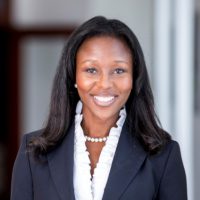
Dr. Kendra Taylor is an applied mathematician, analytics consultant, and adjunct professor. She has completed over 40 consulting projects at leading firms: Booz Allen Hamilton, CH2M Hill, AECOM, and KEYFFICIENCIES, which she founded in 2012. In 2017, she founded the iSeeMe Society, a nonprofit dedicated to teaching decision-making skills to teenagers in an effort to combat child trafficking in Atlanta, Georgia. She has published research on the impact of its curriculum and with the support of generous donors, led the development of a teen STEM camp. Since 2017, she has served as Editor of the INFORMS Editor’s Cut volume on Ending Human Trafficking with Analytics. She holds a B.S. in Mathematics from Hampton University, an M.S. and Ph.D. in Industrial Engineering from the Georgia Institute of Technology, and multiple certifications. Connect with Kendra on LinkedIn.
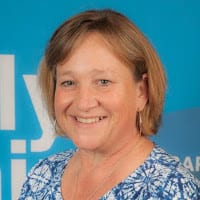
Jenny Froome is passionate about how supply chain management affects our lives on every level. Her original and now current profession is event management – the epitome of a well-honed supply chain. After many years working as COO of SAPICS – the professional body of supply chain management in South Africa she realized the importance of shining the light on the supply chains of Africa. Managing events such as the SAPICS annual conference, the People that Deliver Global Indaba, and the Africa Supply Chain Excellence Awards have truly allowed Jenny to combine her skills, knowledge, and community. Jenny’s lived all over the world and has settled in South Africa with her husband and many 4 legged friends while her sons are scattered around the world. Connect with Jenny on LinkedIn.
